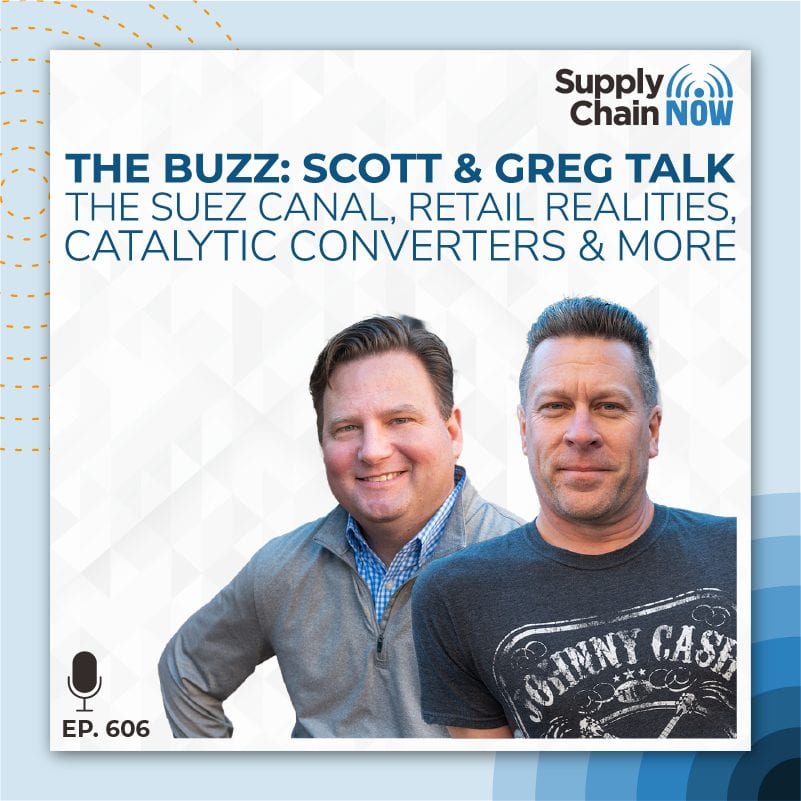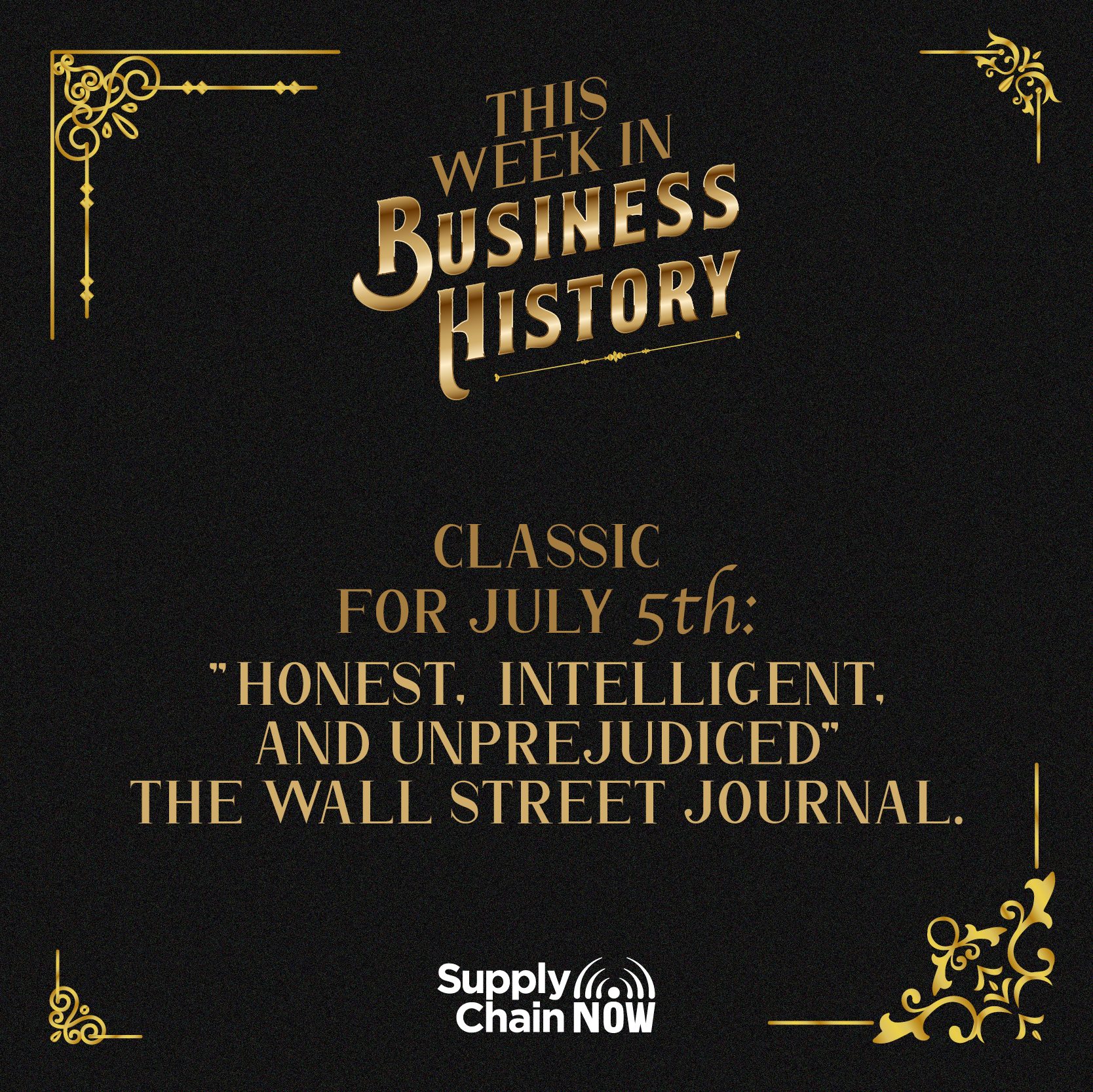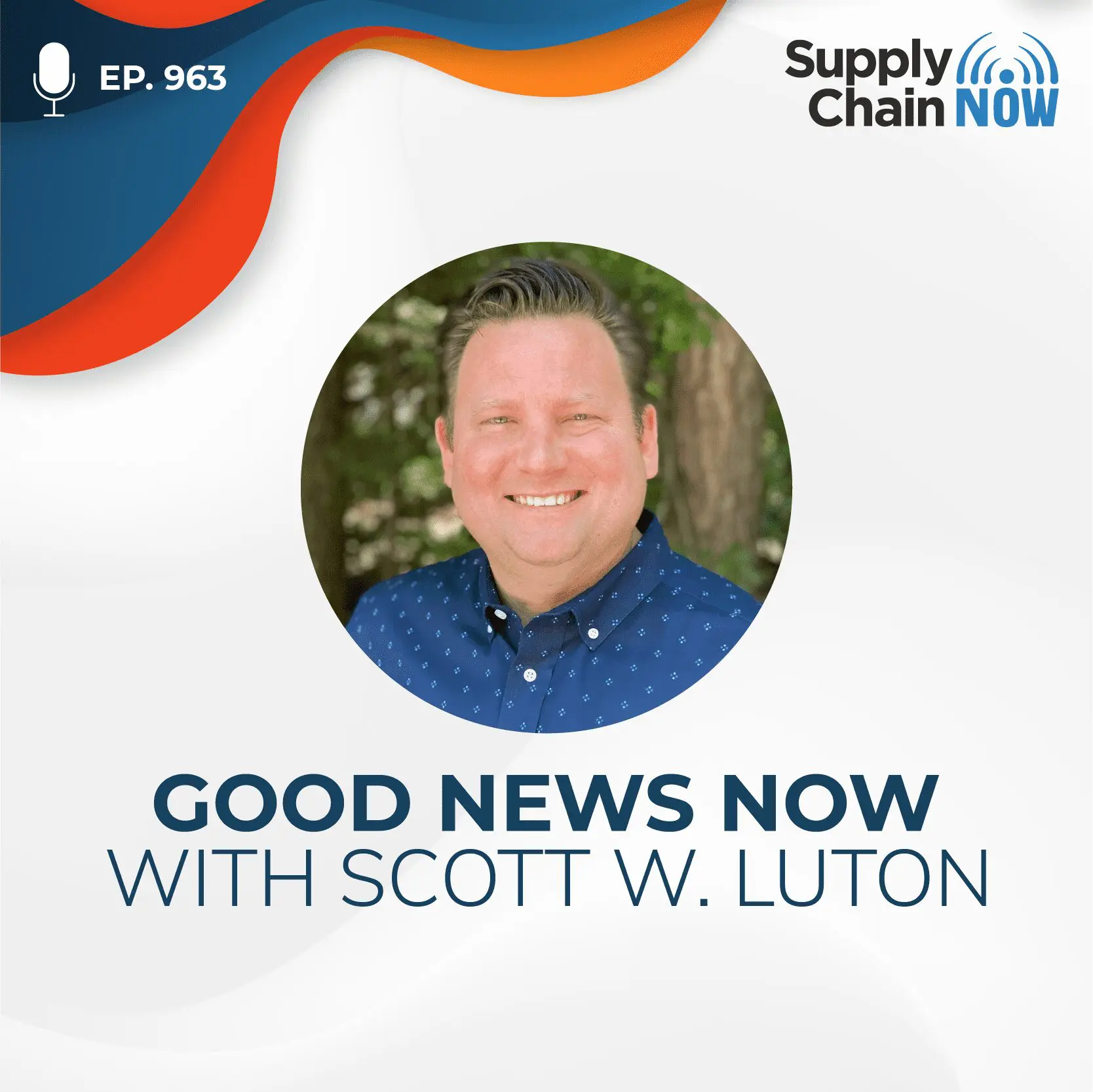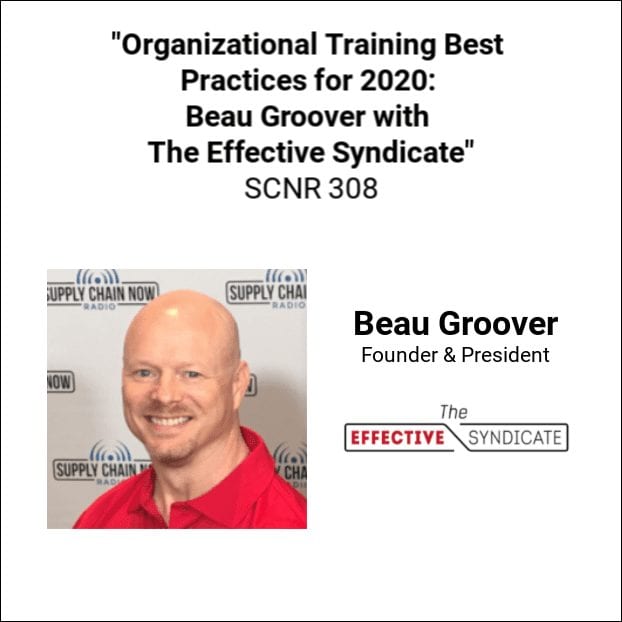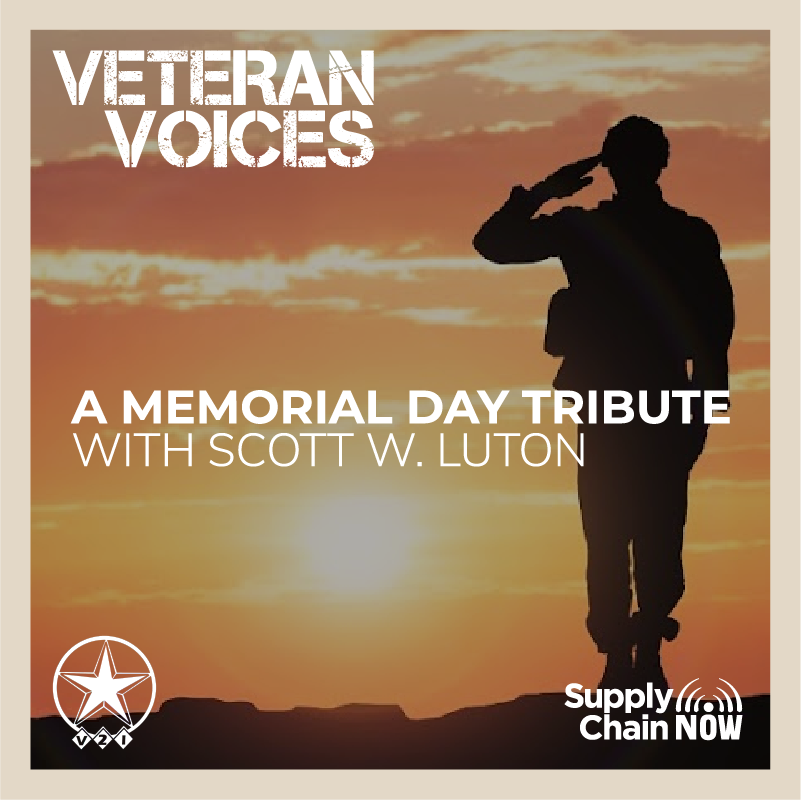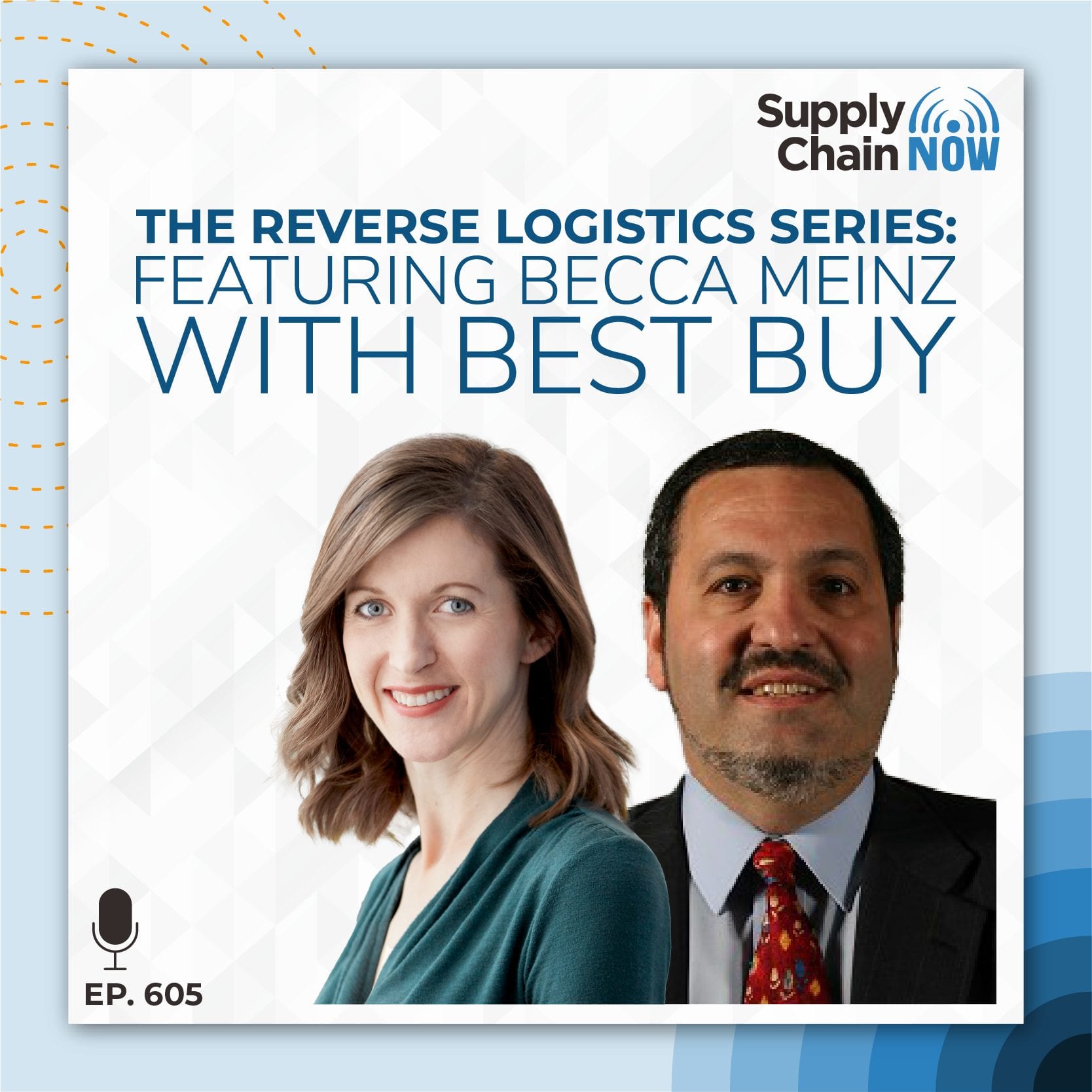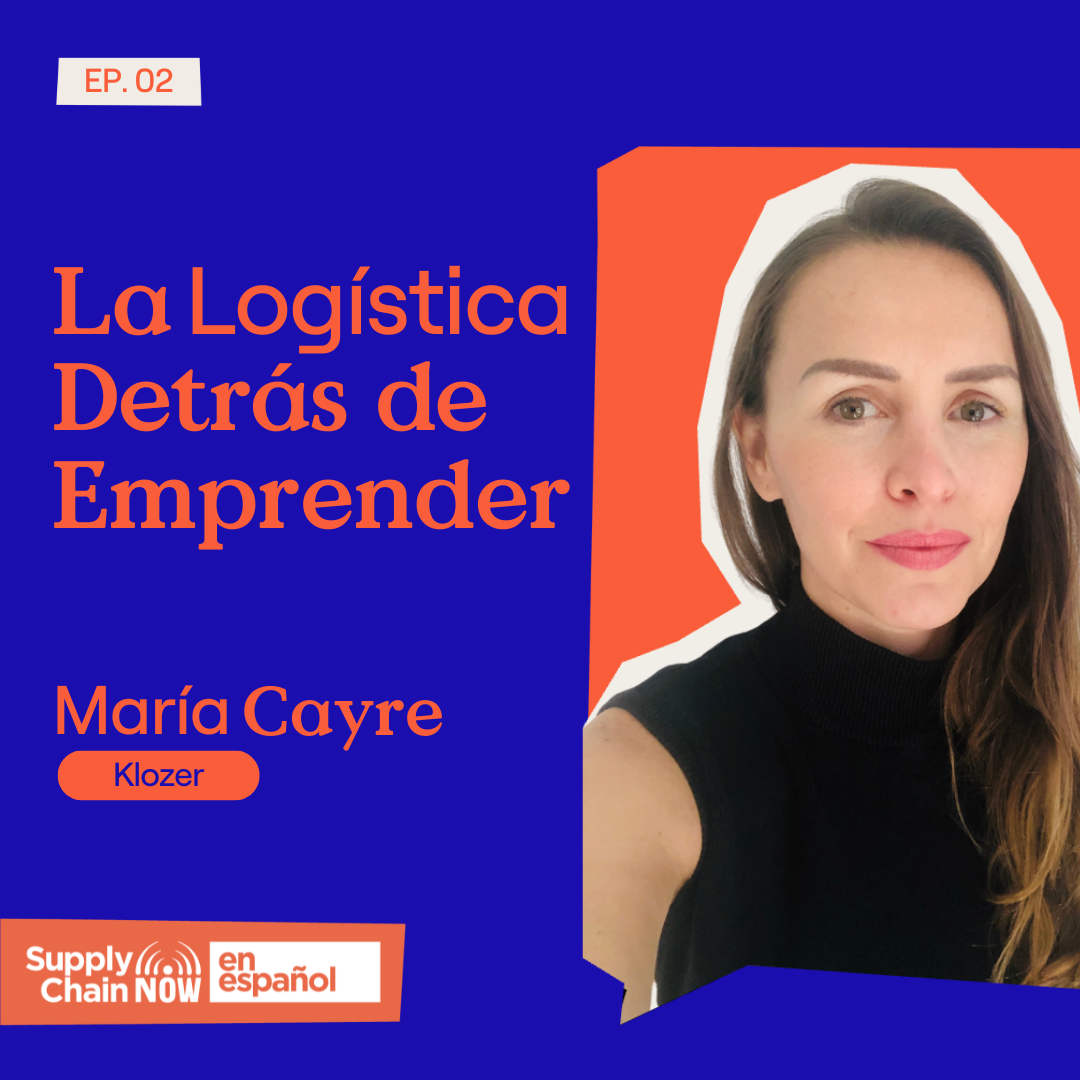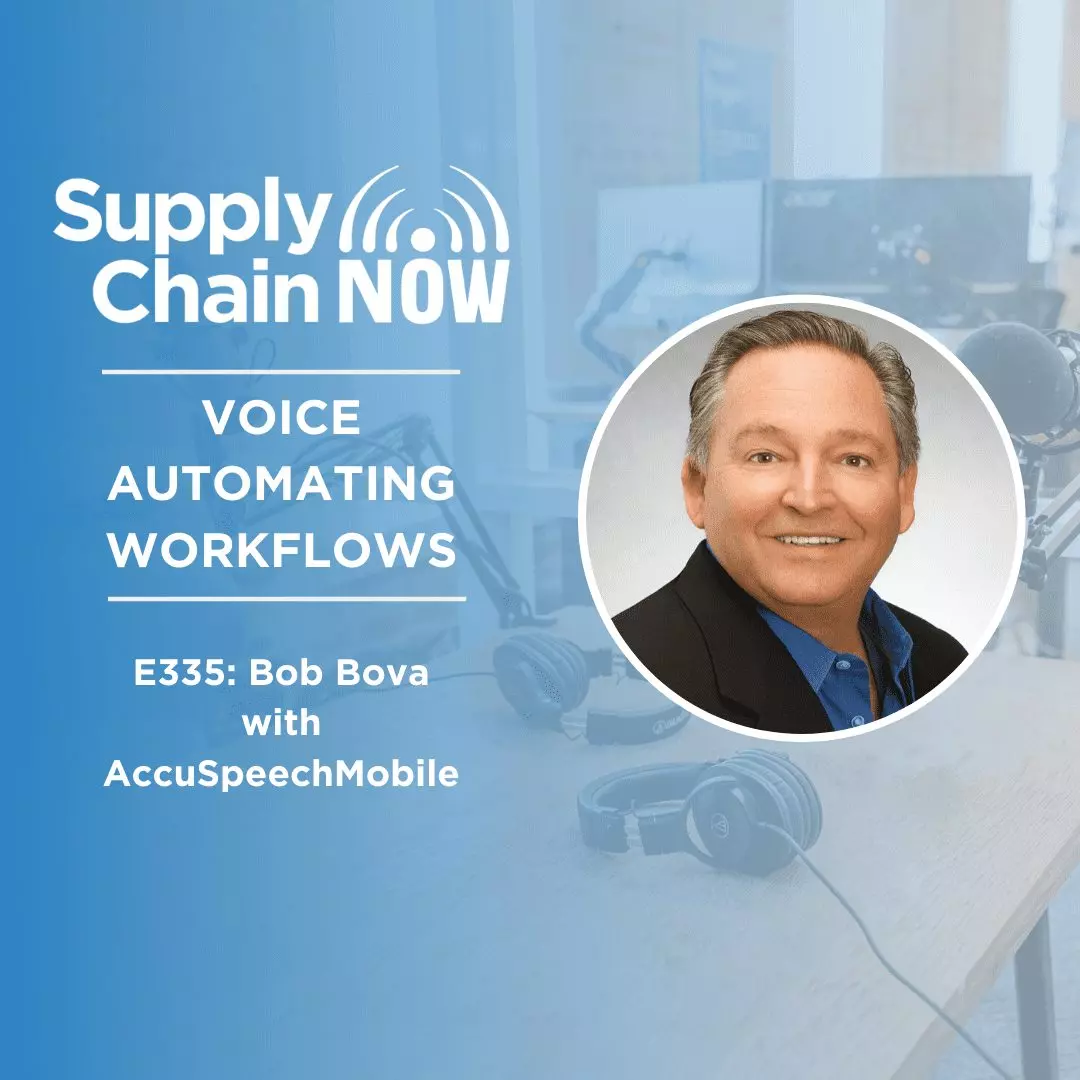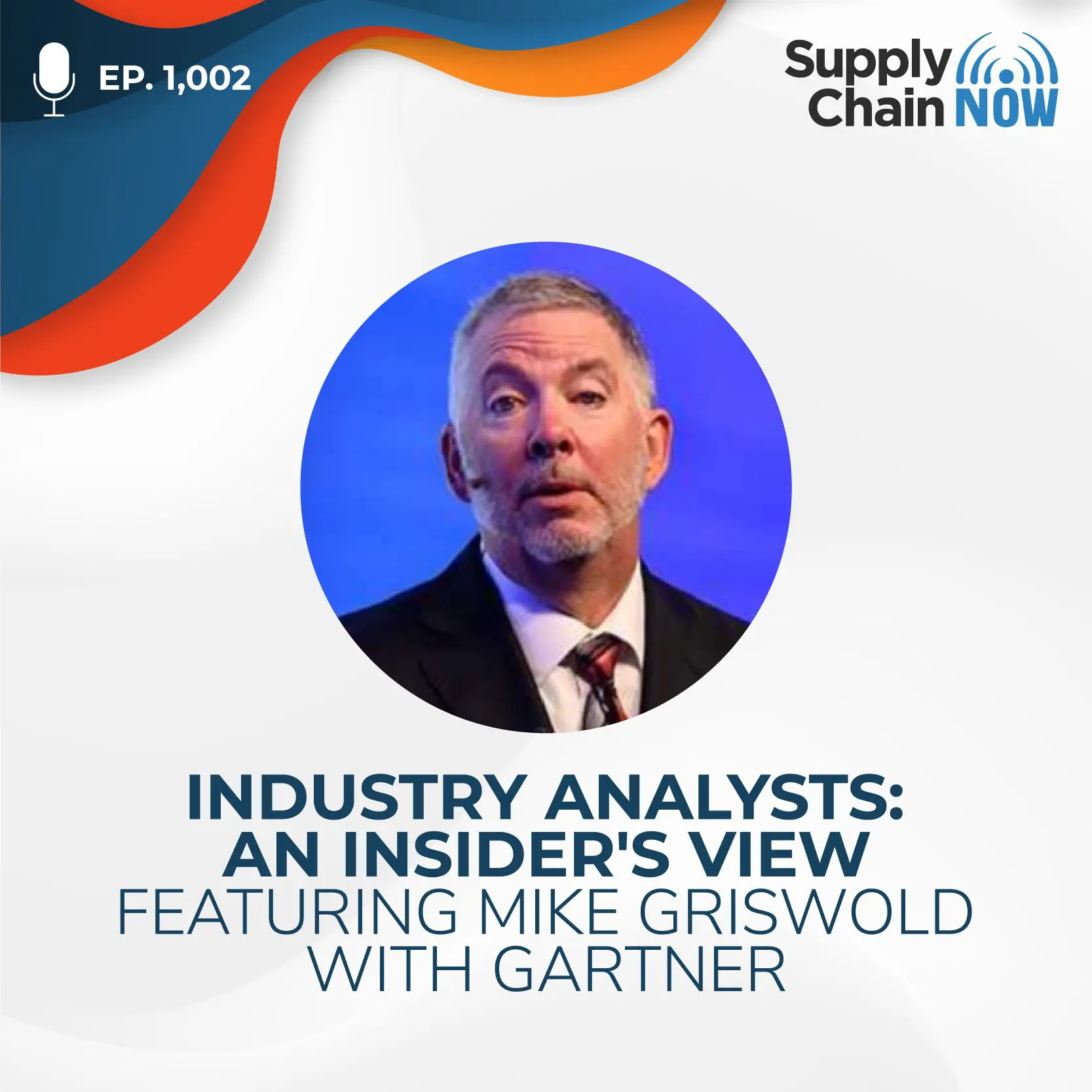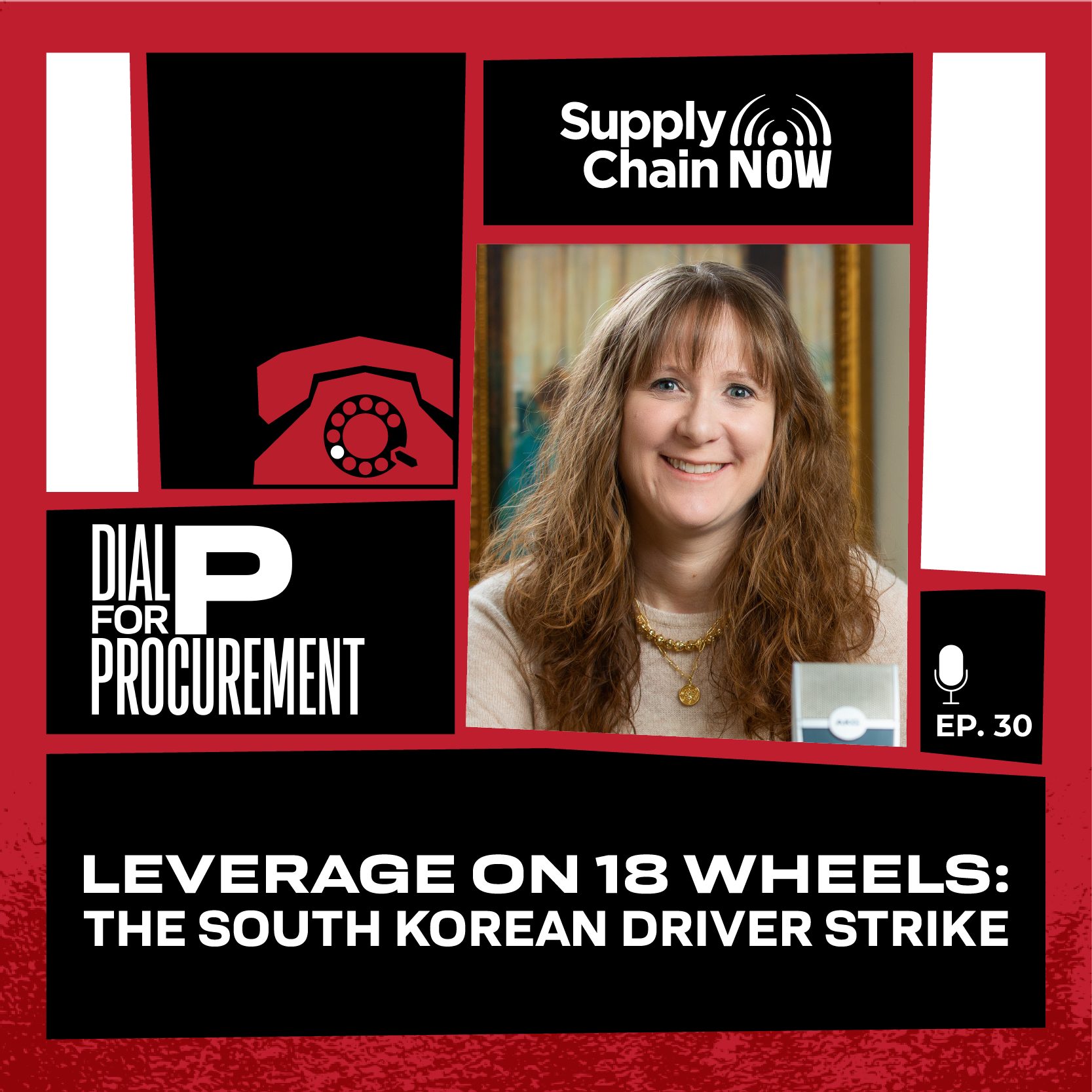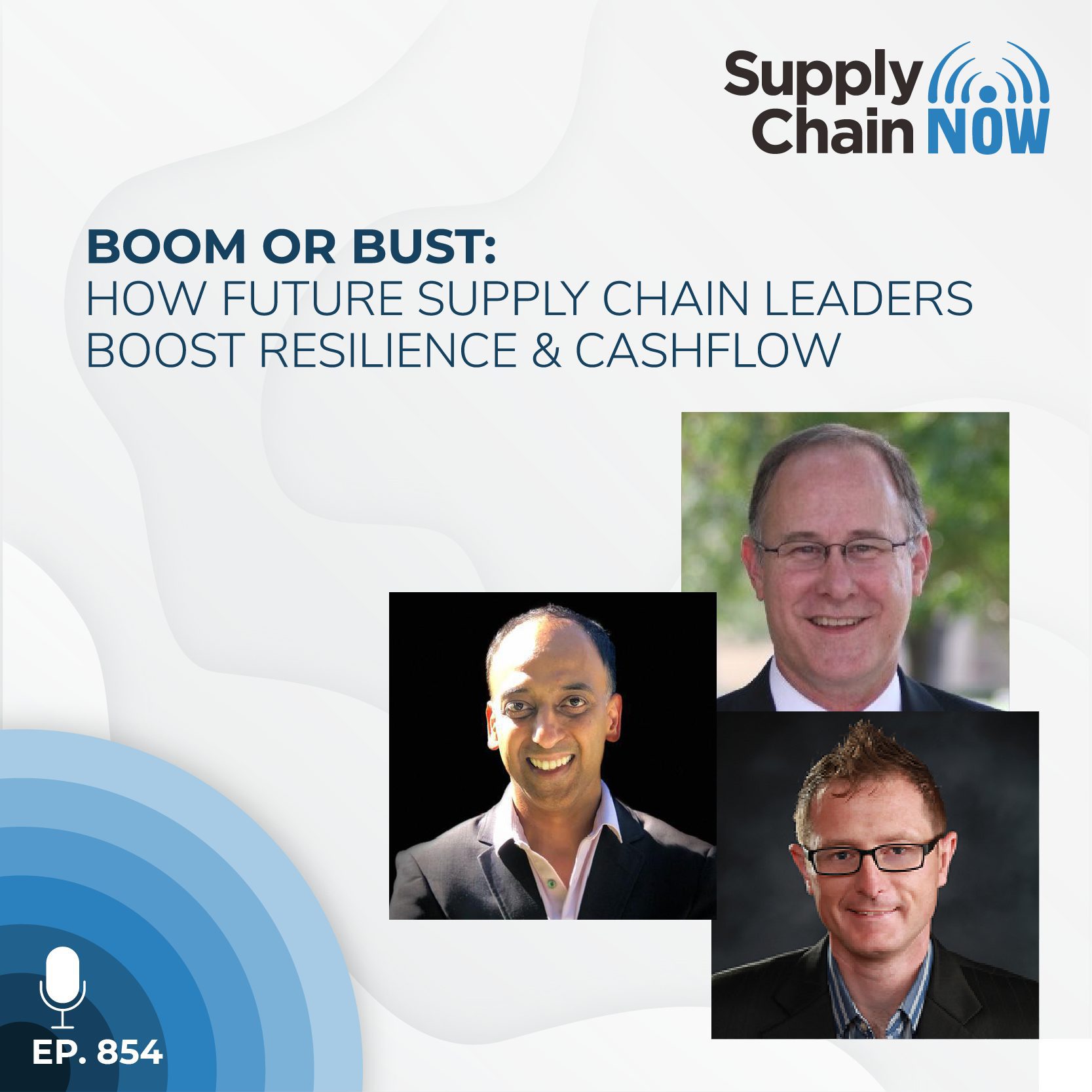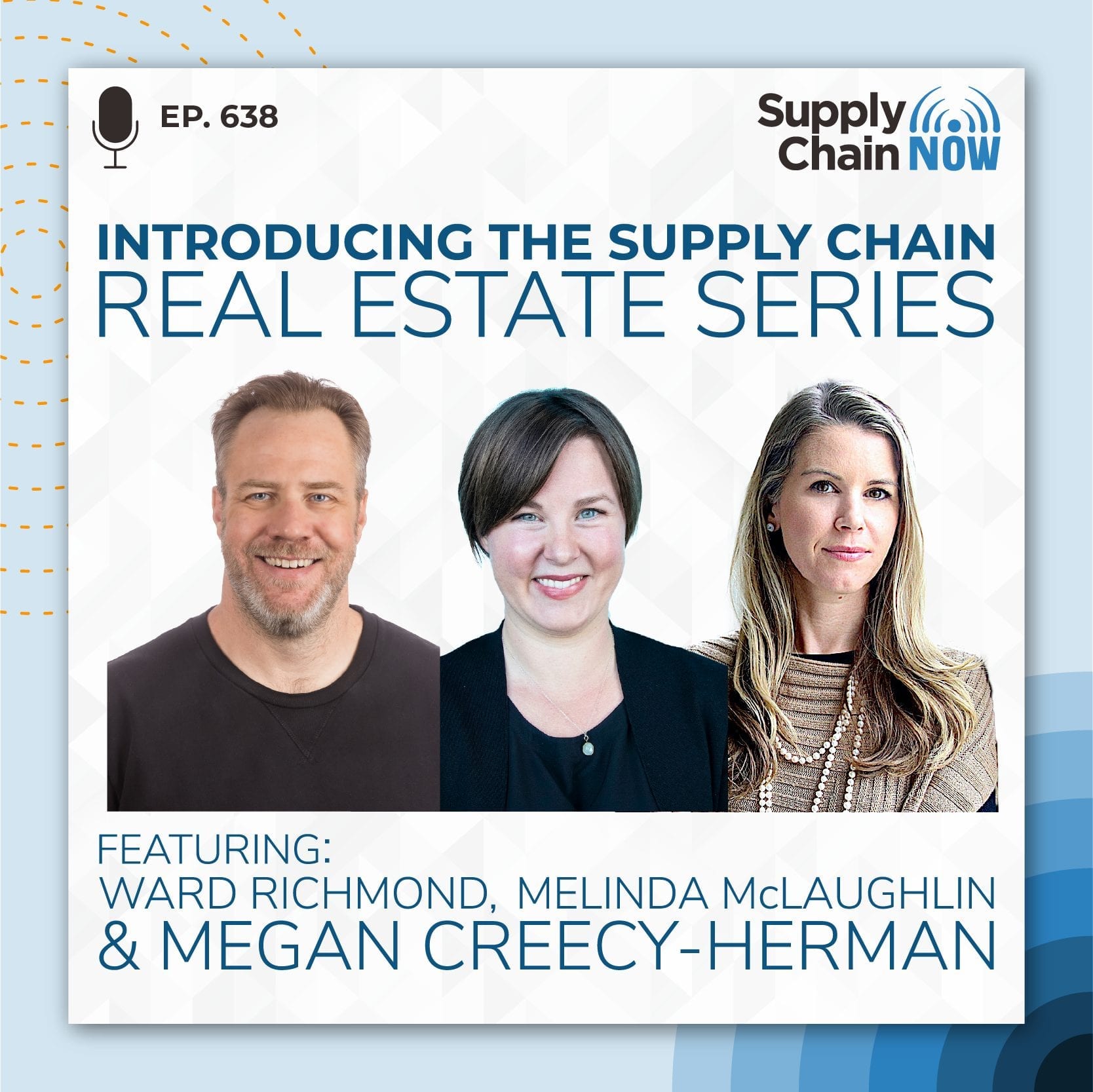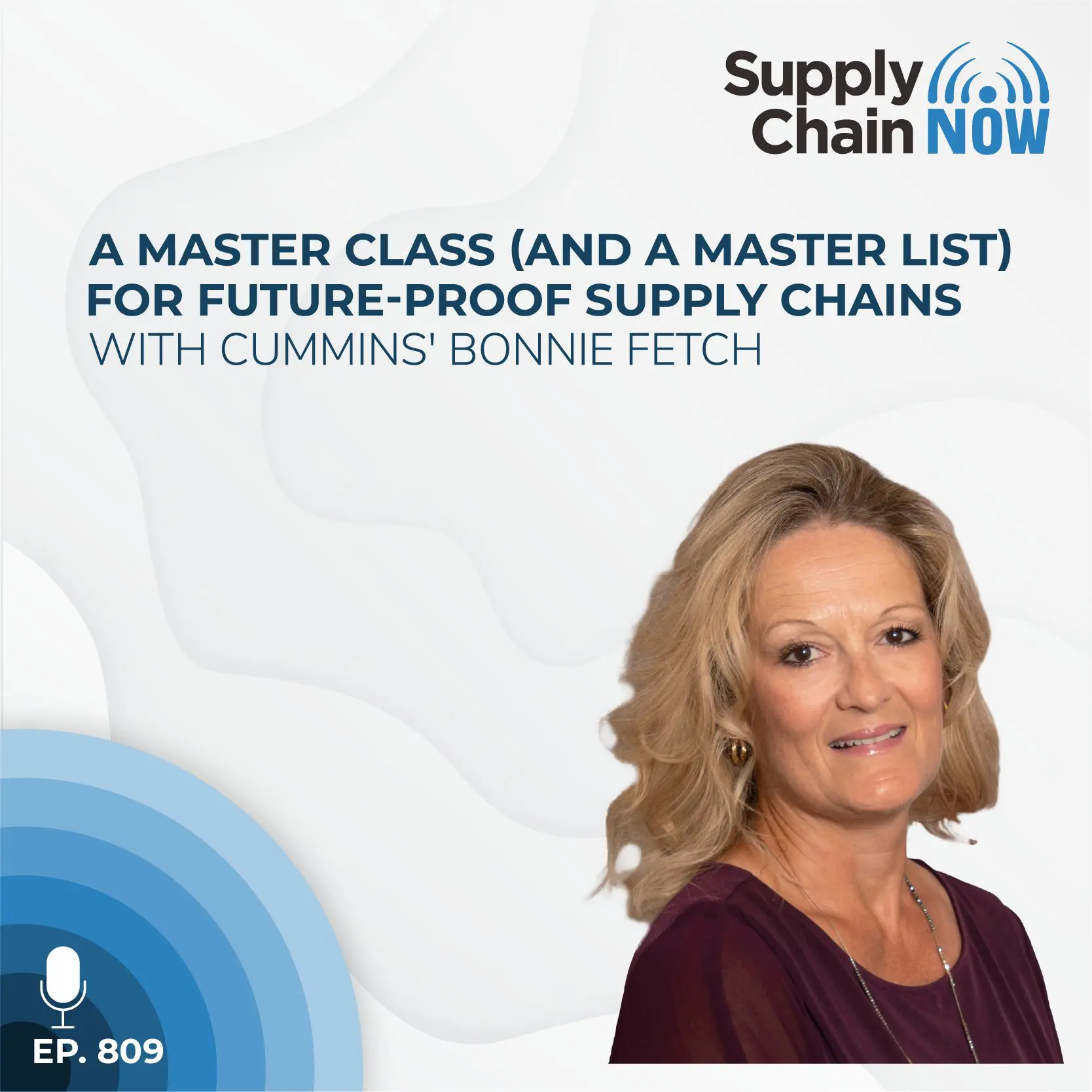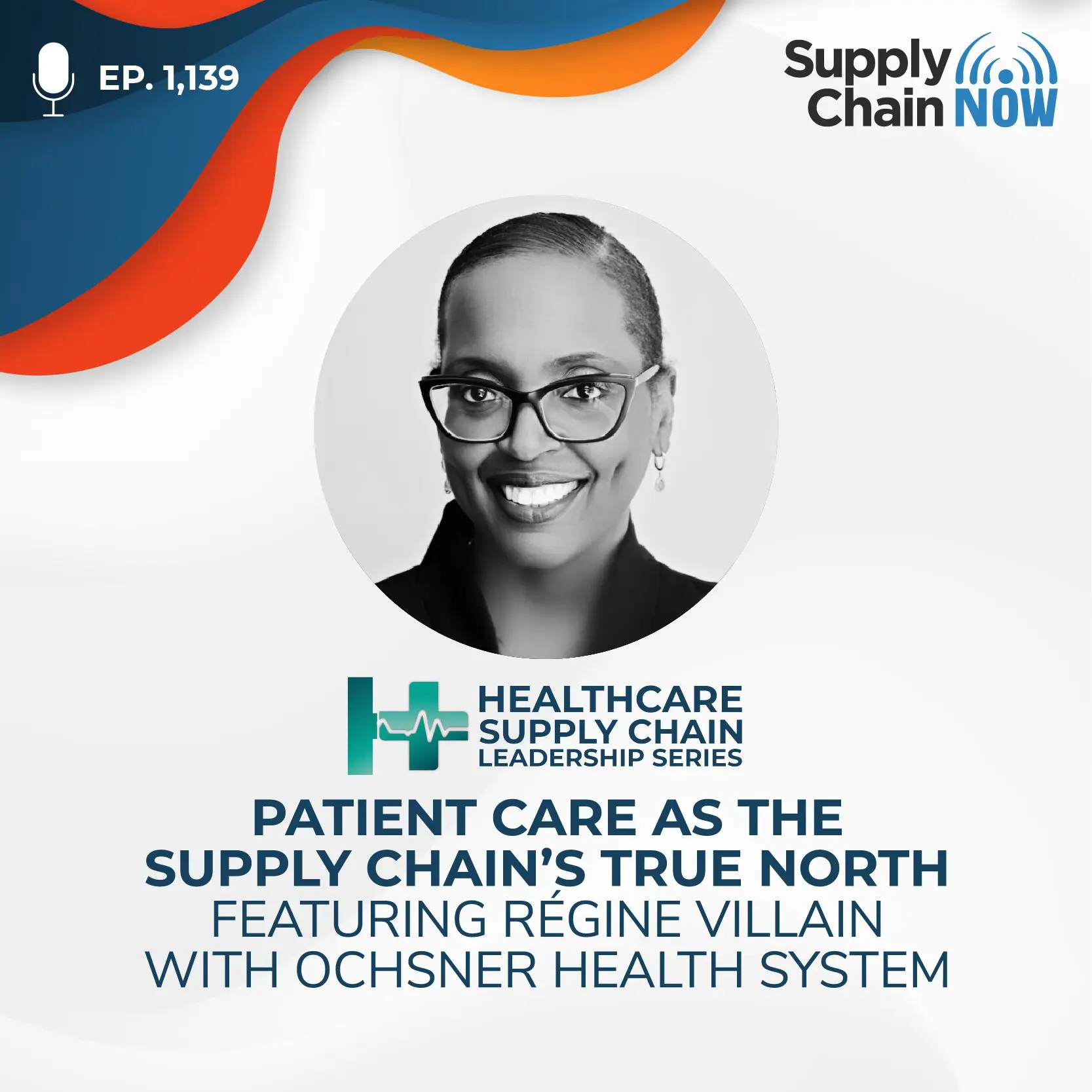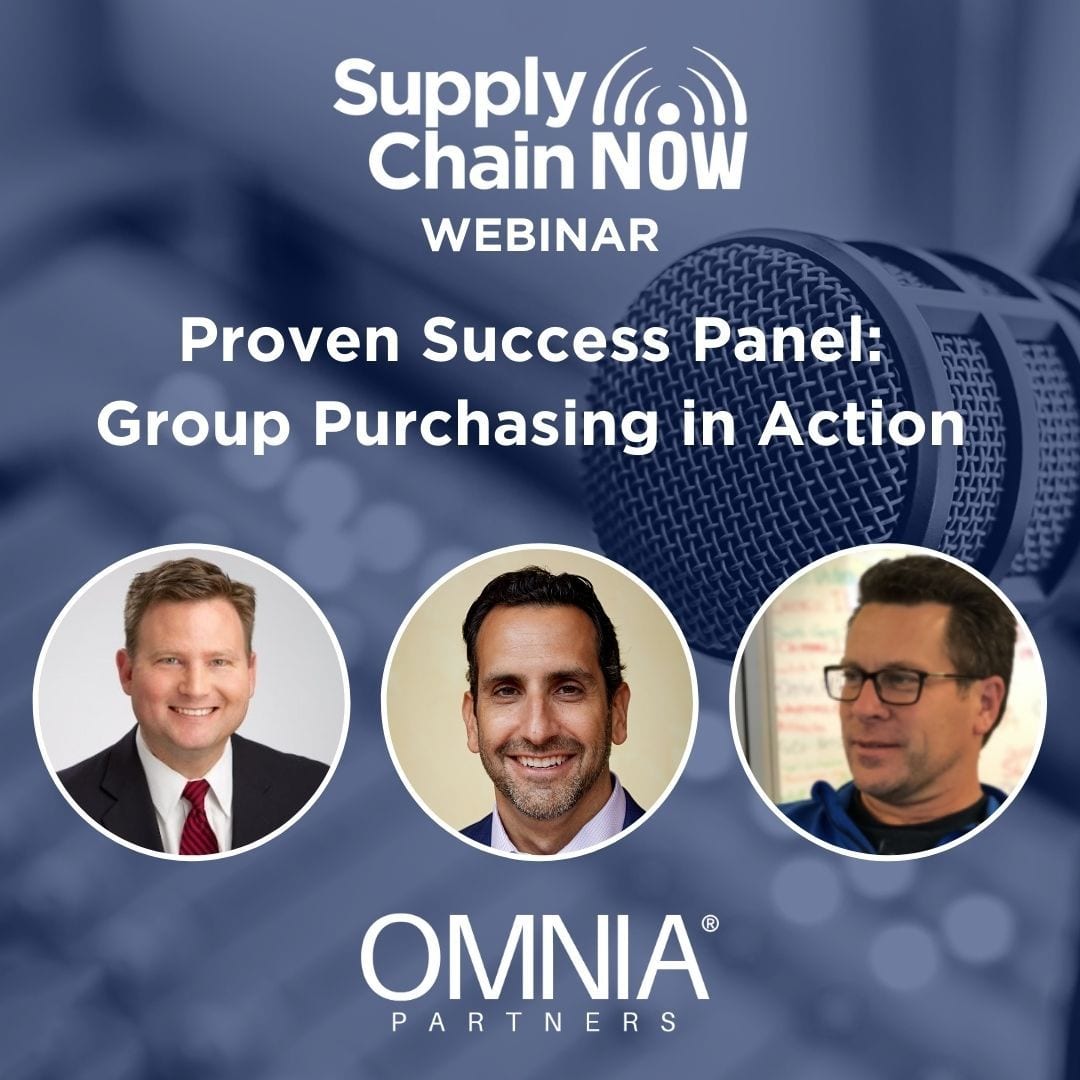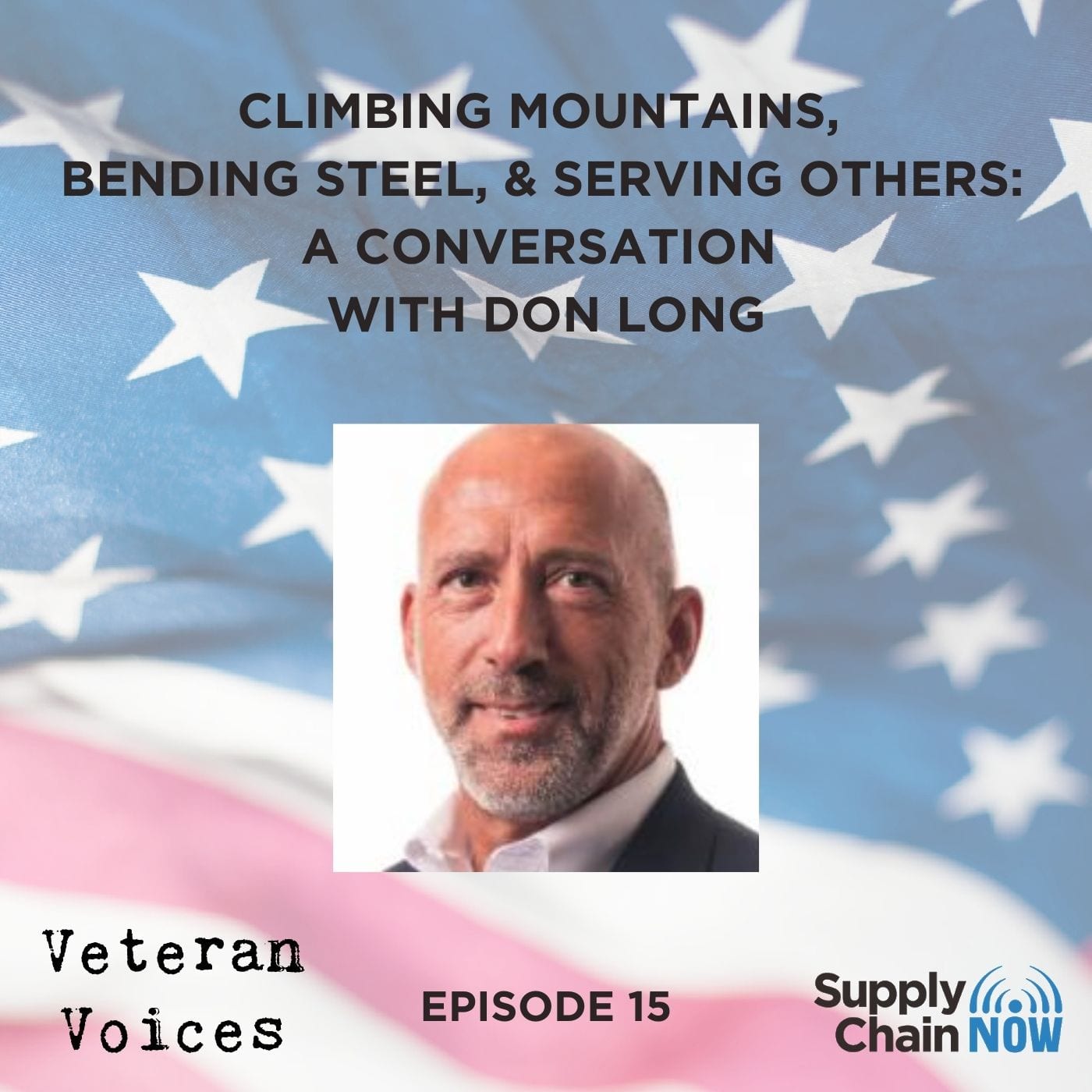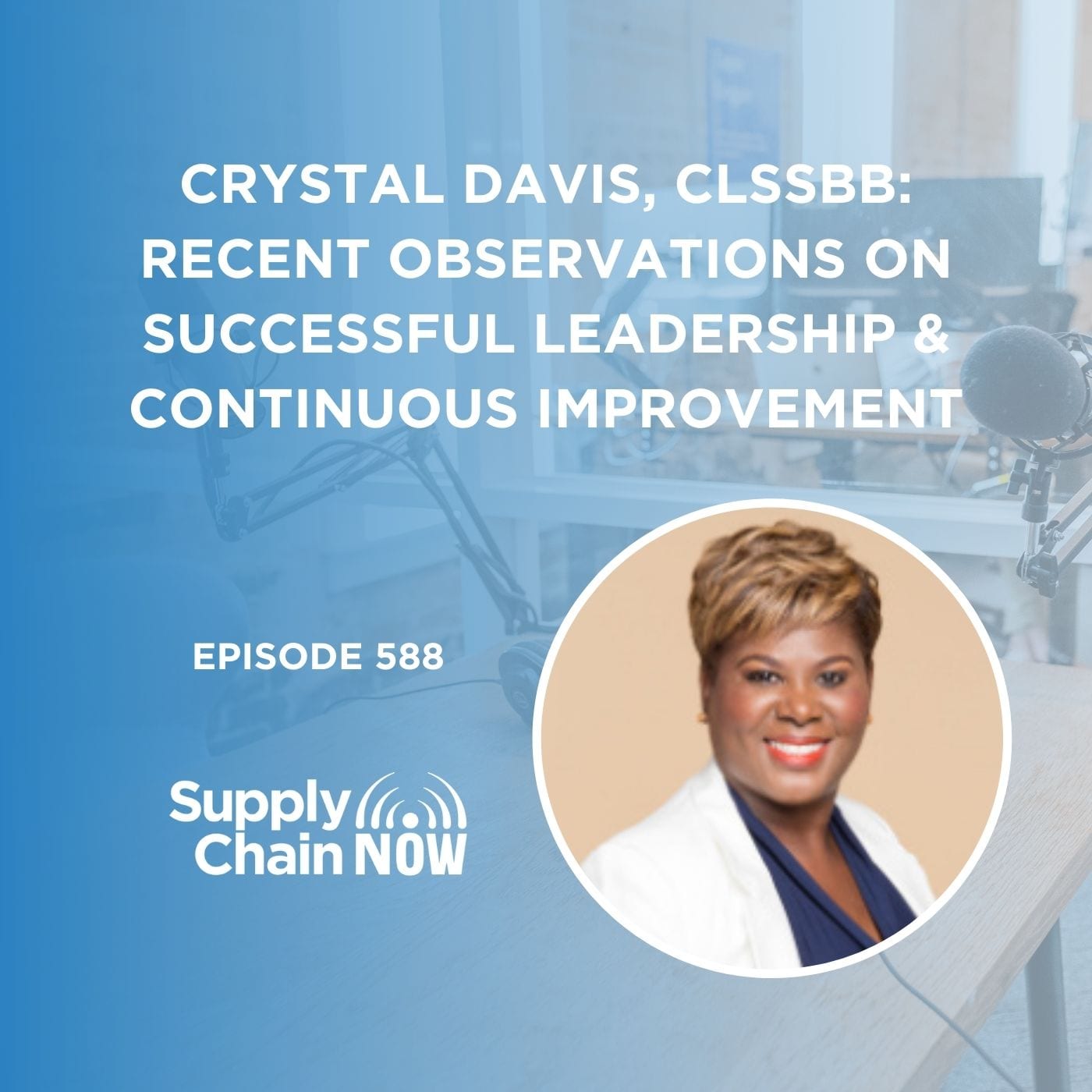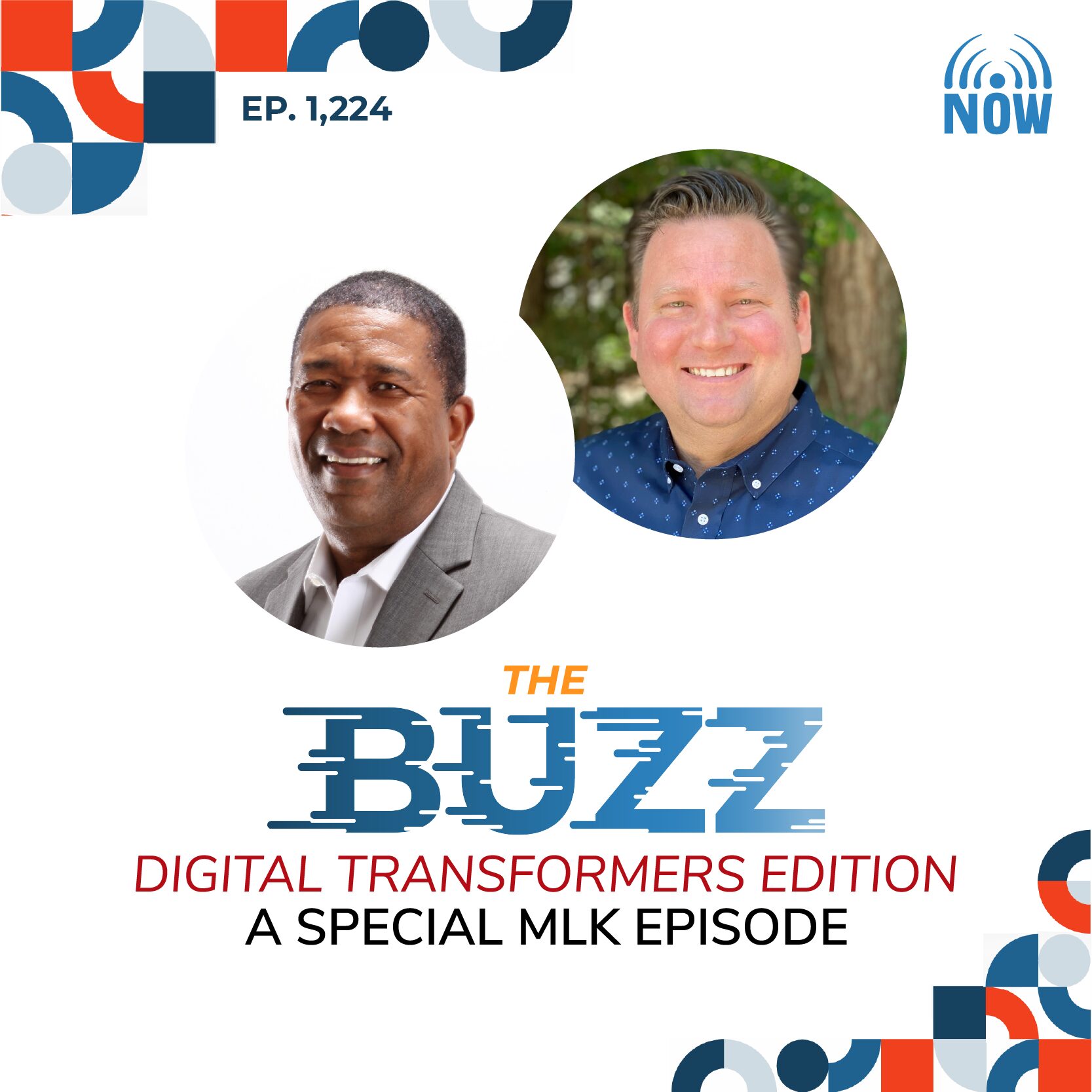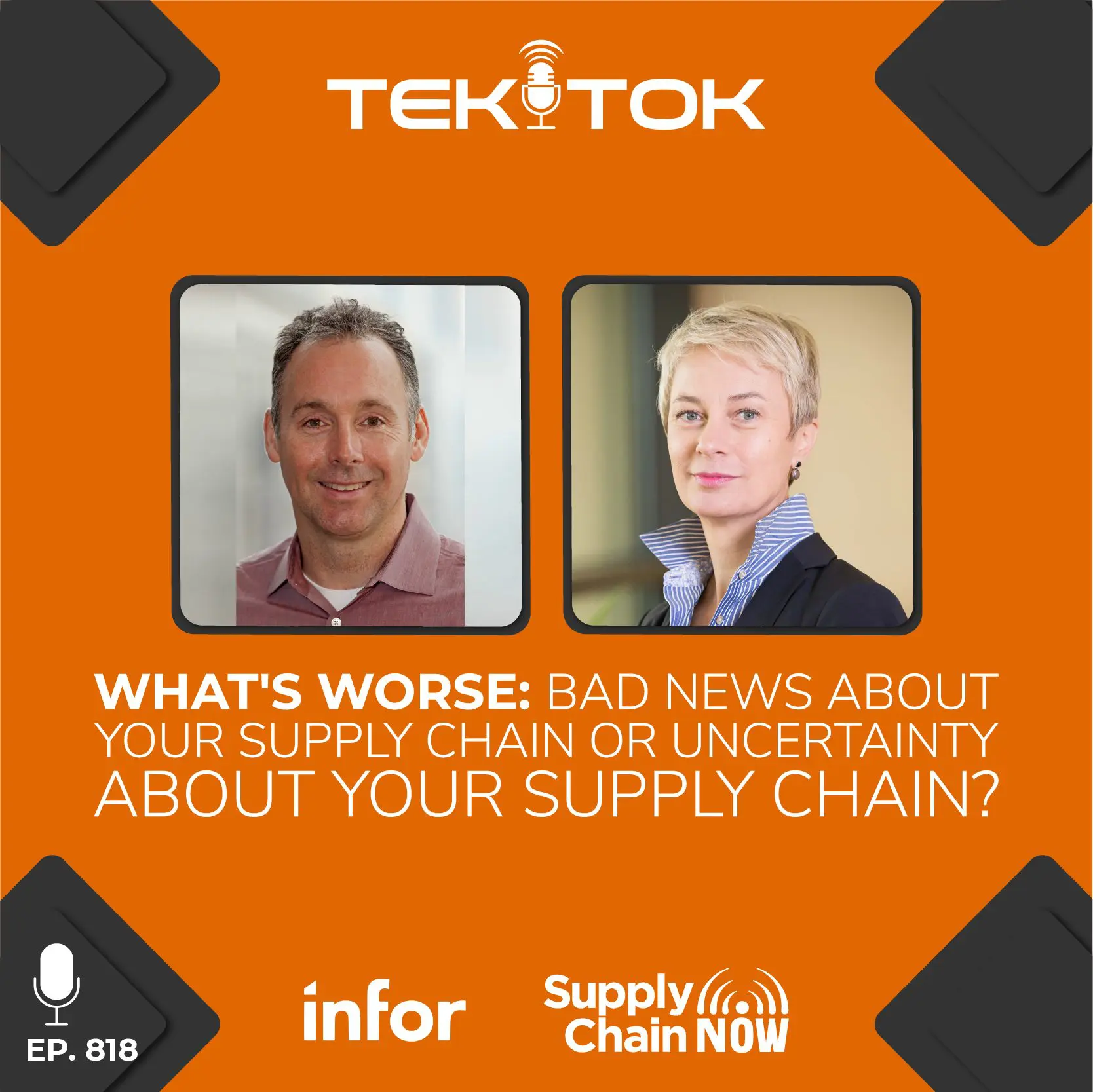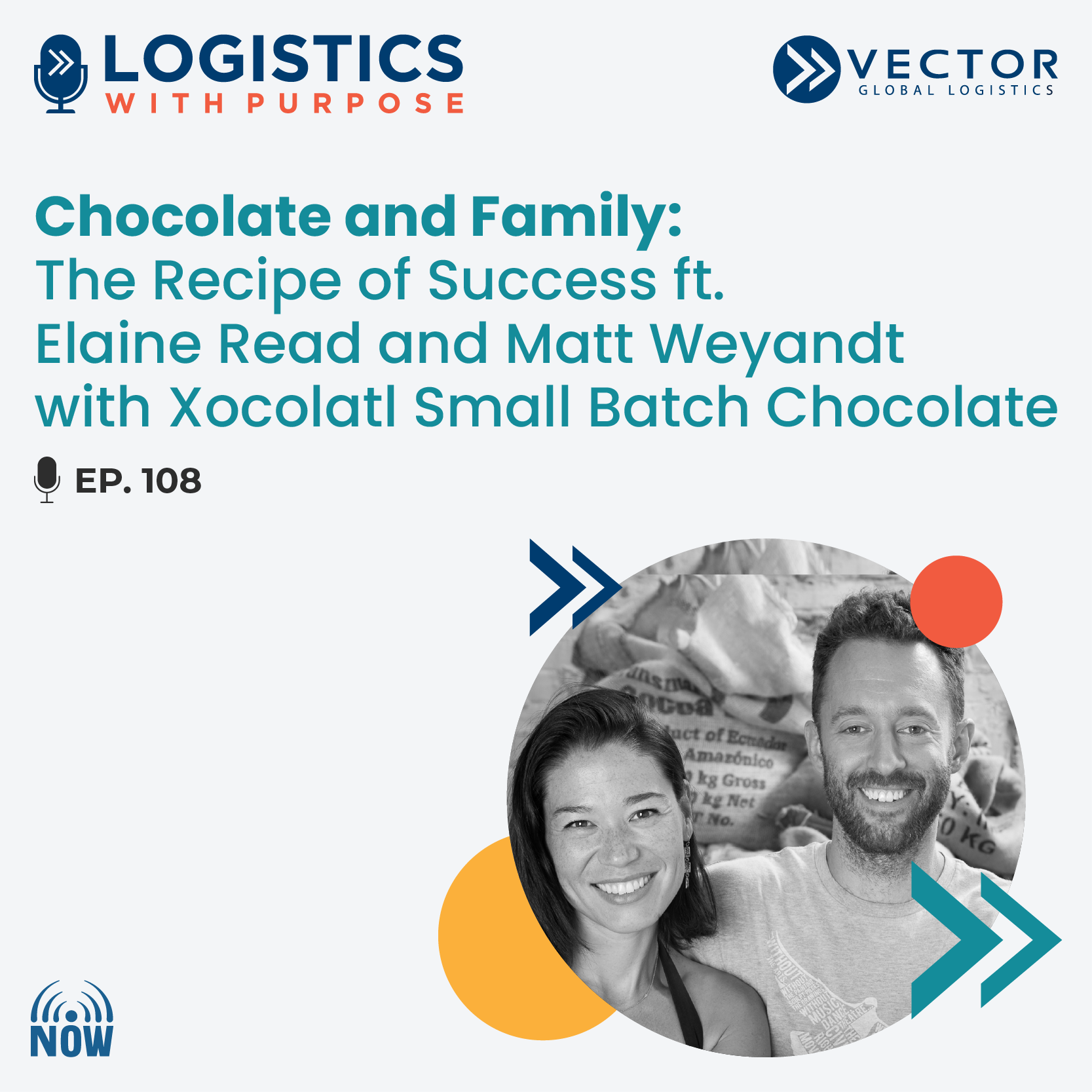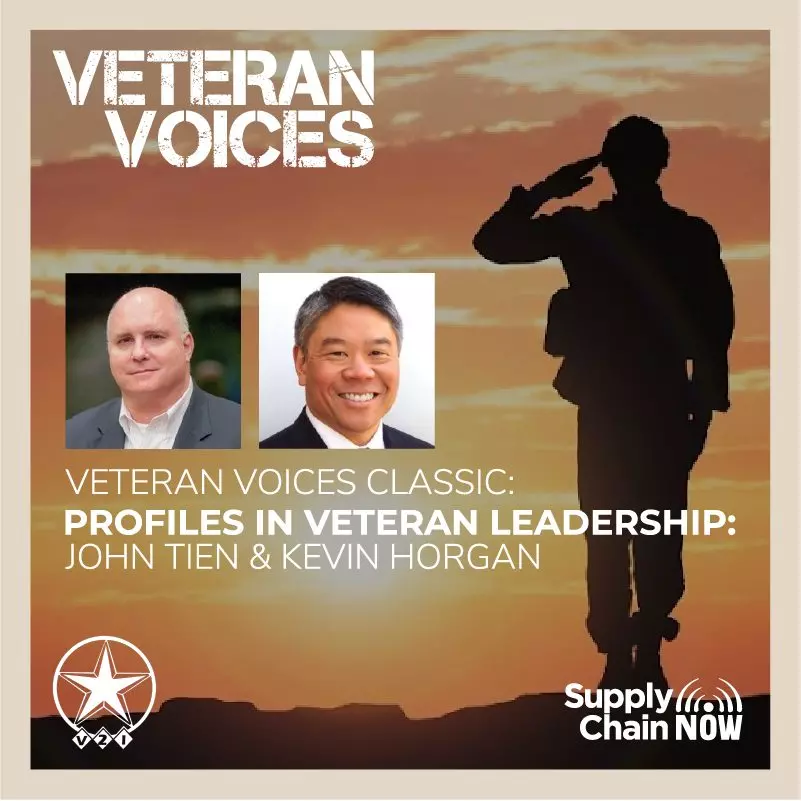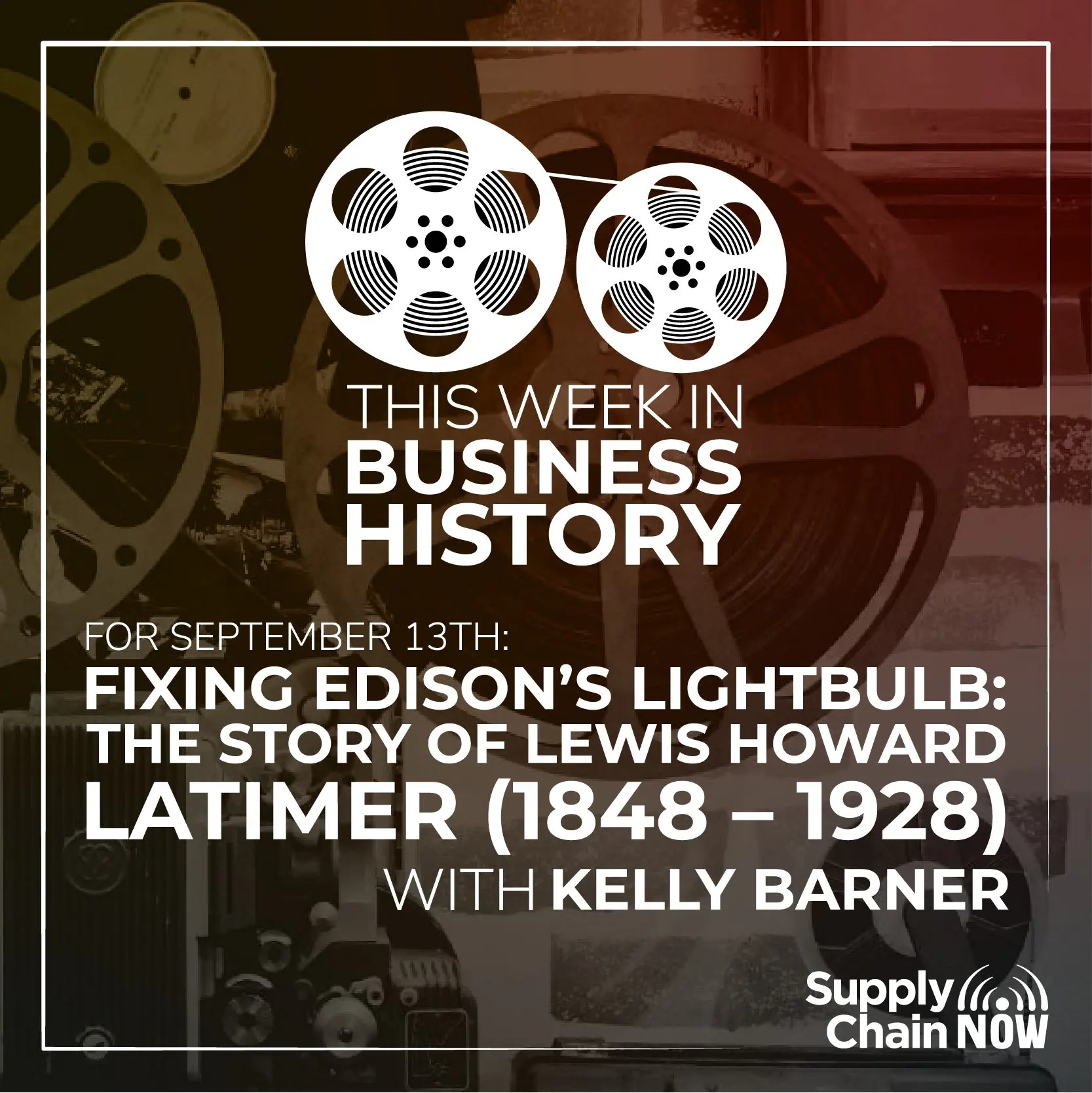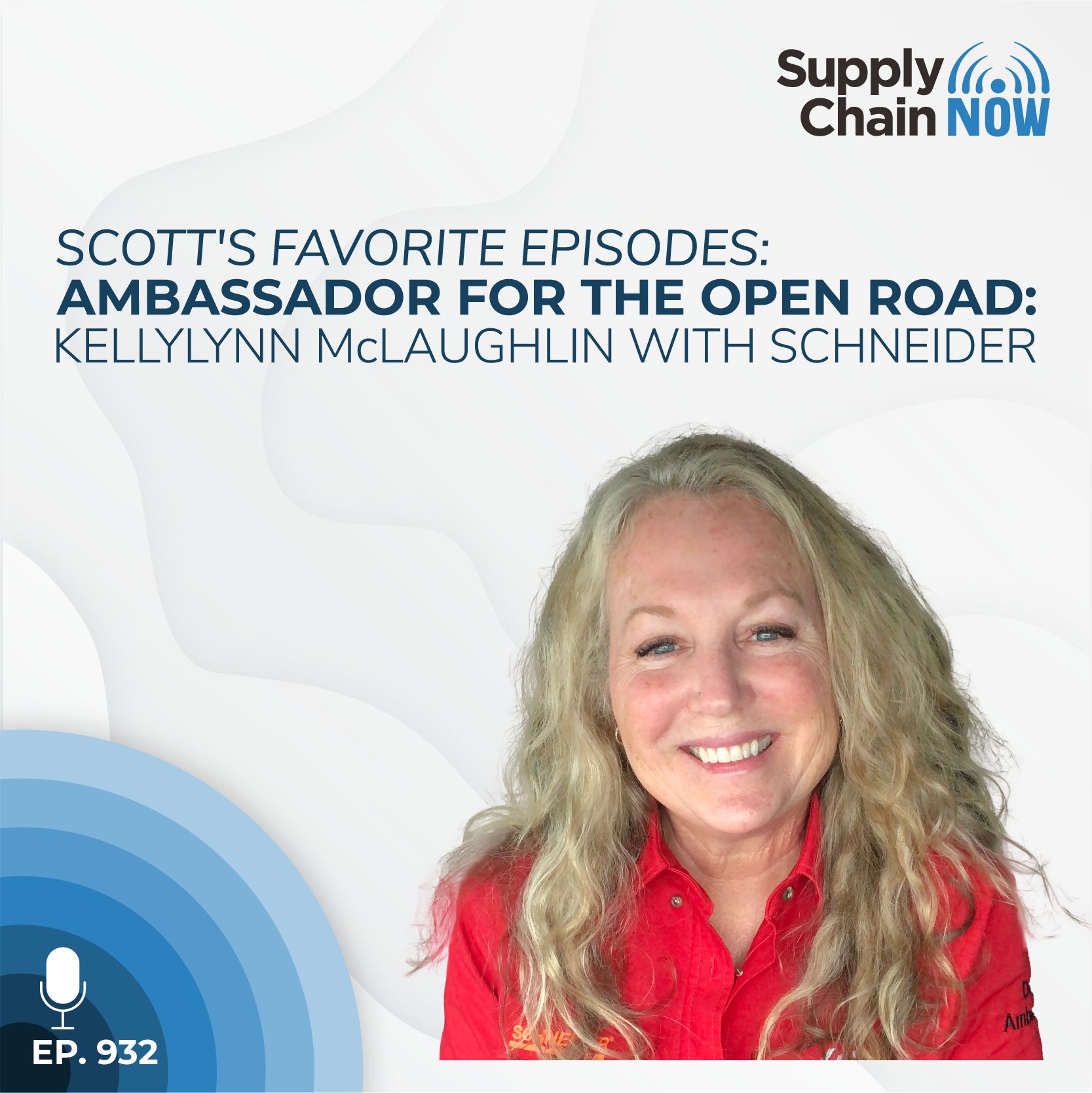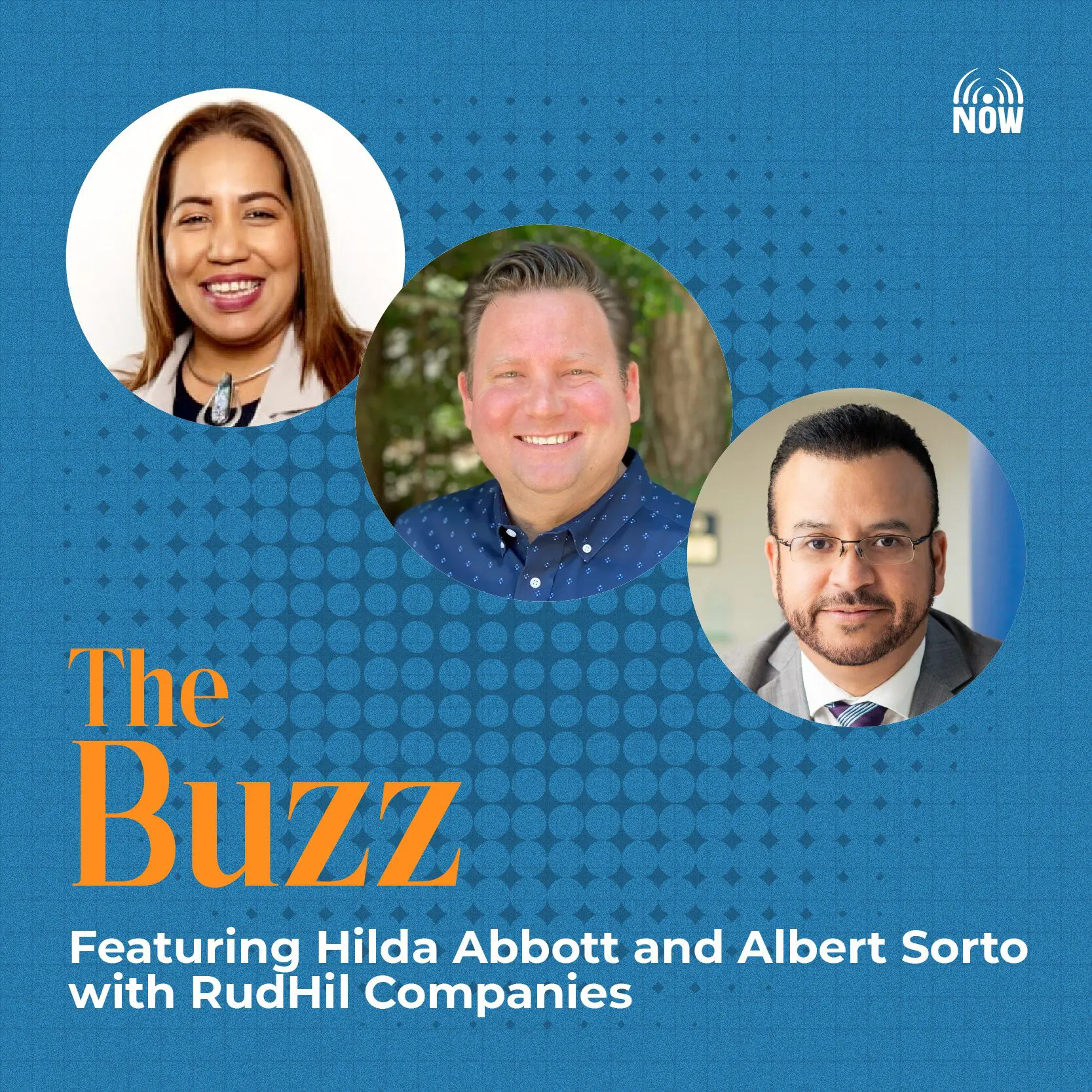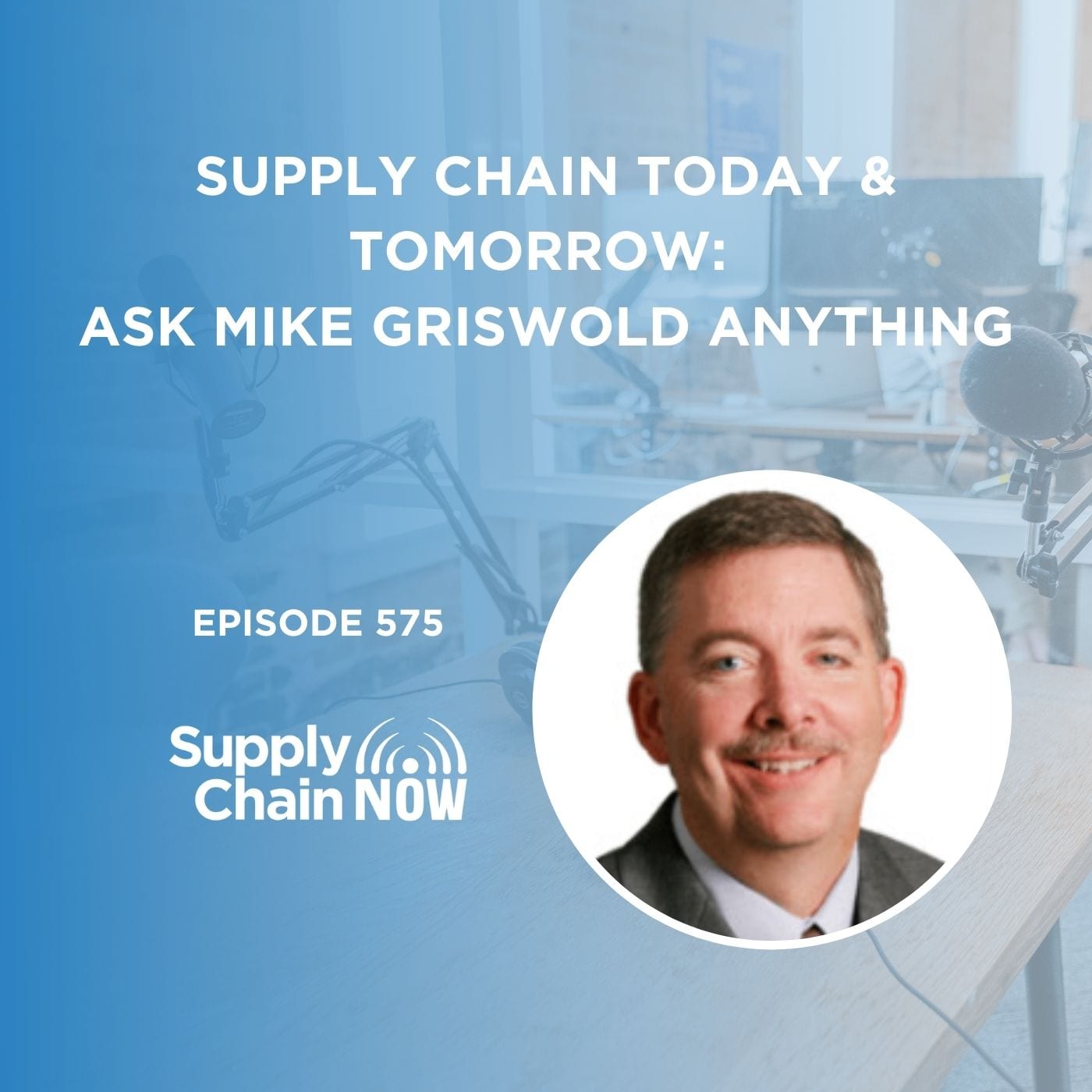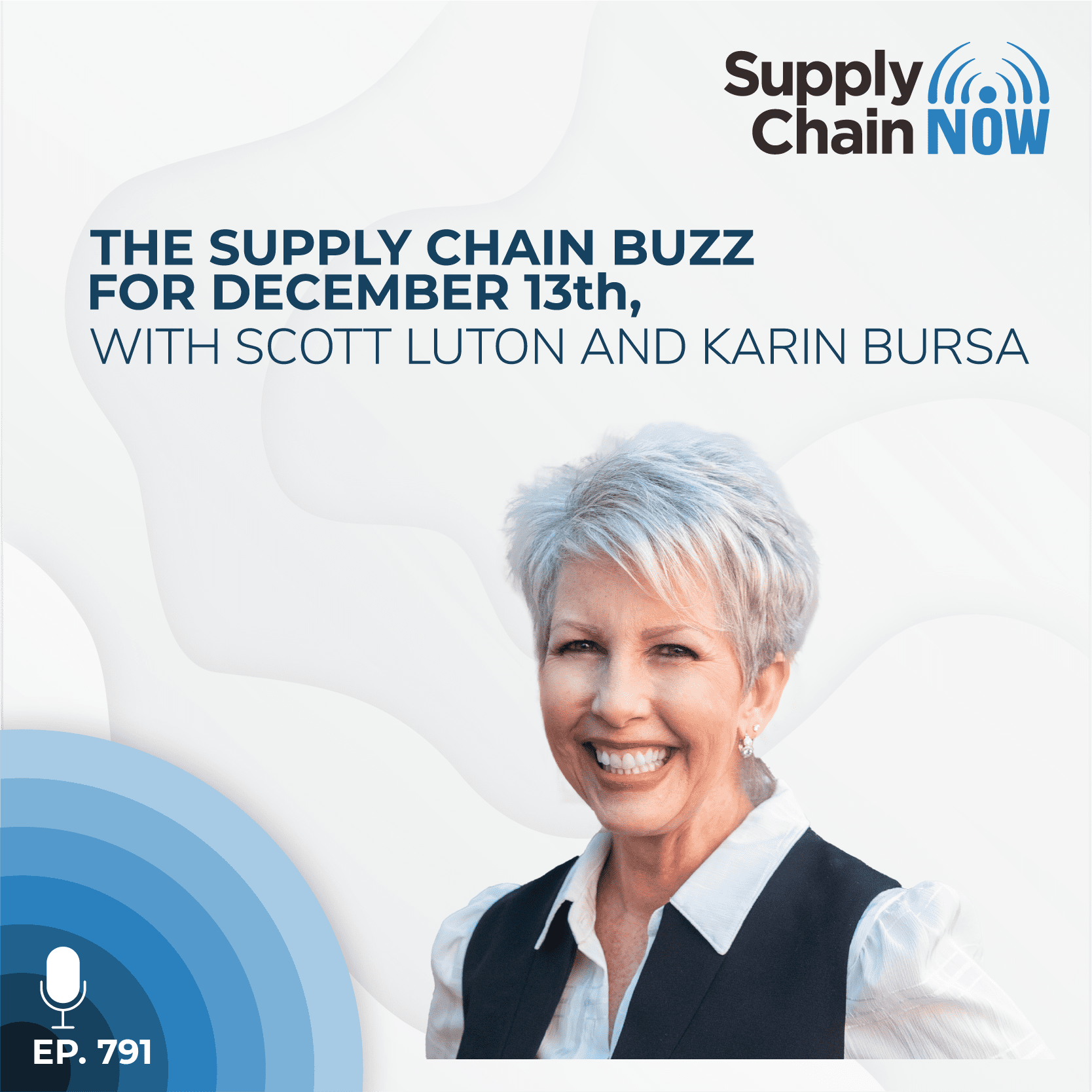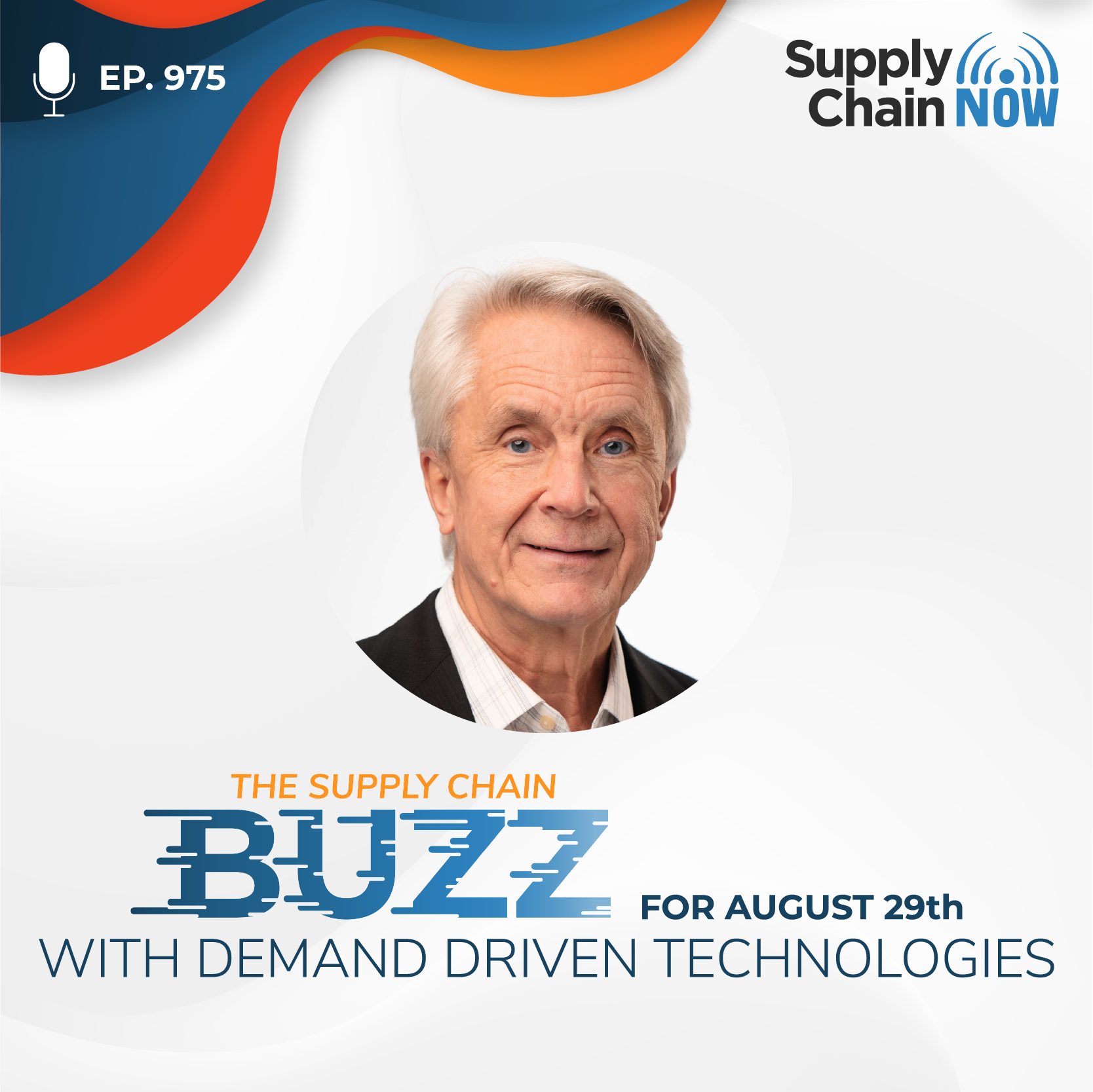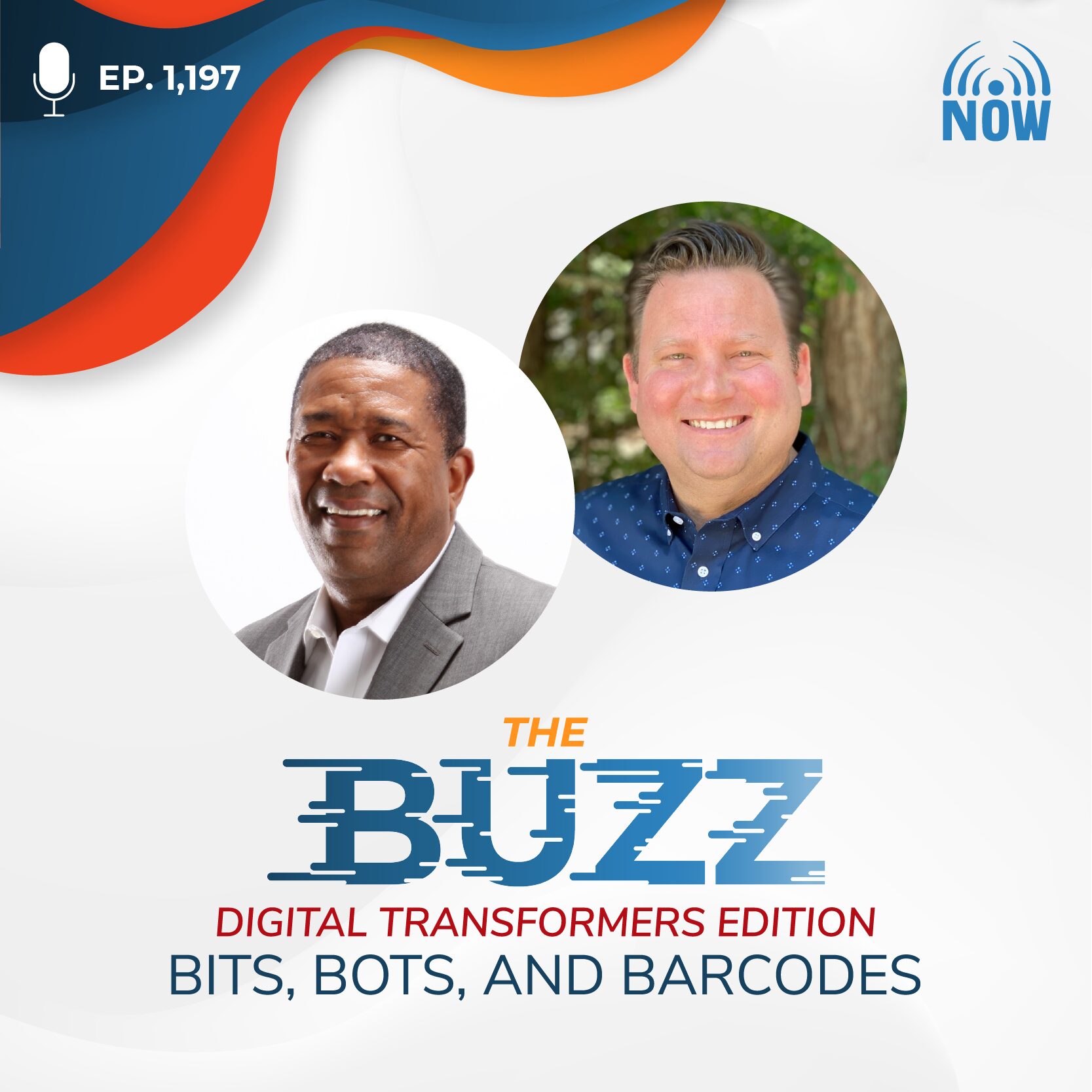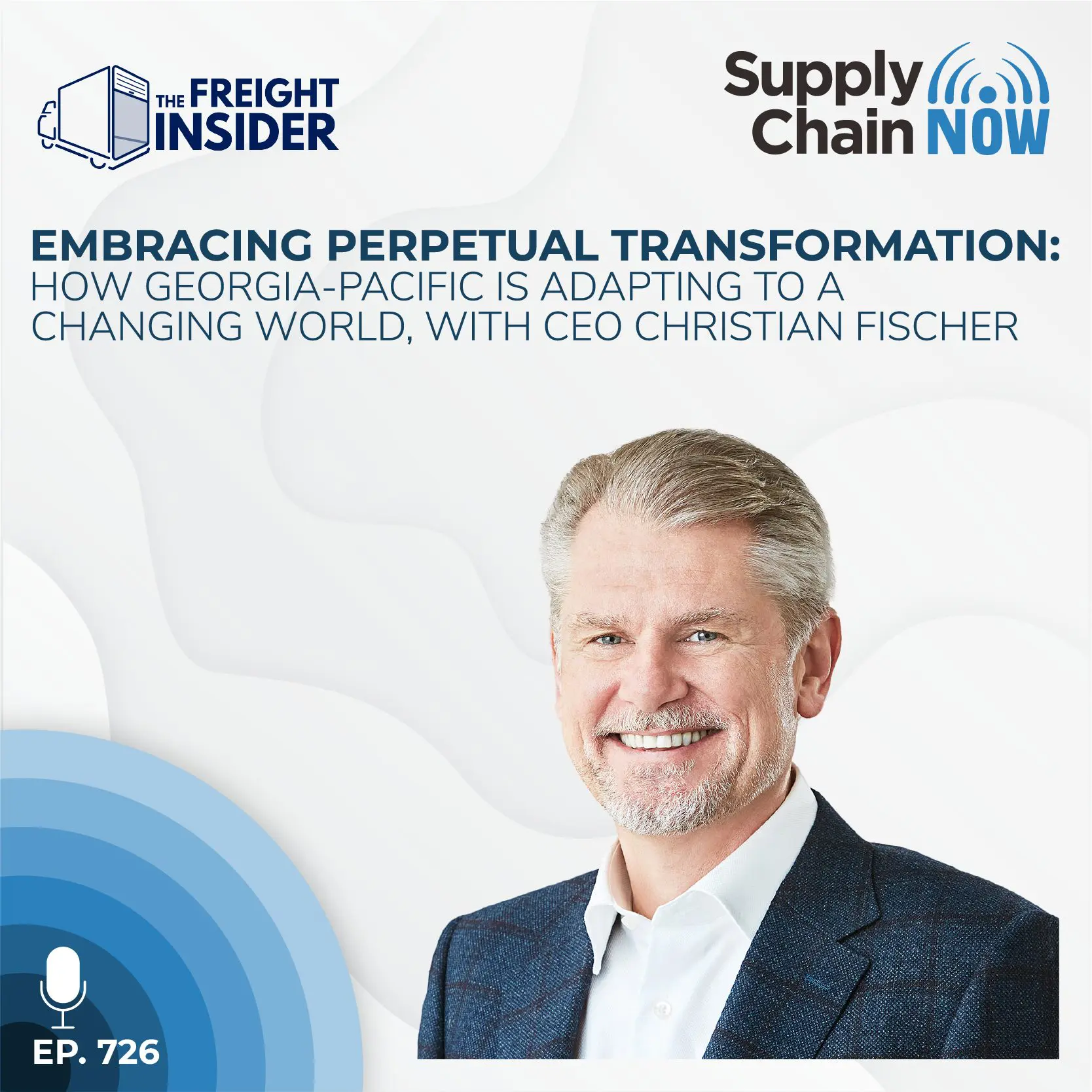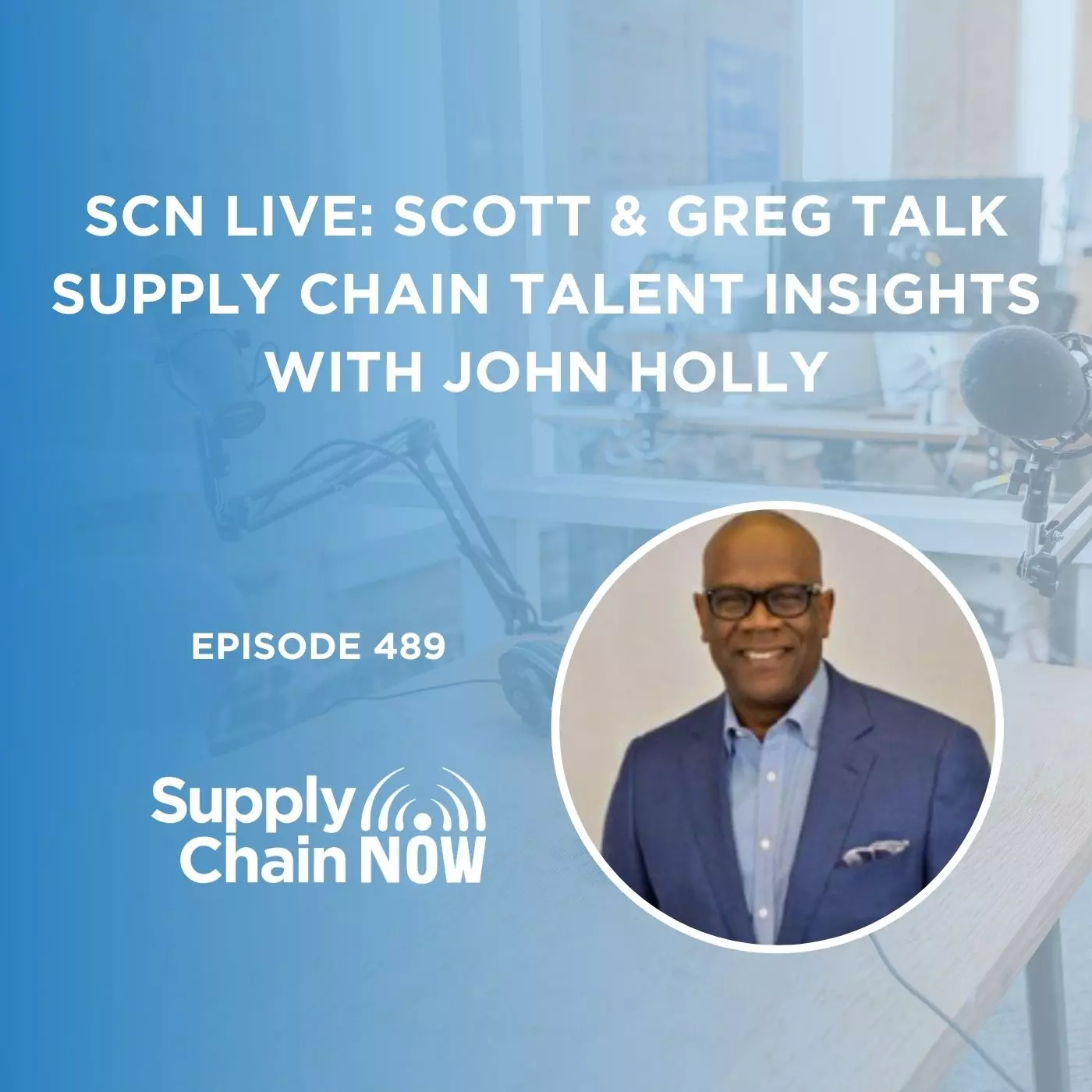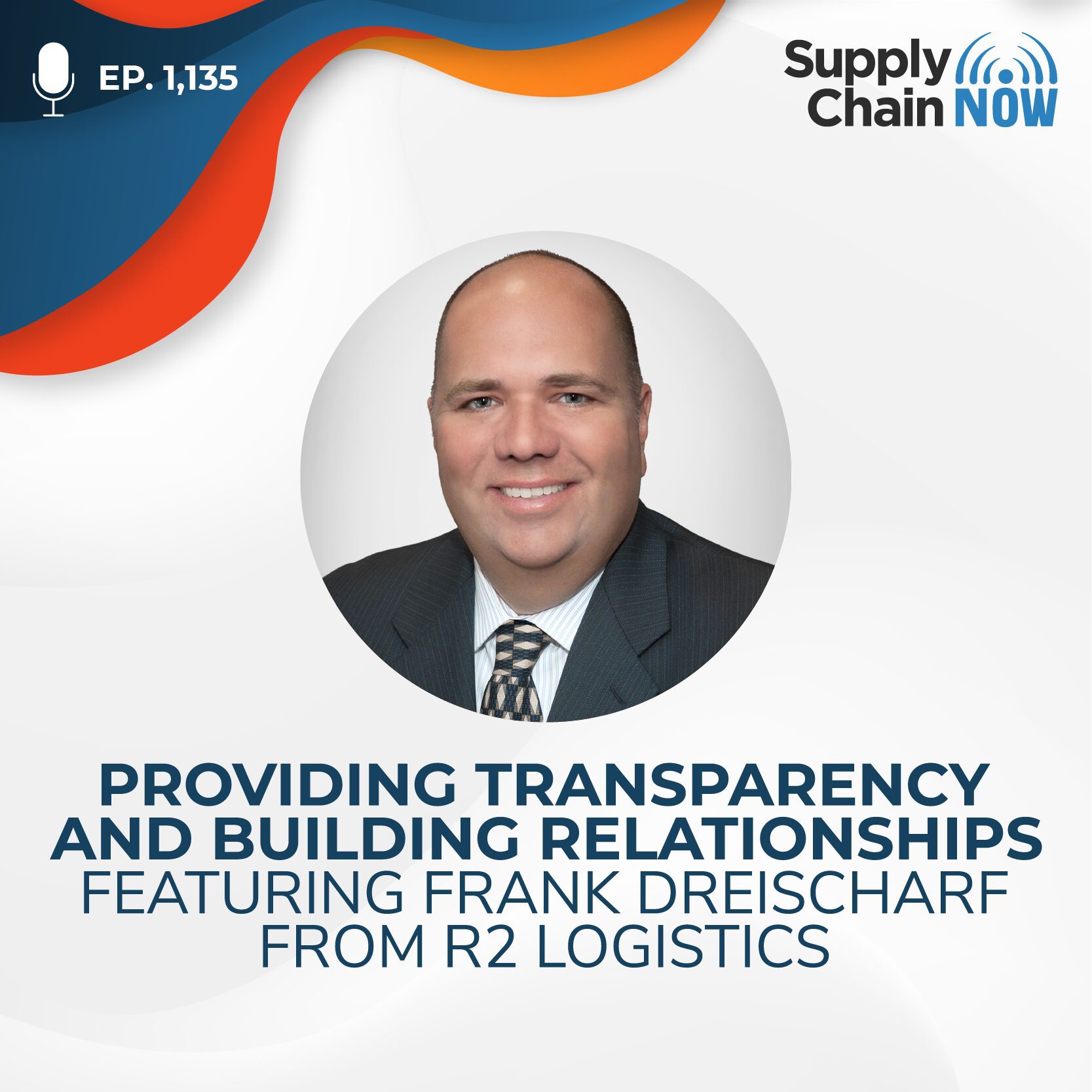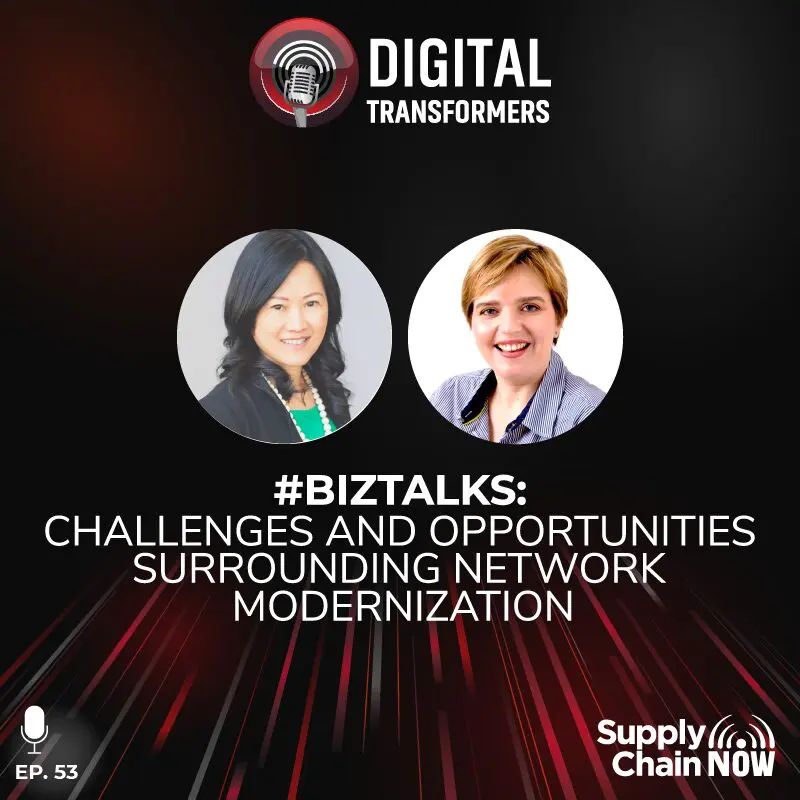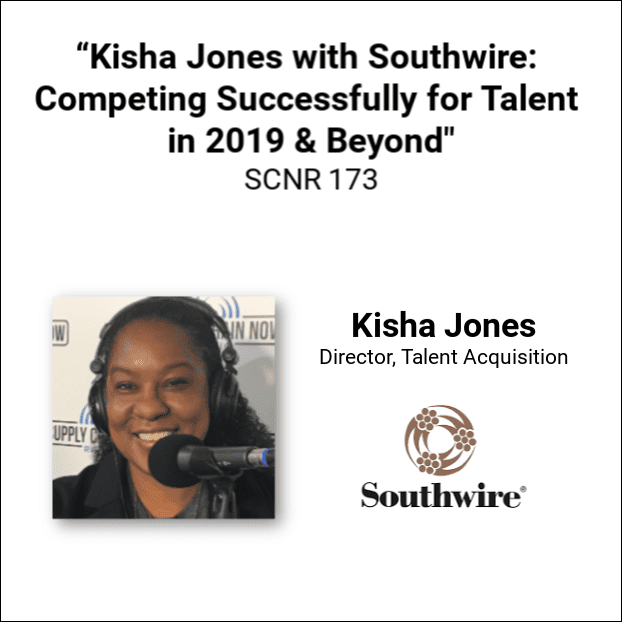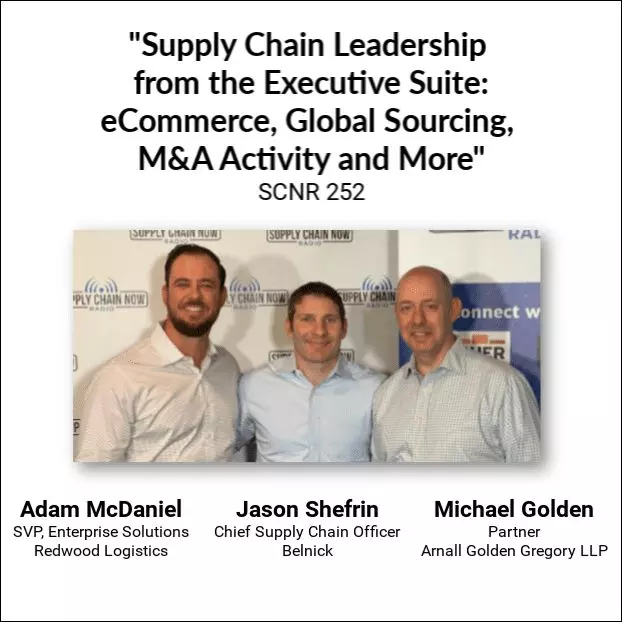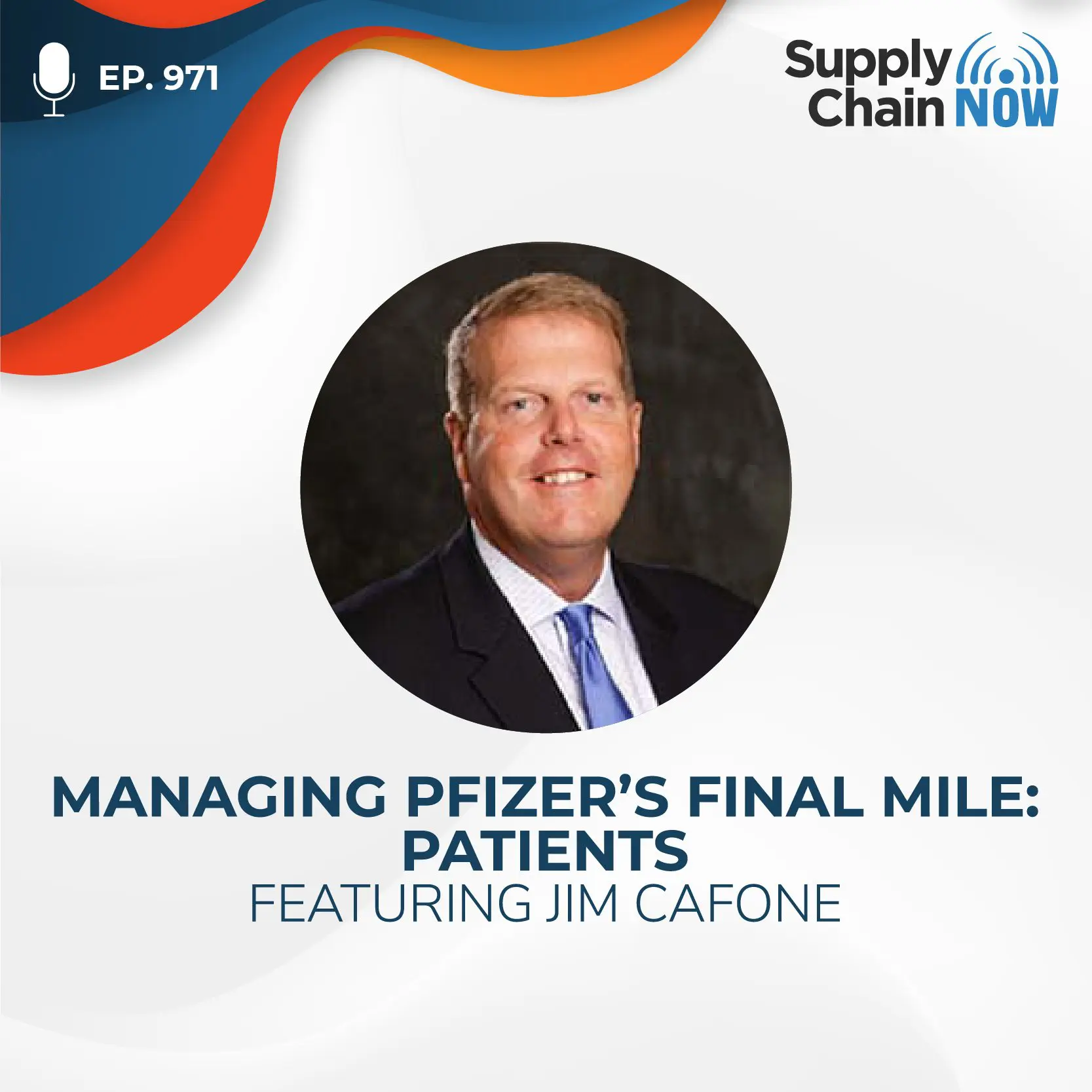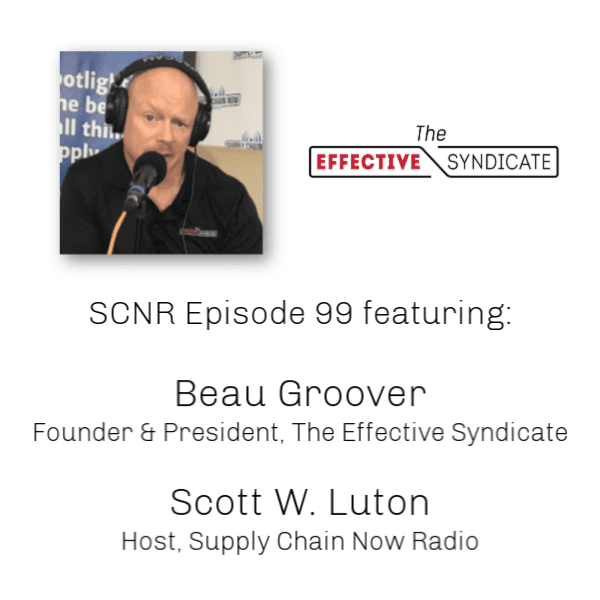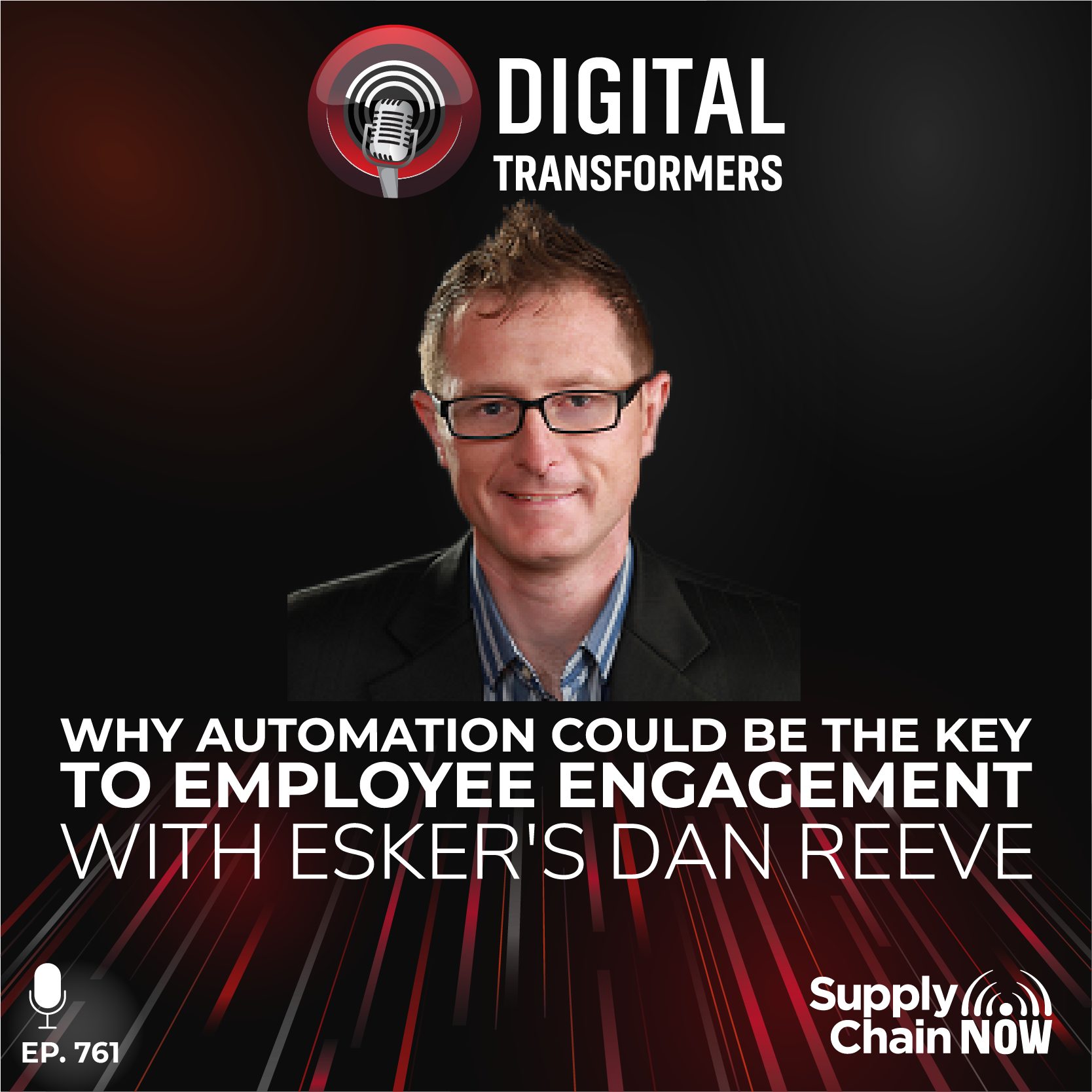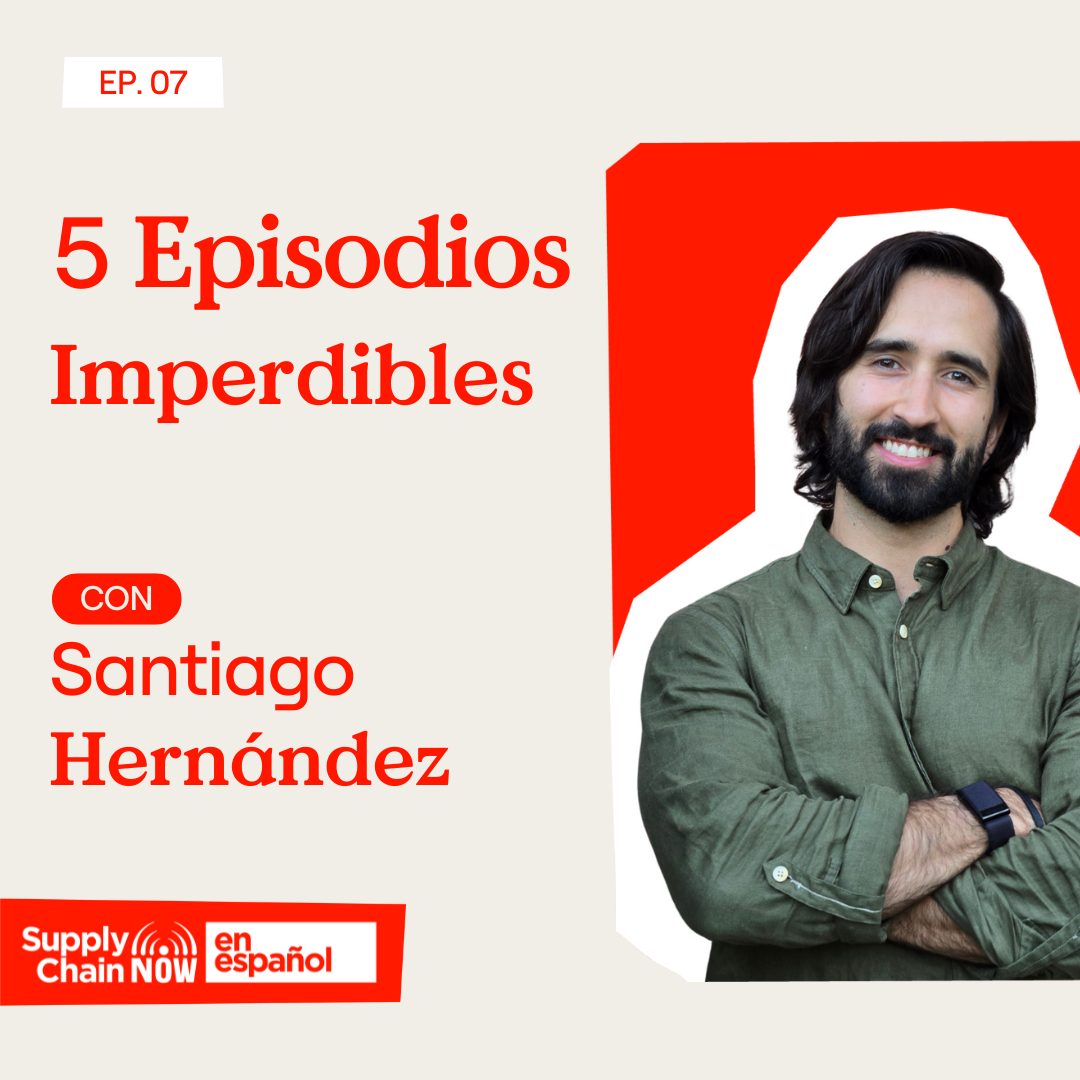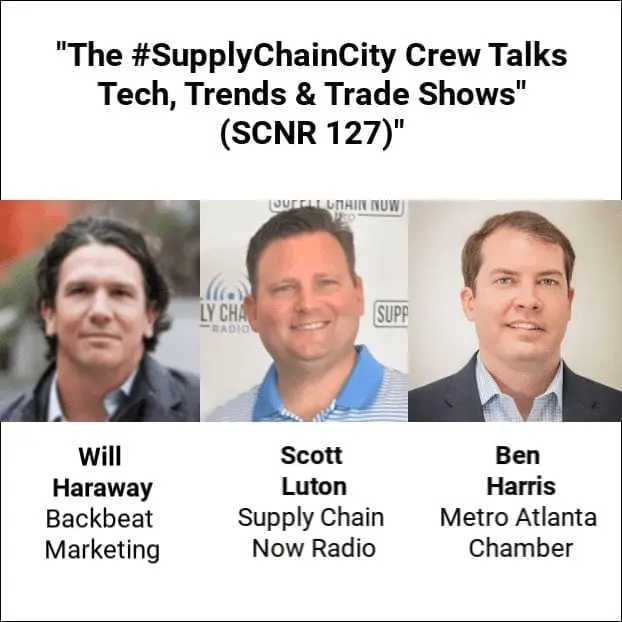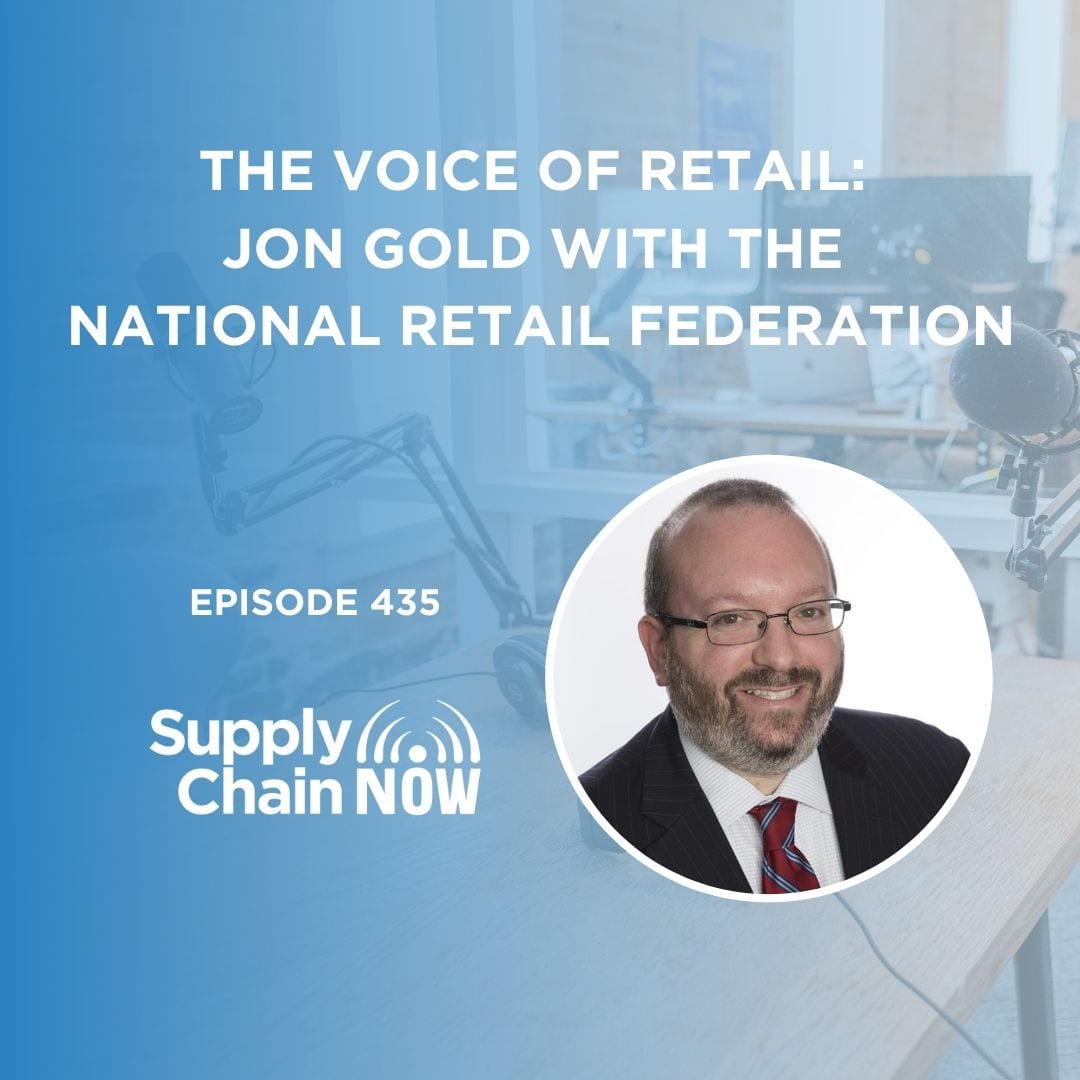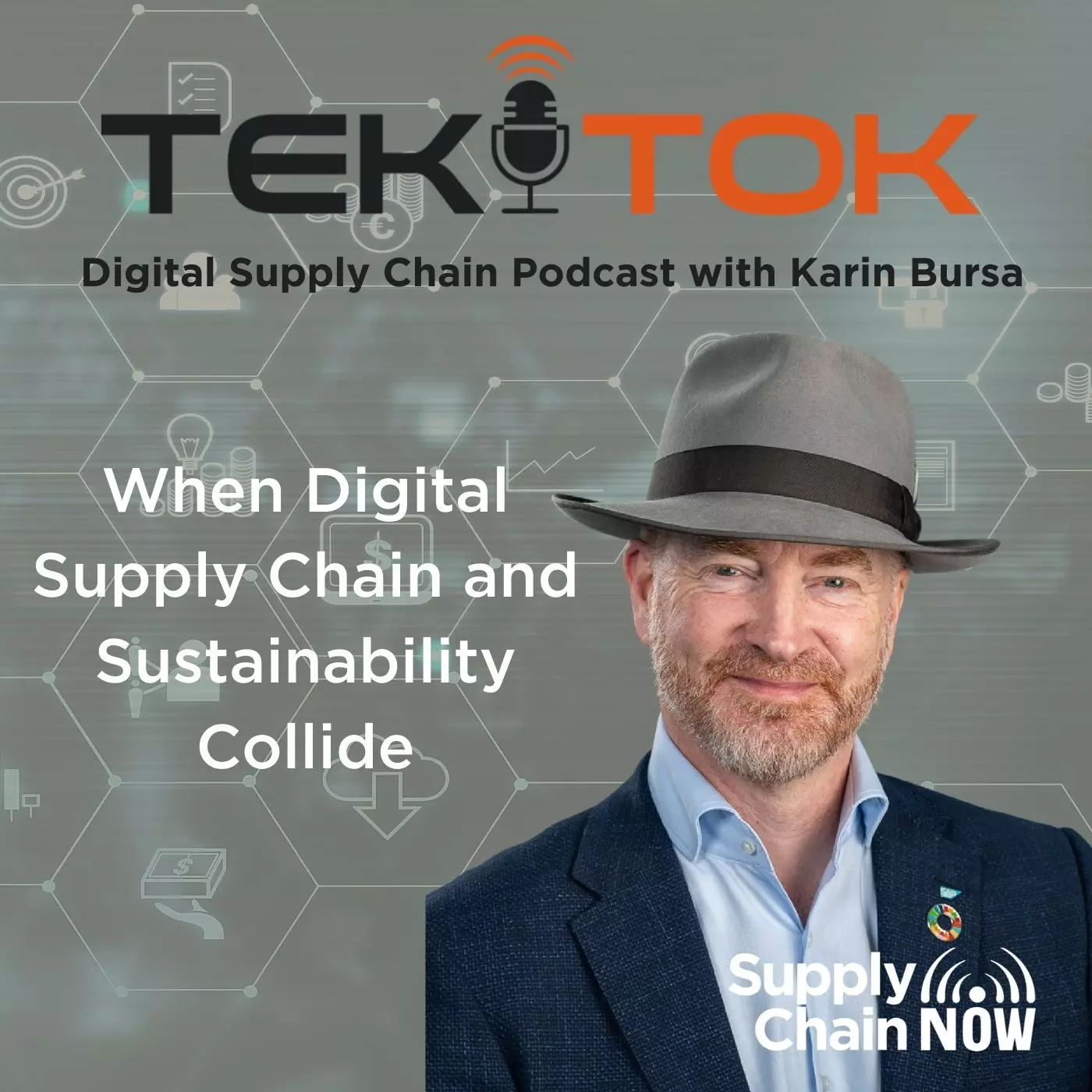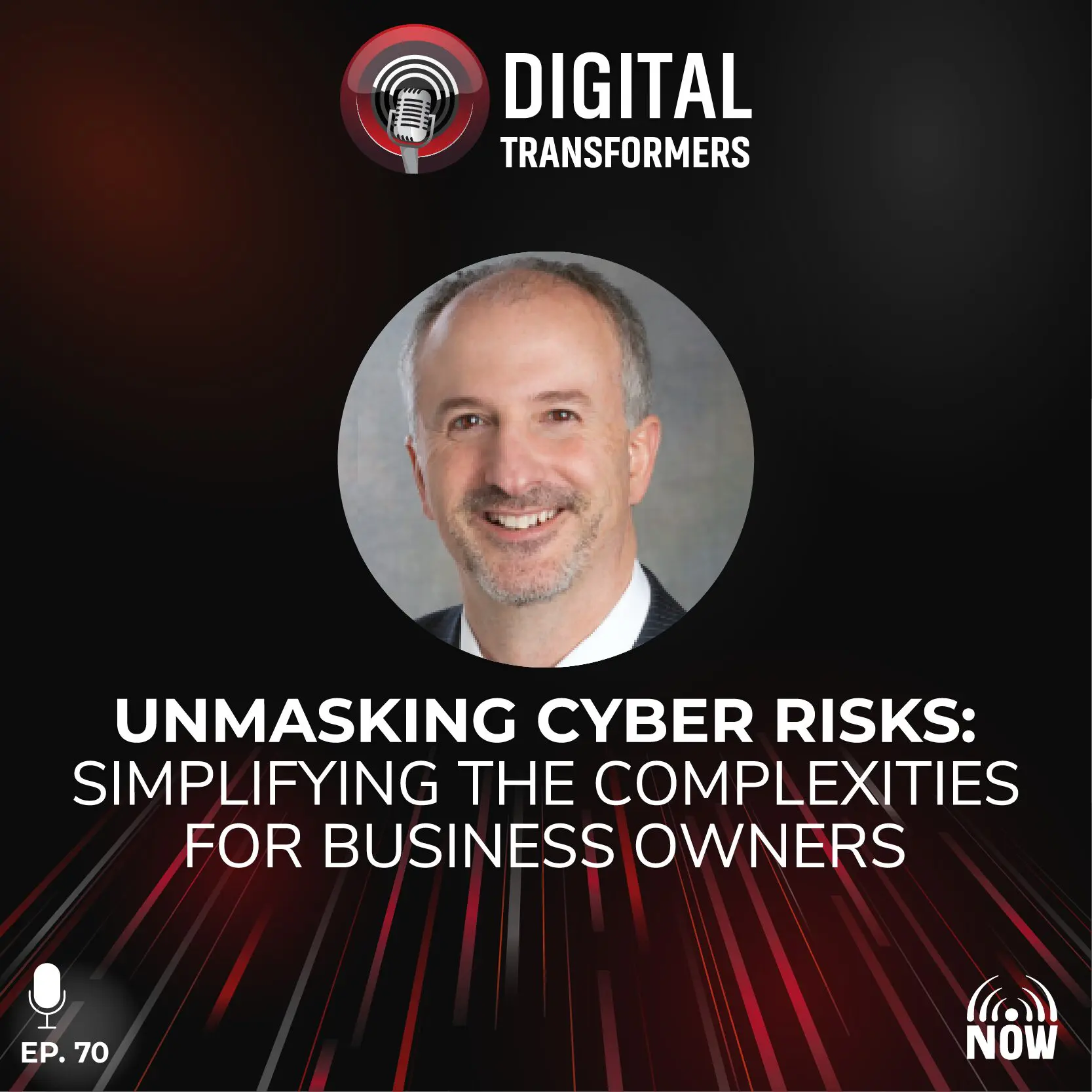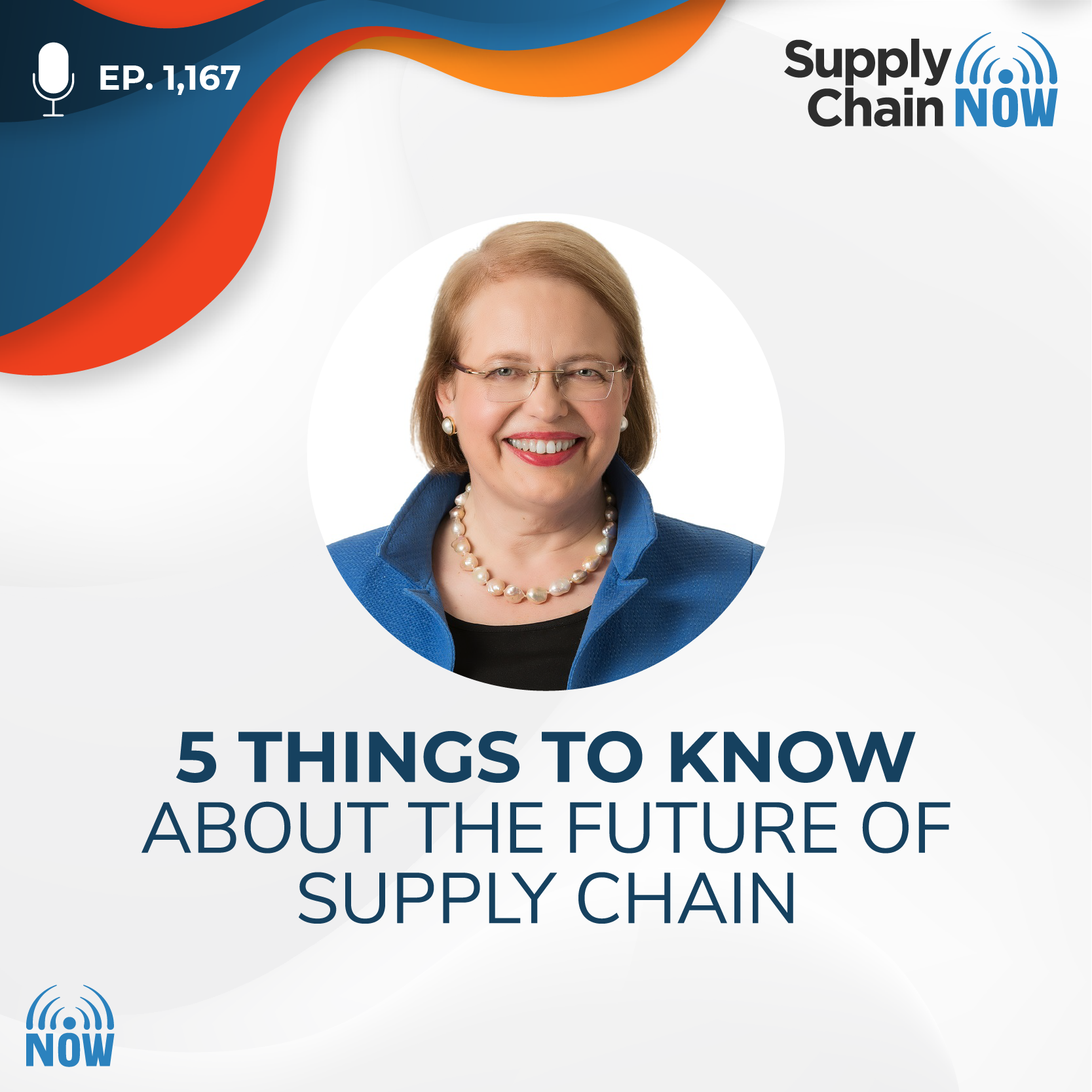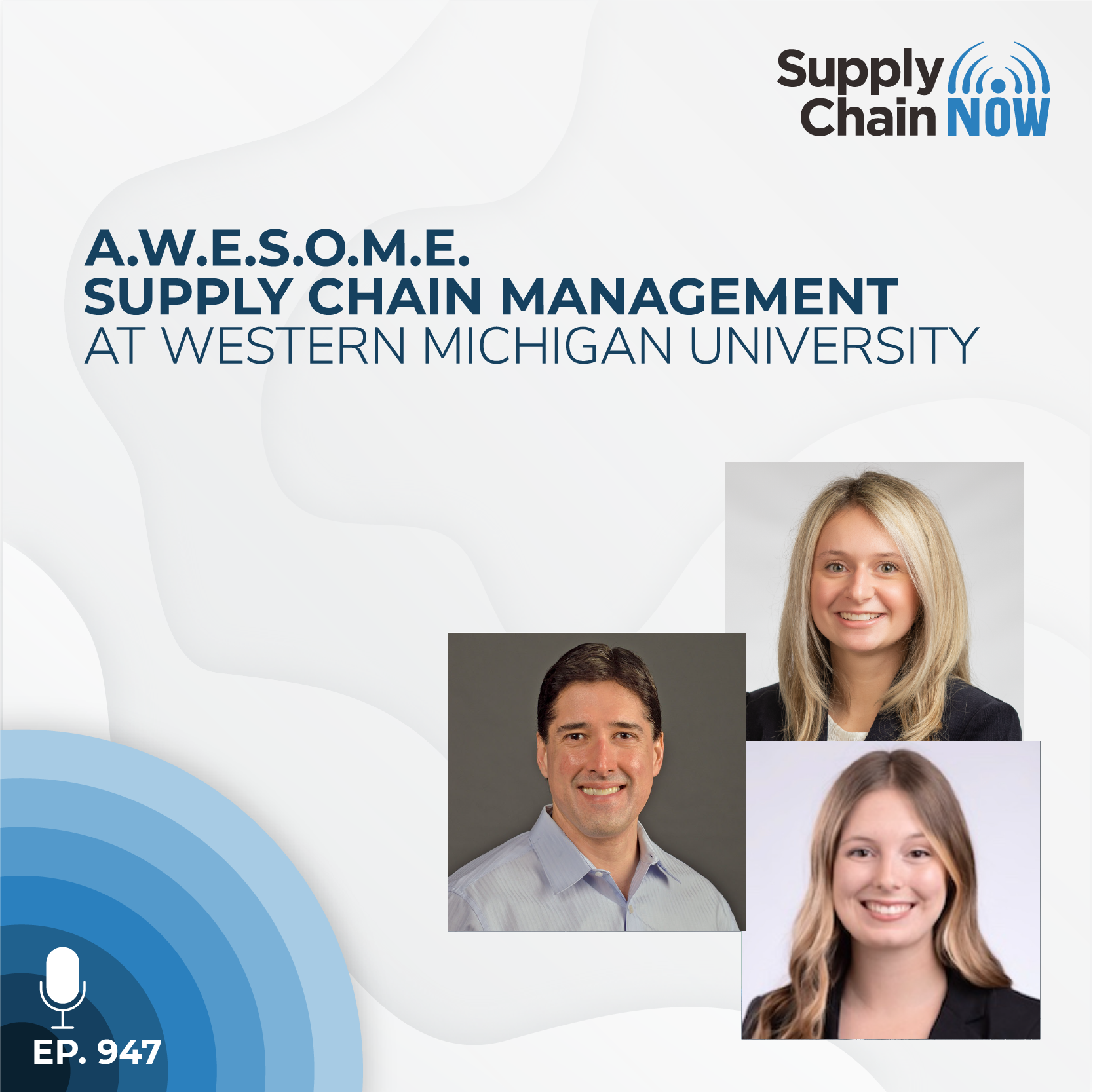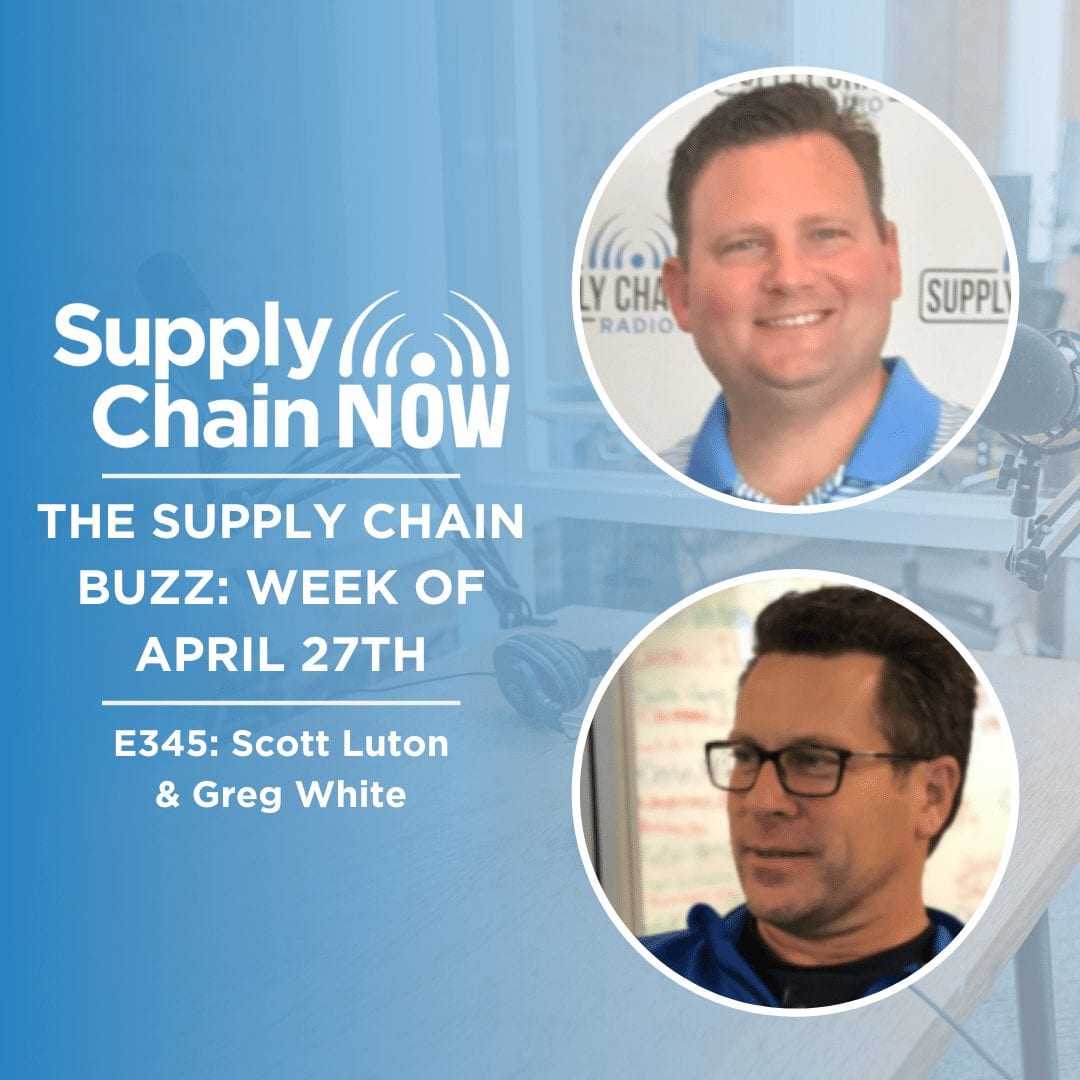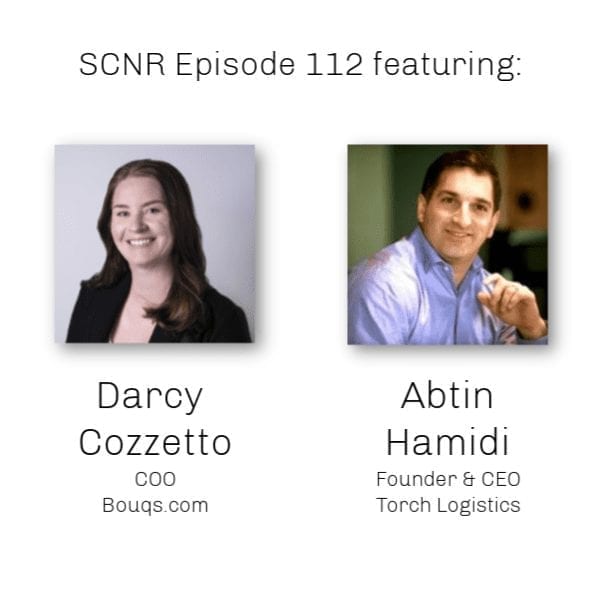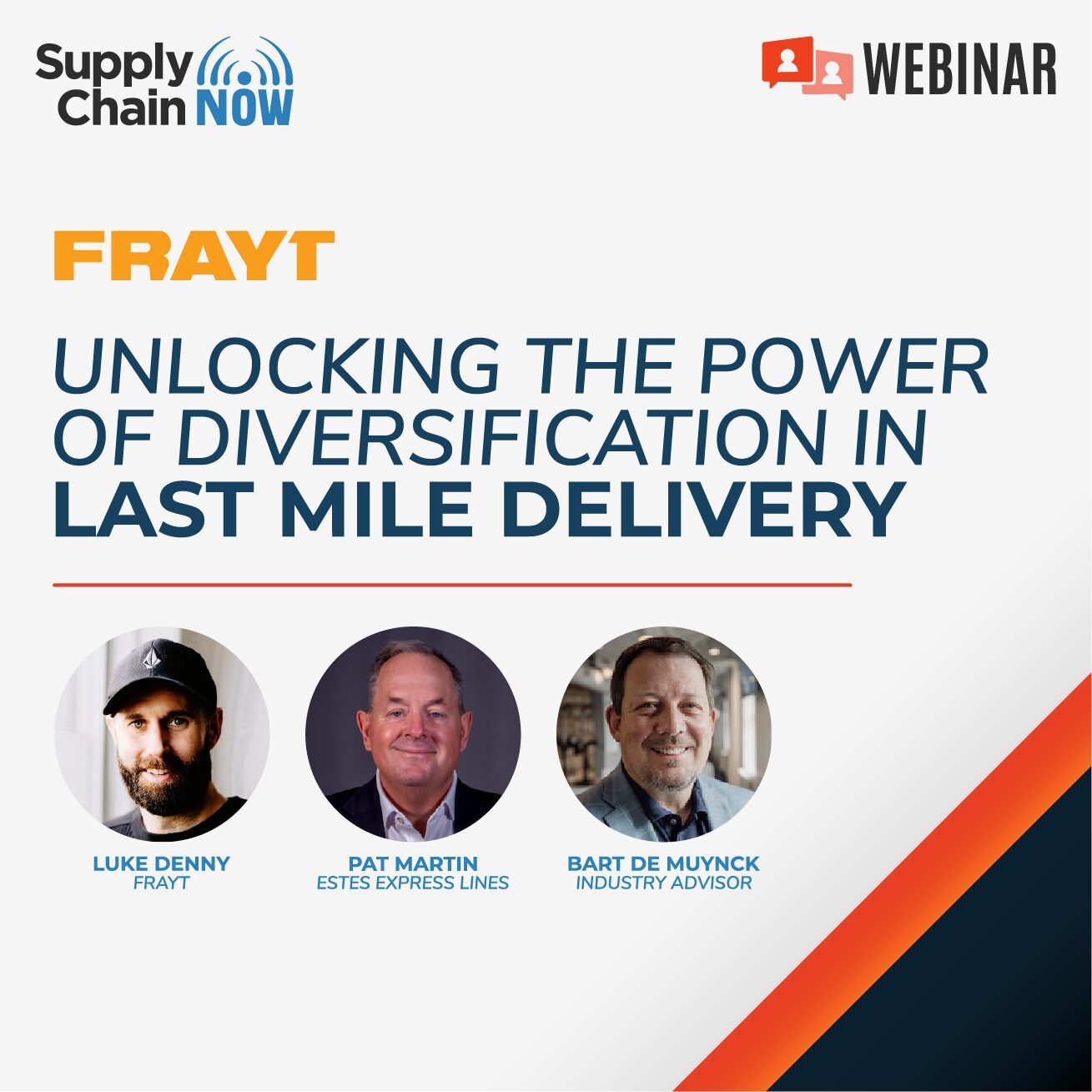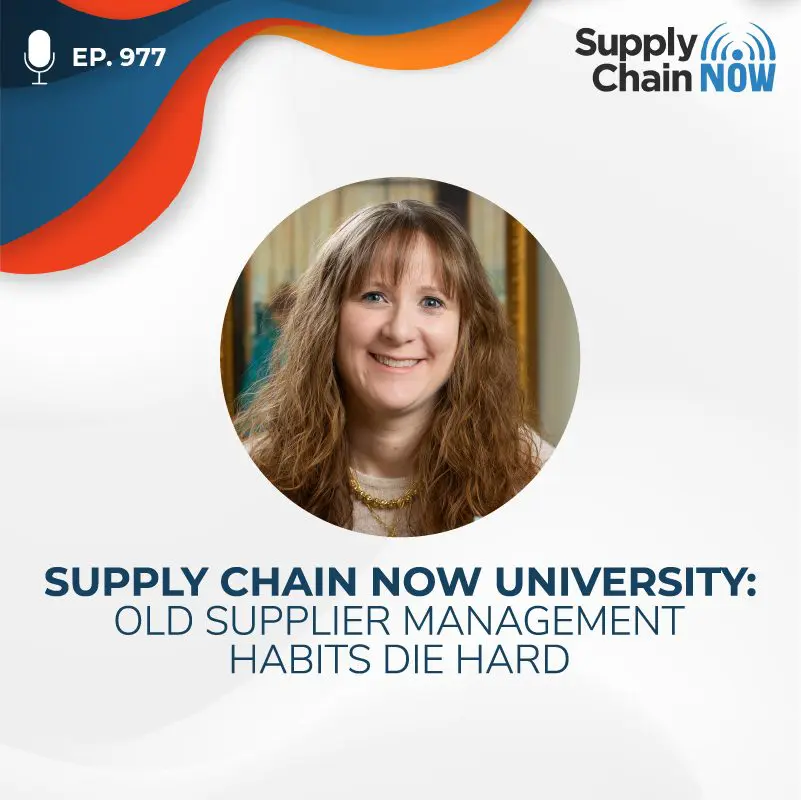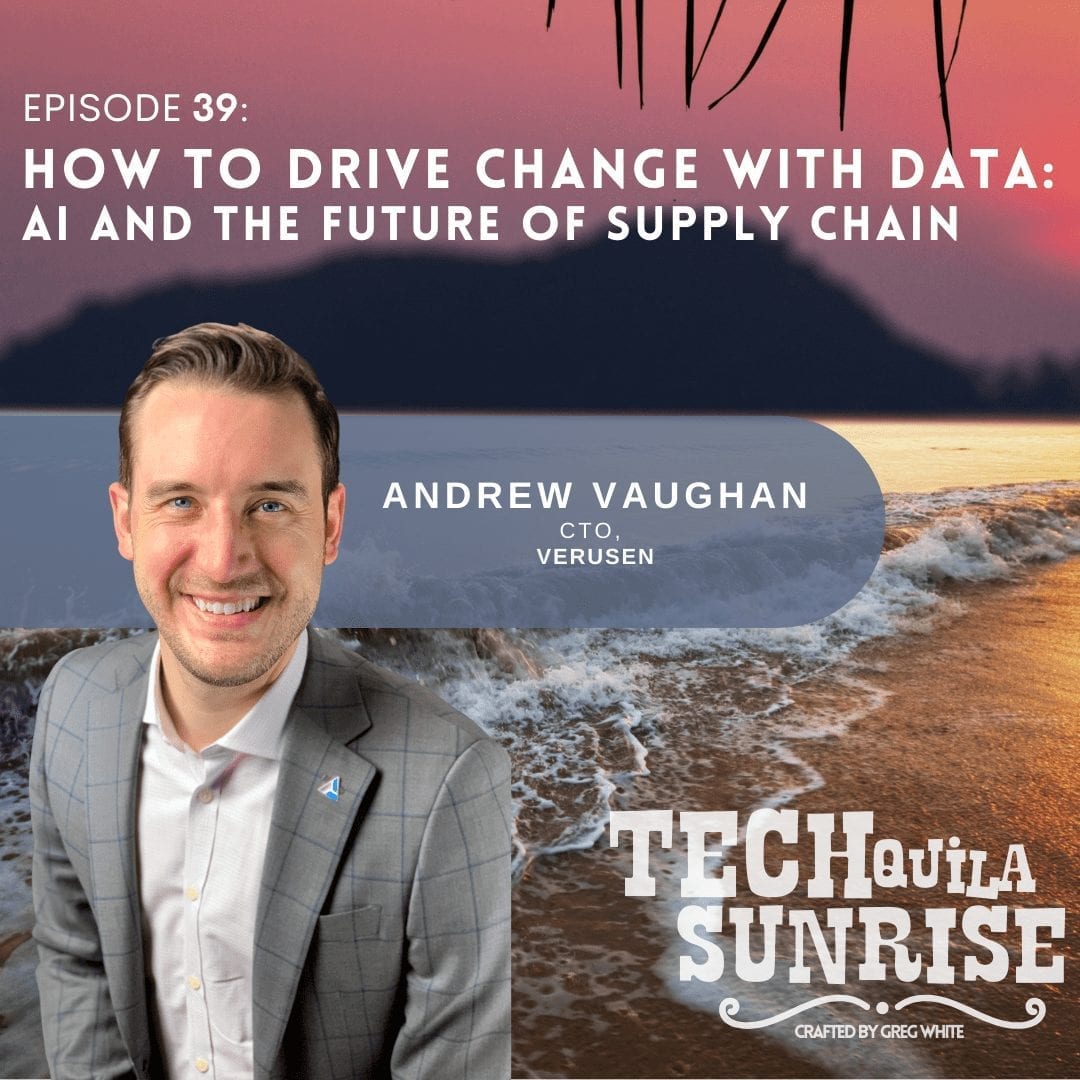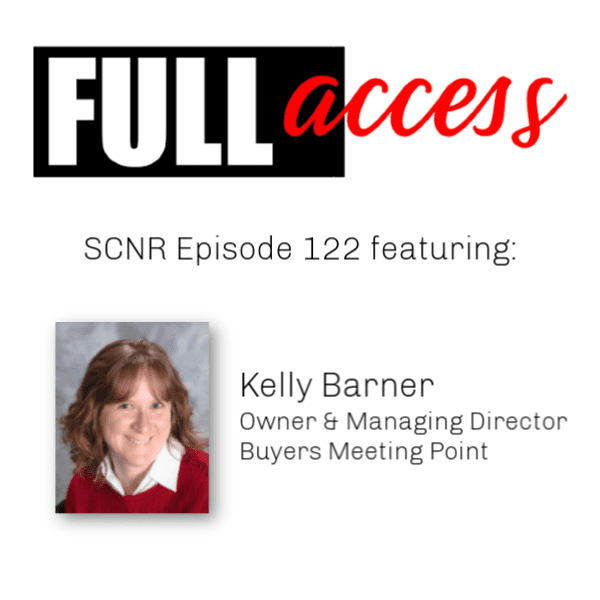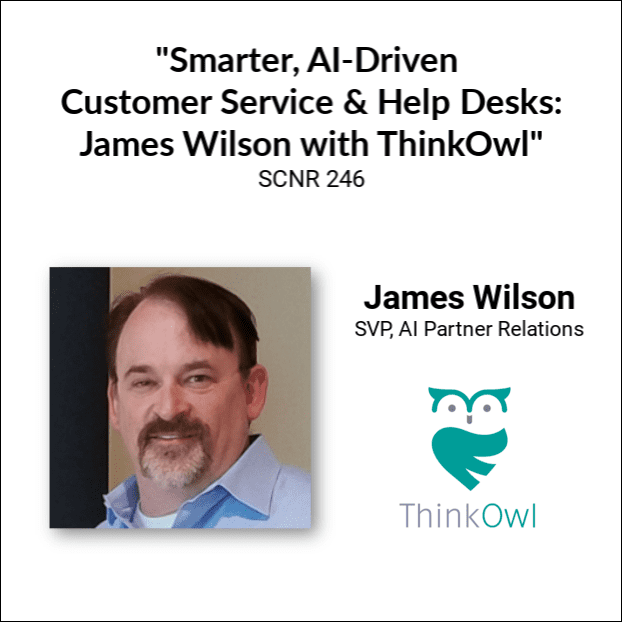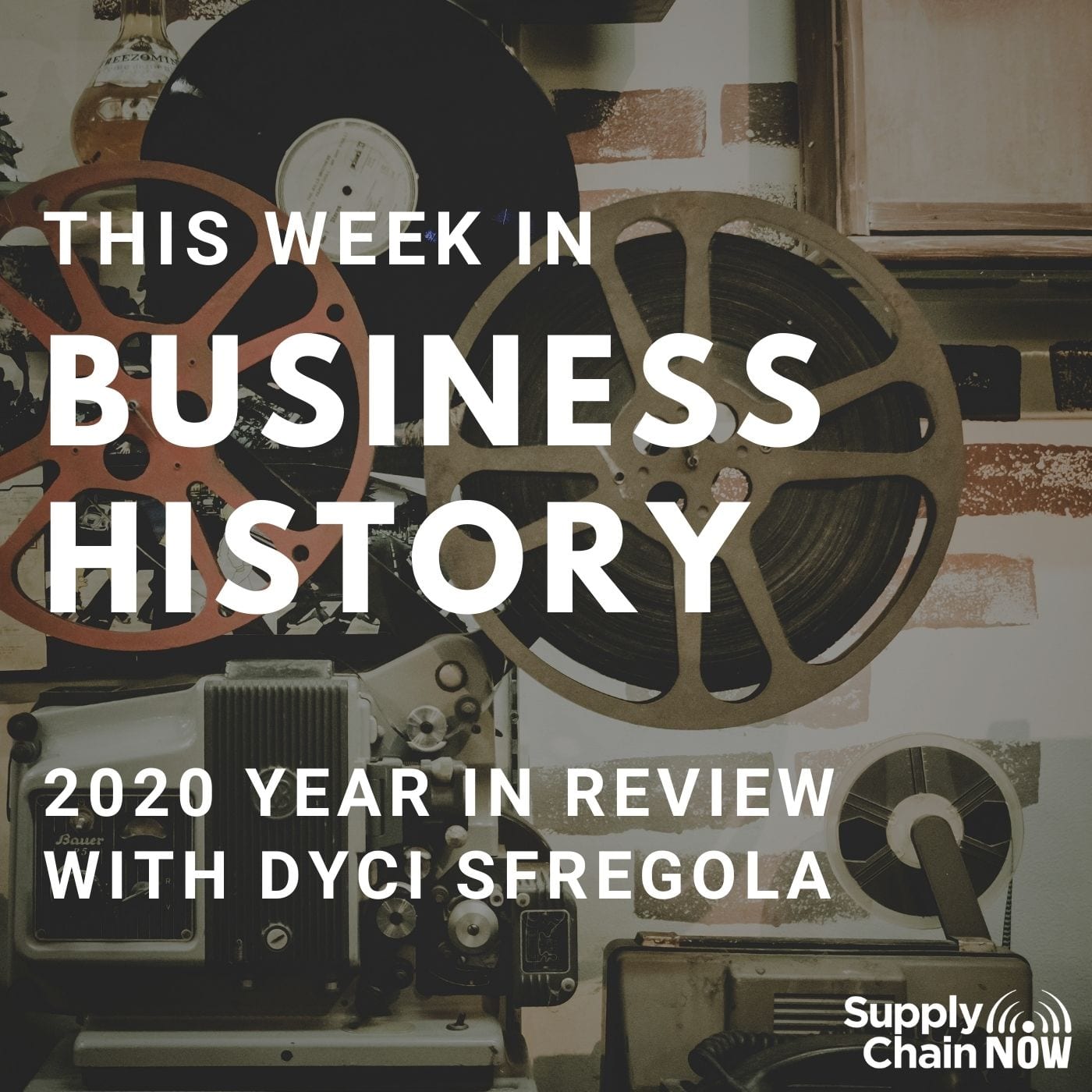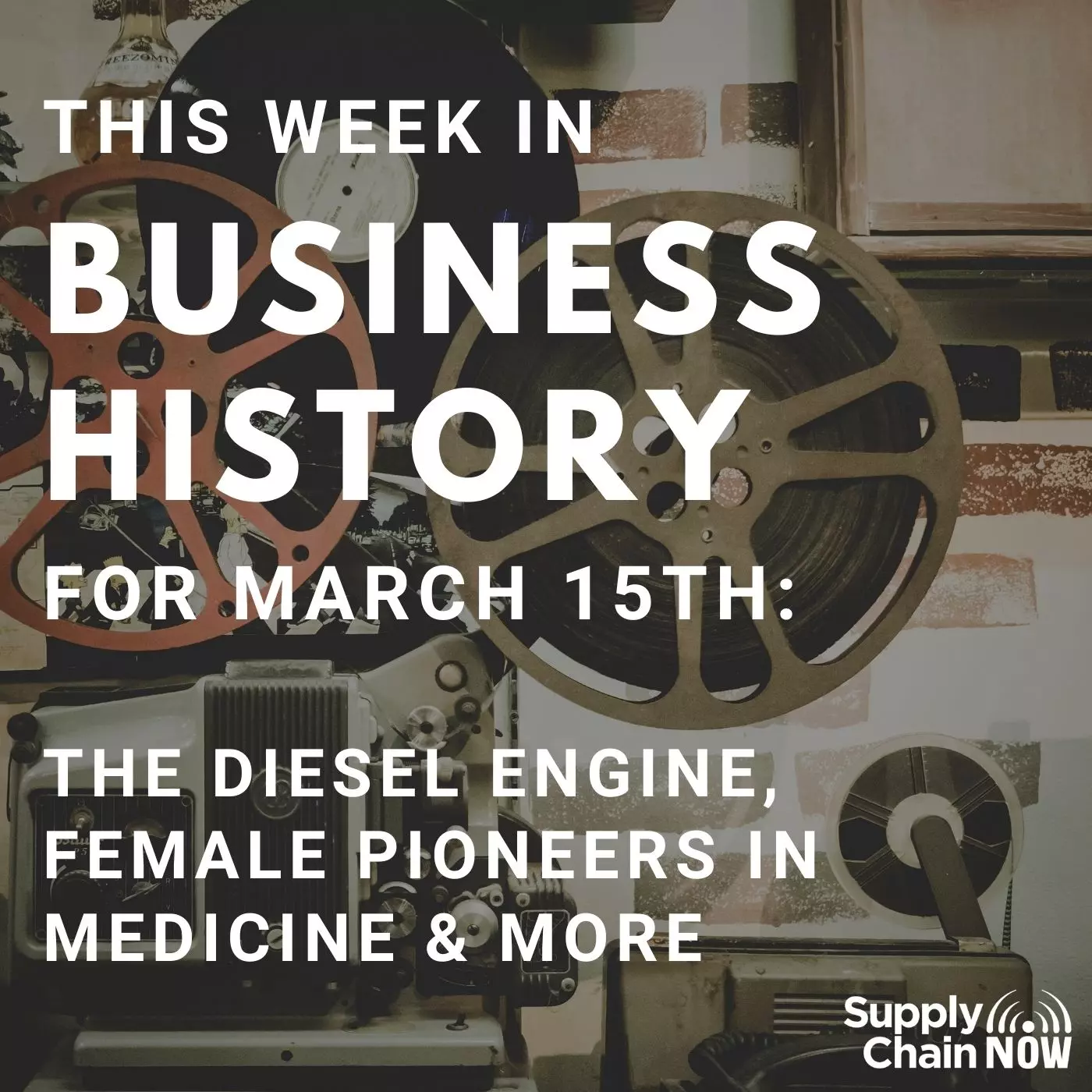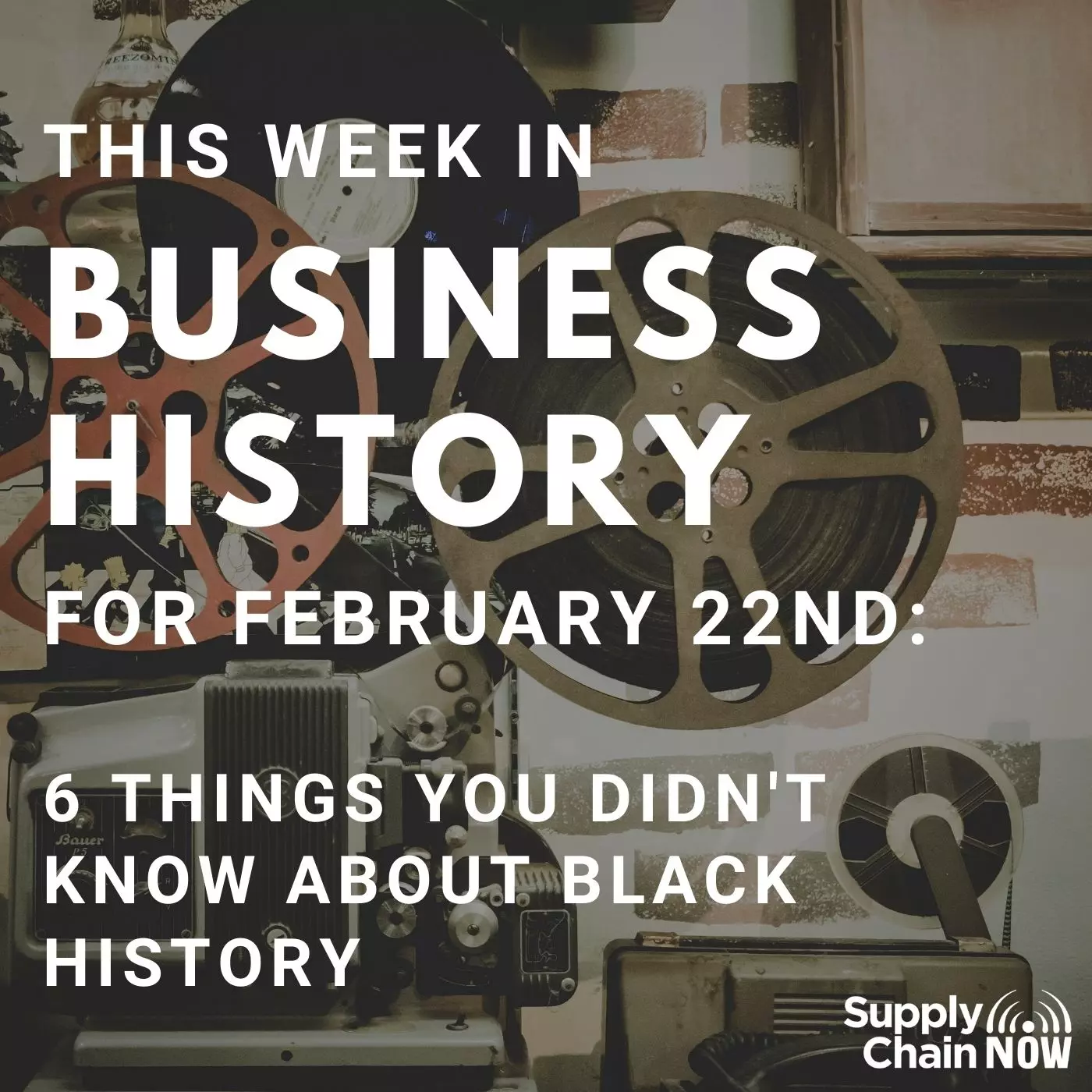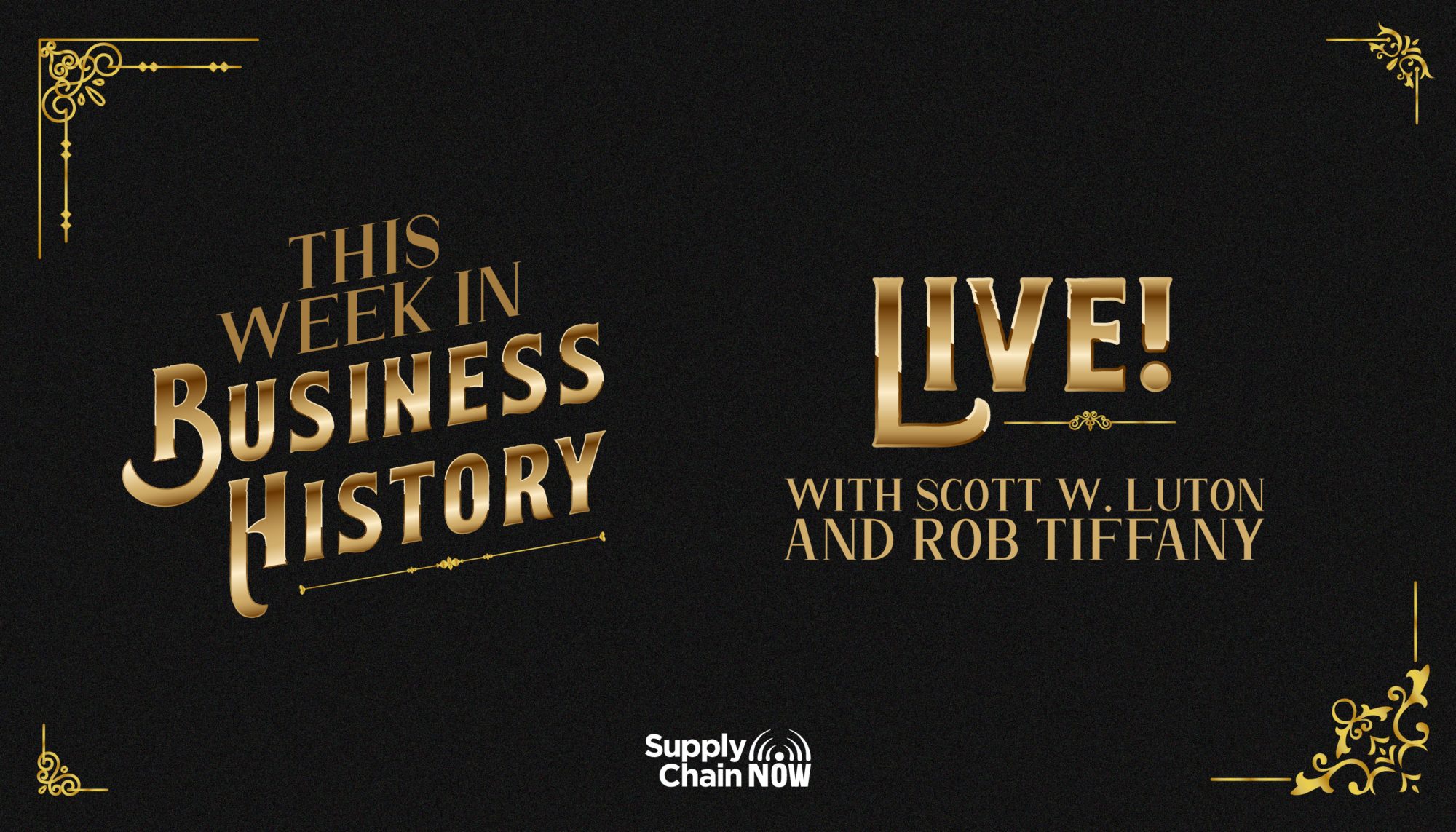
I do a lot of advising startups. You hear about terms like black swans or barbarians at the gate. You should assume there are always barbarians at your gate and their little nothing product that you think is a toy maybe one day will eat your lunch.
-Rob Tiffany
Episode Summary
From the battle of tech titans to the first music video, Scott joins Rob Tiffany of Digital Insights to dive into the lasting legacy of five major historical moments in business history for August. Tune in to learn more about Digital Channels, the impact of Jenny Craig, David Robinson’s path to basketball and beyond, and more.
Episode Transcript
Scott Luton (00:00:12):
Good morning, Scott Luton here with you on this edition of this week in business history. Welcome to today’s show on this program, which is part of the supply chain. Now family of programming. We take a look back at the upcoming week, and then we share some of the most relevant events and milestones from years past, of course, mostly business focused with a little dab global supply chain. And occasionally we might just throw in a good story outside of our primary realm. So I invite you to join me on this. Look back in history to identify some of the most significant leaders, companies, innovations, and perhaps lessons learned in our collective business journey. Now let’s dive in to this week in business history.
Scott Luton (00:01:11):
Hey, good morning. Good afternoon. Good evening. Based on wherever you are, Scott Luton and special guest host, Rob Tiffany here with you on the latest edition of this week in business history live, Rob, how you doing?
New Speaker (00:01:22):
Good. Good. How’s it going? Scott? Doing wonderful.
Scott Luton (00:01:26):
I I’m just living with green eyes over here. So jealous of your road trips <laugh> and your culinary adventures. I mean, you really have been living the good life these last couple months, huh?
New Speaker (00:01:38):
Absolutely. It’s been great. Spent a lot of money on gasoline. <laugh>.
Scott Luton (00:01:44):
believe that. But even as recently as this morning, you had a really cool adventure that we may touch on a little later on, but man, so glad you’re here with us for biz history live, thanks for some time out.
New Speaker (00:01:56):
Absolutely happy to be here.
Scott Luton (00:01:58):
All right. So folks, you may know many of, you know, here at biz history, we focus on lesser known stories of leaders and innovation at the intersection of you guested business and history.
Scott Luton (00:02:10):
So we drop a new podcast episode every Tuesday, including the replays of our live sessions like this one here today with, with the one only Rob Tiffany, in addition to the live replays, we’ve got these handcrafted masterpiece that Kelly Barner turns out in her sleep.
Scott Luton (00:02:26):
What kind, what’s your favorite donut, Rob? I like the old fashioned,
New Speaker (00:02:31):
the old fashioned by Duncan, I guess.
New Speaker (00:02:34):
No, not from Duncan. <laugh> you know, actually there’s God there place in Seattle and I forgot the name. Crispy. Cream’s pretty awesome when the hot lights on. Okay.
Scott Luton (00:02:43):
So Kelly Barner, cranks out these episodes that are as delicious as the old fashioned or just original at crispy cream. When that light’s on. How about that? I’m all in. So now that you and I, and all, all of our listeners and family members are gonna go get a crispy cream tonight. One, one more, one more little note here.
Scott Luton (00:03:03):
Cause I wanna make sure folks know the last episode that Kelly dropped was all about John. Wannamaker what she, who she deemed a merchant prince of Philadelphia. So Rob, I won’t do his story justice, but John Wannamaker was the first person to use that phrase department store, the first person to use written price tags. Wow. And a variety of other first right there in Philadelphia. So John Wannamaker y’all can check that out at.
New Speaker (00:03:29):
way to go John <laugh>.
Scott Luton (00:03:31):
that’s right about that. Yeah.
New Speaker (00:03:34):
I’ve heard of it.
Scott Luton (00:03:35):
<laugh> so, so beyond Rob, of course, quick shout out to our incredible production team. Katherine’s with us here today. Look forward to their comments. She says she loves chocolate donuts with sprinkles or Rob. The ones rolled in cinnamon sugar. How about those?
New Speaker (00:03:54):
Yes. Those little tiny donuts. And you see him come off. Have you seen it?
New Speaker (00:03:57):
And like, oh, say so if you’re in Seattle, a pipe place market, there’s a place called like the daily dozen and those little tiny out ones are coming up and then they put it in a paper bag and they just pour cinnamon sugar, hold up the bag and start shaking it. Oh, that’s heaven on earth. So yeah.
Scott Luton (00:04:14):
So thank you Catherine, for adding to my hunger for donuts, both you and Rob right now. Let’s see here. Big. Thanks to Amanda. Also part of production team of make today’s live stream happen. Hey, look at this Rob. You know Ryan there? What? Ryan, Rob. Tiffany I O T legend. How about that, Rob?
Rob Tiffany (00:04:37):
Well, that’s awesome. Ryan is my bro. He’s keeping it real for us down in Austin.
Scott Luton (00:04:42):
I love it. What, what a great city in Austin. So Ryan, welcome in looking forward to hearing any of your thoughts around the top five lists.
Scott Luton (00:04:51):
We’re gonna, we’re gonna tackle here today. So Rob back to my game plan here. So again, every other two at 4:00 PM Eastern time we go live. We want to hear from our listeners, right? This is your chance. Come in, talk about the stories we’re talking about here today or any of our past episodes. I think we’re approaching 60 episodes with biz history. Rob, really quick. I wanna make sure OT coffee chat. I think I is one of your li what’s that Rob? Almost.
Rob Tiffany (00:05:21):
Yeah. It’s IOT coffee talk and we record it every Wednesday morning. We’re a bunch of YouTubers who irreverent, you know, it’s like watching sports center. I know I’ve seen them.
Scott Luton (00:05:32):
You keep a bunch of smart. It’s a very smart ESPN conversation with the likes of you and some of your distinguished guests. So y’all check out every Wednesday morning. What time Rob?
Rob Tiffany (00:05:45):
Eight Pacific, but it’s not live. So don’t worry about it. We just record it that’s time. And then it goes up on YouTube.
Scott Luton (00:05:51):
Hey, it it’s good times. I’ve seen lots of episodes. You, in fact, I discovered you on Twitter and, and as I started to piece together who is Rob Tiffany? I was like, goodness gracious. We also found out that folks listened to our veteran voices series. Rob you’re a fellow veteran served in the us Navy, a board of submarine. We’ve had some interesting stories you’ve shared there as well. Huh?
Rob Tiffany (00:06:14):
It says a lot about my mental state that I used to serve on submarines. So yeah, it was good times.
Scott Luton (00:06:21):
It is such a, a, a different type of, of, of service. And a lot of folks don’t know about. So maybe we’ll have to drop the link to the episode in the chat, but all right, so I’ll digress.
Scott Luton (00:06:35):
We’ve got five interesting historical moments to share here today, Rob our top five list. So number one on our list, Rob, I want my MTV. So on Saturday, August 1st, 1981 at precisely 12:01 AM Eastern time, MTV was launched with the simple words, ladies and gentlemen, rock and roll. Of course the legendary first music video to play on MTV was Rob, do you remember video? Okay. It’s video video star by thes yes. Rock. Yes, man. Right on cue. Nice. Nicely done. So, but did you know this initially at launch NTV was only broadcast to homes in New Jersey, but of course that would change as the channel became more popular and influential leading to broad global access. So get this Rob by 1983, revenue’s MTV would be 27 million, right? We’re talking just a couple years after launch and by 1992, which was arguably the peak of the MTV brand, at least in how it was initially conceived the channel in 19, 19 92 reached 112 million homes and hit over 400 million in revenue big year.
Scott Luton (00:07:54):
Do you remember the year? 1992? Rob?
Rob Tiffany (00:07:56):
I honestly, if I could just sit around and watch like the first, maybe 1, 2, 3 years of MTV continuously, I would probably do it.
Scott Luton (00:08:05):
I’m with you Rob it. Yeah. So I’ll tell you for many of our listeners now, it, it, it was so different than what MTV is today. And we’re gonna touch on that in just a second. Did you know the MTV mu video music awards, Rob would debut in 19 90, 19 84, 19 84. And the VMAs have become one of its most watched annual events. In fact, going back to this moon man, right to the right, which was part of the original branding of the launch. That’s where the VMA award comes from.
Rob Tiffany (00:08:38):
Yeah. The trophy, the little moon man was what you get that’s right. I think that’s much better than an Oscar.
Scott Luton (00:08:45):
<laugh> I agree with you. Space space is much cooler space is much cooler.
Scott Luton (00:08:49):
Absolutely. Now of course now in 2022, as we’re talking about MTV looks a lot different music videos are nowhere to be found, but you will find Rob lots of ridiculousness episodes. Yes. Which Rob, that’s a story in of itself. I watched a YouTube deep dive into how that came, came to be. Yeah. And you know, Hey, I’m not, I’m not throwing stones. Uh, ridiculousness is really, it’s a funny, it is fun. Uh, funny TV show led by a fellow entrepreneur, but it’s amazing how that has permeated as I think it’s still the majority, uh, type of programming on MTV.
Rob Tiffany (00:09:28):
Wow. It’s just a bunch of old gen Xers saying where are the music videos? You know what the heck? Yeah, no, I totally get it. Yeah. Like ridiculousness that, yeah. That I can get sucked into that pretty easily.
Scott Luton (00:09:41):
I can too. I can’t do <laugh> my middle child. She’s addicted to it. She always wants it as we sit down for dinner. Okay. So as we start to wrap this first item, there’s I want talk,
Rob Tiffany (00:09:51):
did you mention Duran Duran by the way?
Scott Luton (00:09:54):
I have not. I have not any of those big 1980s MTV bands and early nineties that made a big presence. I have not mentioned. Who else would you add in that category of Duran Duran?
Rob Tiffany (00:10:05):
I mean, you know, cuz so much of what the eighties were and what MTV did there was this whole subculture, this whole new wave thing that happened in the eighties. And a lot of these songs were only played in clubs and they were never played on the radio until later on. But you got to see these obscure artists on MTV that you never would’ve heard of. You know, like God, what’s the, you know, haircut 100, right.
Scott Luton (00:10:29):
Or how about the bugs? What they look with.
Rob Tiffany (00:10:29):
Scott Luton (00:10:32):
Absolutely. You know, I’m on a Mexican radio. Who would I have heard that on mainstream radio, you know? Well Rob you’re so right. One of the things as, as we were researching for this first story, many radio stations were talk across the country, were getting phone calls, getting requests that they had never heard of to your point. Exactly. And that was part of the MTV effect. Yeah. So let me share, I look first, what’s that.
Rob Tiffany (00:10:57):
psychedelic first the cure. I mean we, you know, new order, we can just go on forever. They were those weren’t mainstream bands. Well, they were in, they were in, in UK I guess, but not in America,
Scott Luton (00:11:09):
you know, you might even put, and now, you know, most folks would know REM as one of the world’s greatest rock roll bands, but in college based incarnation that’s right from college band that’s right, right down the road in Athens GA.
Rob Tiffany (00:11:21):
Absolutely. Yeah. All right. Cool. B 50 twos. Yes. B 50 twos. Yes. Love SHA baby.
Scott Luton (00:11:29):
All right. So we’re gonna have the MTV version of BI history live here in just a second, but, but Rob switching over to the business side, Adam bear over at the conversation list. When we, when he talked about the biggest ways that NTV shape the course of business history, content history, or however you wanna put it, he kind of boiled down to three things, at least from what I read, number one, MTV’s ability to move records was significant as we’re all talking about, especially in the eighties, early nineties, two cable networks, which were made up of popular channels, like MTV, like a USA network, like HBO, maybe, you know, those were some of the first blows to the dominant traditional broadcast networks. Right. And we all see how that’s continued to evolve today.
Scott Luton (00:12:13):
Right. And then thirdly, MTV was also amongst the early earliest of trails, bla trailblazers and the globalization of content and media, you know, think of it. They launched sister channels like MTV, Europe, MTV, Brazil, and unique content. Rob, do you remember the, the show that has been copy CADed a thousand times or more the real world? The real world. Yes. Everyone uppy yet. Yes. Where was reality TV before the real world should have didn’t exist. Right. Real world invented it. You’re absolutely right that crazy. It, so let me get your, get your take. I wanna ask you about your favorite show. Right? Cause there’s a variety of game from game shows to of course music shows and VJs and all that stuff. But before we talk that, you know, when you think of the impact, the business history impact of MTV, what else comes to your mind?
Rob Tiffany (00:13:10):
Well, you used to have, obviously it was all about bands and mostly, you know, and the, the videos and you went from making records and the DJ, you, you, your success or failure as a band was dependent on DJ playing your, your song on the radio. And then you moved to the steel where now you’re starting off with cheesy videos where maybe they’re just standing on the stage with a guy with a, a camera. And then pretty soon you got high production values. And so it became like a Hollywood thing. And then there was no such thing as launching an album in a hit song without an accompanying video. And a lot of people who weren’t in bands, but maybe were background dancers or things like that. They ended up making it in other things too, so right. It, it, it, and so yeah, it, you know, it really galvanized an industry there.
Rob Tiffany (00:14:04):
I’m sure you’re thinking of something totally different, but that’s what came to my mind. My, my simpleton brain.
Scott Luton (00:14:10):
That’s not, no, that’s not simpleton. I would say that is the artistic side. Yeah. Of that, of that question and that answer. So I love that. Rob, one thing I’d add, and I wanna get your favorite show on MTV and the olden, the, the, the, the golden days of MTV, maybe we’ll call it. But arguably based on what I was looking at, one of my son’s favorite songs, Bohemian MI RHY by queen, they, or at least by a couple sources, have the distinction of having the first true modern day music video. Did you know that Rob?
Rob Tiffany (00:14:44):
I didn’t know that .
Scott Luton (00:14:45):
Nowthe Beatles and other groups experimented, right? Sure. With, with the video side of music, but yeah, that is one of Queen’s many, many contributions to the,
Rob Tiffany (00:14:54):
if you ever hear that song, come on, when you’re driving the car and not start, right.
Scott Luton (00:14:59):
<laugh> if you’re gonna this cup, I mean, I can’t separate that song from Wayne’s world. Right. But Hey, I’ve digressed,
Rob Tiffany (00:15:08):
MTV made a lot of movies and MTV makes shows that you don’t think are associated with MTV. And so, while you’re looking for an old show for me, I’m gonna say something that people will not expect. What’s the never one show on TV for the last few years. Oh, then it’s called Yellowstone. Oh yes. This place in Montana, you might be surprised when it first comes on. You see the moon man from MTV and you’re like what? Kevin Costner and all these Cowboys and rip taking you down to the train station. They’re hanging out with those MTV kids. It’s me. I’m not flying. Well, we’re gonna have to, you know, we’re gonna, we’re gonna make that be one of our next subjects for a BI history live like further explore in all the different ways MTV’s got its fingers and toes into modern successful content.
Scott Luton (00:15:59):
Hey, really quick. Amanda says she loved watching VMA the VMAs back in the day in TRL, which was total request live. Remember that class? Yes, I did. I did. That was pretty cool. She was also a big fan of the real world. And I’ll tell ya, Rob, I’m not sure if you’re a fan, but she and I both are big fans of big brother these days, which I think since 23rd or 24th season, which again was a byproduct of the real, the real world, big world. It was,
Rob Tiffany (00:16:26):
I have watch that in a while. It’s been a while. You know, it seems slow on so long. I thought they weren’t on anymore.
Scott Luton (00:16:32):
<laugh> I can relate. We got so much. We have so much between streaming and TV and road. Cool. All this stuff so much to choose from. Right. Finally. So think back, Rob, in the eighties and early nineties, the MTV kind of the it’s first chapter, right? Well, when it’s closest to, how is launched, what is one of your favorite shows from the golden age? NTV.
Rob Tiffany (00:16:56):
shows? Yeah. Wasn’t there one called well, remember they had the news saw news show. Like, was it 90 minutes? 60 minutes. Kurt loader. Yes. First loader. I totally remember that.
Scott Luton (00:17:08):
You’re gonna have a blast. Let me, let me suggest one to you. Cause this is gonna be a blast. A pat I’m really struggling. Well, Hey, we, we got so much else between our ears these days. Right, right. Remote control. Do you remember that game show where you had three contestants sitting in recliners? Yes, I do. And I can’t remember the host’s name, but the guy from C night live Colin Quinn sidekick. Yeah. Right. Oh my gosh. And when they would, when the first loser would, would be dismissed, they would fall back into the wall.
Scott Luton (00:17:39):
Remember of this Rob remote control. I do. You know,
Rob Tiffany (00:17:42):
having them fall back into the wall, kind of it’s high, like Dr. Evil, pushing the button and you’re like people die. Yes. Yes. Love it. Yeah.
Scott Luton (00:17:51):
Okay. Thank you, Amanda. Thank you, Amanda. For making us all feel old.
Rob Tiffany (00:17:54):
77 makes me feel young,
Scott Luton (00:17:58):
man. No kidding. Goodness gracious. Okay. Well, um, enough about MTV, although we could make the full hour about MTV. I think you around both were big fans.
Rob Tiffany (00:18:06):
Finally, girl, <laugh> out the moon unit. Oh, well. And alright, so one more remember moon unit and Dwiesel started as on new show on there. Remember there were VJs for a while.
Scott Luton (00:18:18):
That is right, Rob. I completely forgot that. And.
Rob Tiffany (00:18:21):
everyone’s favorite. All American sweetheart was Martha Quinn. That’s right. Yeah, man.
Scott Luton (00:18:26):
You, you are really, it’s all coming back to you. I can see it.
Rob Tiffany (00:18:29):
It’s all coming back.
Scott Luton (00:18:30):
Hey, well the monkeys, uh, you know, one of my favorite, my mom’s favorite bands growing up and then I became a fan from her fandom. And then what sealed the deal and why I know Mo just about every word of, of at least all the popular monkey songs mm-hmm <affirmative> is MTV started putting that old sitcom from the sixties in its rotation to kind of feel time mm-hmm <affirmative> and then because it became popular and there were some, there were some demographics there, other local TV stations, you know, even broadcast stations were doing the same. Wow. And next thing you know, in 1986, the monkeys came out with a, a new best of album with like two or three new songs who knew seriously. Yeah. So this is the impact that MTV had. Yeah. All right. So we’re gonna, you know, I wish that Rob, I don’t don’t throw stones anybody.
Scott Luton (00:19:18):
I wish our second story was as, as fun and as exciting as our first one, but Hey, there’s a place for everybody, I guess talk <laugh> let’s talk, Rob, Jenny, Craig, this is a remarkable entrepreneurial story amongst other things. So Jenny Craig was born Genevieve GREs. I think I got that right on August 7th, 1932 in Burwick Louisiana, Rob, right after she gave birth to her second child and she was in the gym trying to lose weight. Jenny Craig determined that there weren’t a lot of solid, healthy, sustainable options for folks like her. And she came to believe around that same time, that weight loss wasn’t just about exercising, but the diet, your diet was equally as important, right? So this is where the entrepreneurial play comes in. So Jenny Craig would marry her entrepreneurial husband, Sid Craig in 1979 together, they would grow and sell a rather large company called BCI in the early 1980s.
Scott Luton (00:20:16):
So with lots of money to bank, the couple decided to go on an adventure probably much like Rob your adventure over the last couple of months, it feels Jenny and Sydney Craig decided to go on adventure and would end up in Australia, but not just because or throwing darts at a map. Yeah. It was all focused and deliberate. So get this, Jenny Craig was already thinking about what was next in their business journey. And they wanted to have found a nutrition based business and they chose Australia because largely there were several dietary food manufacturers that at Craig’s wanted to work with that were based in Melbourne. That was one, a there’s one B when they sold BCI, they had a two year non-compete here in the states. Ah, and those two things kind of took them to Australia. Right? Right. So get this shortly after moving to Australia, Jenny Craig would open, close to 95 offices across Australia within the first couple years.
Scott Luton (00:21:15):
These, you know, the Jenny Craig centers. And once that non-compete was up, I mean to the hour, Jenny and Sydney were on the plane, headed to Los Angeles where they were gonna open up the north America market and they didn’t miss around Rob right away. They opened up 12 offices throughout LA, as they opened up the us market. And it took off and short order of Ginny, Craig concept took off like sugar free, hot cakes. I had to add in the sugar free there and they began.
Rob Tiffany (00:21:48):
sign me up for that.
Scott Luton (00:21:50):
<laugh> well, Hey, who said that the maple syrup can be full of the sugar, you know? Cause we could about sugar for hotcakes. OK. They began expanding across the us, Jenny Craig, the entrepreneur, right? That the person credits a large part of their competitive advantage to the fact that they had frozen food products.
Scott Luton (00:22:09):
Trust it up three times fast in each center, right there. Easily accessible to their clients. So no extra trip to the grocery store where you might not have your dietician right there, keeping you in line with what you’re gonna eat. You were gonna eat the next week or two. Right? So the big focus it makes, it does make a lot of sense ISS. Right? You’ve got the customer right there in the office. Yeah.
Rob Tiffany (00:22:28):
Close the deal. Right? Close the deal. Always be closing ABC.
Scott Luton (00:22:32):
That’s right. Done the great movie. <laugh> uh, so I, I wanna get your take on this in a second big focus on frozen foods. Also big focus on running the fast growing company in a very entrepreneurial manner. In fact, many interviews, Jenny Craig talks about, Hey, if something wasn’t working, they’d make a change, had a backup plan. They’d have to go through a board to get it done. So the company went even bigger in subsequent years, focusing on helping folks go smaller. And the industry took notice. In fact, big time global brand Nestle would buy Jenny Craig in 2004. And as of 2022, Jenny Craig has some 1100 plus locations worldwide. Wow. Now I had no, I, I mean talk about, we were talking about a second ago, you know, some of the things we didn’t even know were still there. Yeah. I’d have had no idea about this G Craig story and, and 1100 locations still thriving in many ways. Oh.
Rob Tiffany (00:23:25):
way back in the day. But yes, but I’m not, I wouldn’t, I had no idea. I didn’t realize Nestle bought ’em okay, good on her. Wait, boot, Jenny. That’s right. Bye. Okay. Just to annoy you further, you know, one of the times when you said Jenny Craig, it sounded like the way Forrest Gump would say JIT. So anyway, sorry folks for the irreverent non-business oh, keep it coming. Keep it. Okay.
Scott Luton (00:23:49):
I get it. Honest. I’ve grown up in a, in South Carolina. I get it.
Rob Tiffany (00:23:52):
I’ve been to Aiken really? What’s an from microclimate. Really? It has a microclimate it’s cooler there than it should be.
Scott Luton (00:24:01):
All right, Rob, we’re gonna have to, you just blown my mind we’re.
Rob Tiffany (00:24:03):
and a lot of rich people used to have giant houses there back in the Holden days. Right. I, and.
Scott Luton (00:24:11):
at one time AEN South Carolina was the polo capital the world. Cause a lot of folks would bring their horses. Yeah. Right. Yeah. And, and it’s still a big polo and horse training Mecca, you know, summer squa who won the Kentucky Derby back in the eighties was trained in a and that’s that’s, that’s one of the things a and Knight talk about a lot for S count.
Scott Luton (00:24:35):
It really is.
Rob Tiffany (00:24:36):
And I love Jenny Craig. I’m just saying that I don’t bar, I barely remember Jenny, but it was a thing. It was kind of like she was hot when Jane Fondo was hot doing her aerobics in the eighties, right? Yes. You know, cause I’m a big fan when you’re an entrepreneur, you need every better help you can get. And I’m a big fan of riding waves that are already out there in the market. And you know, if you can, if it makes sense, don’t pound a square P around hole, but when there are megatrends and you can hop on that megatrend, it makes life easier. And so there was that movement in the eighties of fitness and aerobics, aerobicized Jane Fonda had her tapes and all of a sudden there’s Jenny Craig. And, and so there was a lot of momentum and a lot of people are more willing, had the incentive to, to jump on that bandwagon. And I think it just great for her and having the frozen food. That’s also a good thing you do in business. How do I reduce friction for the customer to, to consume my product? I need to make that as easy as possible. And so having the frozen foods, having it all those locations, gosh, just make it stupid. Simple for the customer.
Scott Luton (00:25:39):
Rob man, you’re, you’re bringing, uh, new nuanced savvy perspective. Just like I know you would, as part of today’s live. And, and, and to your point, who wants to make one more stop on their way home as you’re fighting kids in the back seat. I mean, to have it right there, eliminate that stop. But one other thing you mentioned is not only did they know when to hop on what was out there, they knew to hop off and the business and, and I’m sure they did pretty well go Nestle go Nestle.
Rob Tiffany (00:26:08):
That’s right. I spent a time at their headquarters in Switzerland. It’s a beautiful place. Really? Okay. Yeah. Yeah. I did a lot of work for when I was at Microsoft. Interesting man,
Scott Luton (00:26:18):
the layers to Rob Tiffany are endless feeling. Okay. All right. So Rob, before we get, you know, we just knocked out the first two stories and our top five lists here today for business history live, before we go any further, you know, I’ve had a, I’ve had a great opportunity to get to know you better when you made the veteran voices appearance, which we dropped that link here. Folks, wanna check that out and learn more about your, your us Navy journey and a lot more, but let’s make sure folks kind of get a sense of all three folks don’t know, Rob, Tiffany, that what you’re up to. So tell, talk to us about digital insights and what you do there.
Rob Tiffany (00:26:55):
Yeah. So digital insights, a startup, I started this spring. And so, you know, you should probably do things that you know well, right. And so I’ve had a long history of obviously I originally I’m a software developer and I’m an architect. I spend most of my career at Microsoft and then building giant industrial IOT stuff there and at Hitachi. And so taking all that knowhow and kind doing a few things with it, one of it, I have a, since I still write code, cuz I’m a total power nerd and I had to build all that stuff. <laugh> I built this product it’s called net preceptor. Imagine taking an industrial IOT platform and merging it with a digital twin platform, which there’s not many of those. A lot of people talk about digital twins. Very few of ’em actually ever seen one in the, in the wild. Sure. And so, uh, but I had a, I had this experience with digital twins at Hitachi. We, you know, early on like 2016 started creating, you know, a platform so that you could build it. So anyway, platform I built, you can visually compose and digitally create these digital twins. A digital twin is a digital representation of a physical object or a system or a process, something like that. And so, so I’ve been building that. And so I’m gonna, you know, I’m kind of at the MVP one oh ish stage right now, and so ready to do some trials with it, this and, and so that’s fun. And then just, you know, I’ve been consulting, you know, and so consulting, you know, again around industry four oh digital transformation, that kind of stuff. And I love teaching. I think I might think your first and foremost,
Scott Luton (00:28:36):
I, I could de I can see that by the truckload, but you know, you’re a real humble guy and, and I want make sure again, for the three people don’t don’t know, Rob Tiffany, I mean, you’re a world renowned for your impact and knowledge and expertise on a variety of different technology subjects from IOT to, to the cloud and a lot more. So I’m excited about digital insights once you’re doing quick question. Yeah. Getting ready for the trials. Can companies, will you keep that internally? Or if comp, if a company’s companies here, this yeah. Approach it and kind of volunteer to absolutely.
Rob Tiffany (00:29:11):
Absolutely. You know, connect, collect, analyze act. Okay. That’s what we’re doing.
Scott Luton (00:29:18):
Well, I think we’ve got Rob’s social links in the episode notes y’all can connect and, and reach out that way. And of course, if you can’t reach out through supply chain now, and, and this week in business history and we’ll get you connected. Awesome. One other quick personal note that I really enjoyed you speaking about on our last conversational veteran voices is the books you’ve authored. I mean, you’ve got some, some really well received books and you’ve have foray or made a foray. I’m using the words wrong. It’s not a verb, I guess you’ve made a foray into the children’s book world. So tell us out of all your publications, what has been your favorite thing to compose?
Rob Tiffany (00:30:00):
Absolutely creating submarine warriors, which is children’s books. So yeah, I guess I’ve published eight or 10 business books, computer technology books, things like that strategy, but no doubt about it in what makes it, you know, submarine warriors. Yeah. Let’s say sci-fi adventure kind of deal with kids. Think about spy kids meets month for red October. Right. That would be the long line as we say in the book industry. Right. And so, but if you do that for a movie too, right. Let me tell you what was really neat about making, writing that story. You know, obviously, you know, we talked about just earlier there’s things, you know, go with what you know. Right, right. Write about what, you know. So I knew about submarines and then how am I gonna tie in fantasy adventure, stuff like that into it.
Rob Tiffany (00:30:49):
And so as I’m writing it, writing this book and my kids are growing up and at night I would read them like a bedtime story, might be a chapter, one of the chapters from the book. And so my kids got to play in active role. In fact, my kids, one of my kids, other cousins and other things, they’re all in the book. Awesome. Because the kids basically like so many movies, you see where the kids have to suit up and take, you know, their parents have been taken captive and the kids have to save the day. So it’s like, like, like that. And so it was great, but, but also you’re an adult and you’re trying to write in a child’s voice or a young teen’s voice. And sometimes you could screw that up. And so it was important to bounce that stuff off my kids would, would someone your age talk like this?
Rob Tiffany (00:31:35):
Would they say these things, you know? Right. And so it was important to get the voice right, when writing that. And so I love doing that. I did all these speaking tours. I’d do all these things. I’d go to junior highs and elementary schools. And, but also there’s a lot of tech. I would also do these things where I would teach kids the science of submarines. And so if you think it’s crazy that I could teach at fifth graders on a whiteboard, how nuclear vision works and a reactor works on the that I did it. I, yeah, I believe it. I believe it. And I be, they left there with a certification that day <laugh> that’s right. Um, submarine, warriors, and, and writing the sequel right now. That’s what I was about to ask you about that. Yes. You’re, you’re putting the sequel together. It’s clearly a, a labor of love.
Scott Luton (00:32:24):
It is. It’s called underworld Strikeback. Ooh, gee, I wonder where that idea came from star wars <laugh> oh gosh.
Scott Luton (00:32:35):
Well fascinating. I’ll tell you, I love your mix of, of industry work and, and well respected. Well-read very popular industry work. And then, you know, uh, clearly a passionate project for kids literature, which I can only imagine how complex to your point it is to, to, to put a compelling story in their voice. So that that’s awesome. I appreciate you sharing and make sure when that sequel gets published for under the S under world’s strike back under world’s strike back, gotta send us a link.
Rob Tiffany (00:33:08):
And we, those are terrifying underworld creatures that these kids discover in the first book that have been living beneath the sea floor for evils and for years evil empire, the evil empire. Oh, absolutely. And the second book is getting a lot scarier.
Scott Luton (00:33:25):
Oh, I love it.
Rob Tiffany (00:33:25):
But it’s kinda like Harry Potter books, they got a lot more serious and adults and scarier as they went along too. So it’s kinda like that. <laugh> all right.
Scott Luton (00:33:34):
So thank you for sharing. Again, I look forward to getting updates on digital insights and also getting updates on all the different projects and including books you’ve got on your plate. All right. So let’s keep driving our top five, getting back to technology behemoth back in 1997, wonder twin powers United cause Microsoft teamed up with apple. So Rob, for story, number three, tell us more.
Rob Tiffany (00:34:01):
Oh wow. There you go. Actually, that’s probably more recent, but you know, rest in peace, Steve jobs. So for those of you who haven’t been alive for the last 30 or 40 years and seen a million shows about this in movies, you know, you might all remember when Steve jobs was fired from apple, after the Mac came out, didn’t sell as well. And you know, he had a personality and, and Scully didn’t like him. And so Scully got the board on his side and they fired him. And then Steve goes out and he starts a new business, kinda like me starting my own new business called next computers. So it was gonna be a no compromise computing system. You know who his first speaking of business, his first backer was, do you, uh, this and also who was it? Do you know? Well, do you know how venture capitalists often say we’re funding the founders because we believe in them. Yes. We don’t even care about what you’re building. Yes. So when Steve jobs left, he got a phone call from Ross per and Ross pro said, whatever you’re doing, I’m gonna back you. Wow. That’s a big deal. Ross Perro billionaire, well known back then the <inaudible> people don’t know who he is now.
Rob Tiffany (00:35:13):
That was a big deal. So Ross Perro, and he created next, ultimately apple almost completely went out of business. The, the story was about 90 days from shutting off the lights at apple in the late nineties. So they acquired his company next and they got him. And that’s how Steve came back. And, uh, he became the CEO and you can watch lots of shows about it. He famously there’s so many good business things to learn there. He looked at what they were making. He’s like, you’re making too many products. And they’re like, what? We need to have big product line and all this stuff. He’s like, no, no, no. He canceled so many products till there was just a handful of things left. He famously got with this guy called Johnny ive. Who’s this amazing designer who’ve created this iMac bubbly colored thing. But these guys would go on to make the iPod and the iPhone and all these other things.
Rob Tiffany (00:36:02):
But back in that moment in 97, they were barely alive. They were in life support. Microsoft was blowing him out of the water. Steve jobs would go, well, of course you are because I was gone all that time. <laugh> and you know, and you got a nice assist as what did he say? You know, you got a, you were writing on the fact back of a Saturday five rocket called IBM that gave you, you know, an advantage, you know, and obviously, and so famously at the Mac world event, then Steve is on there. And then all of a sudden there’s a screen that comes above him and it’s bill gates. And you can imagine Mac people, apple people don’t like Microsoft people, right. I don’t know if that’s changed or not, but it was Vous violent back then. And so they’re all booing and hissing, but bill was throwing a lifeline to Steve.
Rob Tiffany (00:36:55):
I know $150 million that he gave him. Doesn’t sound like a lot of money today, but it was a lot of money back in the nineties and it was to keep the lights on and rescue them. But there was other parts, of course there’s gonna be some strings attached like Microsoft office and making him use internet Explorer, browser on the Mac and things like that. But, uh, but yeah, it was said, but you know what it, but Steve jobs he’s thought of obviously super creative. He’s probably the greatest marketer ever. I at me as a keynote speaker, there’s no one I’ve studied more than Steve jobs on how to deliver the best presentations. He’s the best. Yeah. Him and guy Kawasaki and a few others, but he’s a shrewd businessman. And he knew, even though his fan base was gonna hate him for it, he had to do this.
Rob Tiffany (00:37:42):
And he had to do the, what people don’t realize though, is Microsoft was one of the first software vendors to make anything for apple, for apple two and Mac and things like that. All the different products that he had before windows was really much of a thing. Right. And so there’s always this intertwined love, hate thing going on between Microsoft and apple back then goes on till today. It’s probably not as much love, hate now, as it was, most people use office on I’m I’m believe it or not. I was a lifelong Microsoft employee and I’m on my MacBook pro with my M one max CPUs, apple, Silicon, but I’m running Microsoft office and other things, you know, and you just pick your battles. Right.
Scott Luton (00:38:24):
But back then it was like west side story. It was like, it was west side story and Jackson sharks, jet jet sharks.
Rob Tiffany (00:38:32):
Yes. Yeah, absolutely. And so it was just like, you know, fire and ice and uh, but you gotta do what you gotta do. And so it’s funny people, people ask Steve jobs about what are they gonna do in the future? Are you gonna be a success? Whatever. He, he said so many precedent things he would say the future is long. Mm. And you may have heard quotes to the effect that success isn’t forever and failure. Isn’t forever either because in the moment apple had failed and was about to go on a business and Microsoft won. But unless you just freeze time, which you don’t, you keep trucking along into the future. We all saw what happened, you know, consolidate the product line, make the IAC cool colors, come out with the iPod game changer there. I remember at Microsoft, we came up with something thing it’s called, it’s a punchline. Now it’s called the zoom.
Rob Tiffany (00:39:30):
People make fun of like on family guy or late night TV back then at the time when the iPod came out, we were like, MP3 players have been out for a while. We there’s lots of ’em. It’s no big deal. Right? Remember apple has a cult and right. You don’t, and that’s more powerful than how good your remember when you’re branding. And that following you have is more powerful than if your beta max is better than VHS <laugh> it is more powerful. And so it didn’t matter if Microsoft made a better widget. Apple had this magnetism that had us following and the ads for the iPod people dancing are thing. And you’re like, I wanna be like them or.
Scott Luton (00:40:11):
Rob, you know, there’s so much good. I wish we had several hours here, but you know how the word community is so cliche these days, but apple, all, they had that to your point. I mean, folks could not wait to get their hands on the next or engage. And, and with other apple users, I mean, it was really you’re right. It was magnetism is, is part of the best way to put it.
Rob Tiffany (00:40:36):
You know, I have arguments with all my, you know, I know a million people at Microsoft and I argue with them. I say the high point for Microsoft was August of 1995 big event on campus and launched windows 95 Jaylin or whatever. And I go, that was the high point of Microsoft and they’ll and my friends there will say, no, it isn’t. Our slack price is so much higher now. And we have the cloud and Azure and everything. I go, that’s not the same thing in the mind share of how the awesomeness, that was the first and only last time that people were lined up at midnight to buy a copy of windows 95 and Microsoft had a giant mind share.
Rob Tiffany (00:41:13):
And bill G was larger than life back then. Right. You know, it was funny is, you know, who was a, a vendor at that event at their little tiny booth showing off their new technology Netscape. Okay. <laugh> man woulda thought who would’ve, Hey, mark. Andreson this kid will do something. That’s gonna blow up the whole thing. We talk about disruption all the time. And all, I always love to tell people. I do a lot of advising is startups. You hear about terms like black swans or barbarians at the gate. You should assume there are always barbarians at your gate and their little, nothing product that you think is a toy. Maybe one day will eat your lunch. You need to is, well, those things seriously,
Scott Luton (00:42:01):
Rob I’m with you and has such great advice because you, the story number three on our top five day was, you know how Microsoft and apple teamed up, but little as you are foreshadowing things, story number four is gonna illustrate the point you just wrapped on. So tell us about the Heights apple hit back in summer 2018.
Rob Tiffany (00:42:22):
Yeah. So you get to 2018. So go to 97, all a 2018 and apple becomes the first American publicly traded company to reach $1 trillion market cap. Wow. Whoa. Prior to that, there was only, and they weren’t publicly traded the largest company in the world that no one’s ever heard of was Saudi Aramco. And so they were always number, but they weren’t publicly. I think they might be now, but, uh, but it was such a big deal. And it’s, it is the power of that community, but it’s also the power of design and taste. And so it, the functionality of the, whatever widget you’re selling isn’t enough, is it beautiful? Is it simple to use? Is it elegant? It turns out that stuff matters. And so that dynamic duo of Steve jobs and Johnny ive building the iPod, then building the iPhone, then building the iPad, what a revolution, but the, the props have to go to the iPhone.
Rob Tiffany (00:43:21):
Yep. The iPhone is the single most successful product in the history of products. Multi-trillion dollar product, nothing else comes close to an iPhone. Now you’ll also notice over the years when you see Apple’s growing quarterly earnings that are mind blowing and their quarters are usually bigger than every other giant company’s entire year. And you go, well, most of it came from this little phone, right. It came from this and, and, and you’re like, and, and fact, you could, you know, you’d look and go, well, what if what’s apple selling? You can put all of Apple’s products on a little small coffee table and that’s focus, focus. Right? Absolutely. Just what does Steve jobs always say? How it’s important to say no, right?
Scott Luton (00:44:08):
Yes. And that’s something the best advice, whether you’re an entrepreneur or no matter what you’re doing saying no. And, and really maintaining that focus is such a, a tough lesson learned sometimes. Let me ask you this Rob, about apple. Would you also suggest, and I, I don’t know the exact history here, but a co you know, Tim cook, I believe still leads apple today. Yep. How important? I mean, the succession planning, and I’m not sure if Tim took over when Steve jobs passed away in kind of that chapter, but clearly Tim’s been up to the job to keep apple on, on a certain trajectory and protecting the culture and the approach that you’re, you’re kind of, you know, spike in the football on speak to that, if you would.
Rob Tiffany (00:44:52):
Yeah. There’s probably a little controversy around that. No one believes that Tim cook is the creative genius that holds the soul of apple at all. So Tim cook though, in your w is a supply chain genius, right? That’s right. And I knew Tim cook, I’m a Houston guy. Tim cook was a compact computer, which is arguably the greatest computer company on the PC side ever. And he knew how to think about all the innovations that Dell and compact did way back when in getting that supply chain. Right. And how they did just in time manufac, they led the way on that kind of stuff. Right. Clearly early days before anybody knew about lean manufacturing or just in time, this or that. So Tim cook was brought into apple to help write the ship under the hood. And so for, he was just a, I’m not, I don’t wanna call him a foot soldier, but he was in charge of getting manufacturing, done, building these factories, think about all the stuff they did with Foxcon. He was operationally focused. Absolutely. Yeah. And so, because he made that machine work, there’s old, no shortage of controversy about why don’t we build apple products in the United States.
Rob Tiffany (00:46:08):
Right. You know? And so, but they, they get crazy margins when Foxcon makes ’em. Right. So Tim cook was that guy and Steve knew that he was, while he wasn’t the solo of the company, he is one of the magic people that made them so profitable. Mm. A lot of people don’t realize that they just see the product, they see food at a grocery store, they see things, they don’t know how it gets to there. They think it’s magic or it just happens. Oh, sure. And it doesn’t just happen. Nope. And so Tim cook is one of the best logistics, supply chain, geniuses in the history of that space ever. And he made it happen for them. And so to your question, he was made president before Steve jobs died. There was a, you know, Steve jobs was in and outta the hospital. And then there was that time where like he knew it was gonna be, you know, he kept taking time off and stuff.
Rob Tiffany (00:47:00):
And then there was that time when he knew this was it, you know, the cancer was gonna get him. Mm. So you had all these dignitaries, bill gates, all these people going to visit him and everything. And I think, gosh, it was probably a few weeks before he actually died where he told the board I’m letting go. And I want Tim cook to take over the company. Wow. And I, and it, you know, I, I think he knew he was in good hands because he would keep the train going. Lot of people, you saw lots of analysts, as soon as Steve jobs died, Apple’s gonna die with it. Right. He was the magic apples stock tanked. I remember we went it down to the nineties. Great.
Rob Tiffany (00:47:44):
That didn’t last, but yeah, Tim, Cook’s been a great steward. It, Johnny ive was kind of took over the mantle of the soul of the company. You know, obviously Wosniak, hadn’t, you know, been a major player in a long, long time. Right. Even though he’s still around and stuff like that, there’s the book out right now. There’s a lot of talk, you know, Johnny ive is now out of the company. And, and so he was kind of the last vestiges of thinking about beautiful design and elegance and all that, and know Johnny’s gone, there’s books about, you know, are, are they gonna die or whatever. Yeah. What’s next. Yeah. What’s next. Exactly, exactly.
Scott Luton (00:48:23):
It really, you know, one last thought here and, and then we’ll move to the, the final topic for the second time, but it, to see the gains that Samsung has made now, I’ve never had a Samsung. So I’m just looking sh Shely at, at sales and revenue and, and, and what I hear anecdotally from folks that own a, a Samsung, you know, it’s really interesting that they hear kind of your take on Tim and how he’s kind of kept the, the steam engine moving. But the folks from other companies and the new visionaries and other companies that kinda going back to the Ginny Craig story, they’re hopping on with what’s sell in the marketplace. I mean, they just find a better way to do it. Huh? Yeah. Yeah. You know, Samsung I’d have Samsung devices. I go both ways, Android and iPhone, even though I was one of the people that brought you windows phone with the press, but I had lots of sand kicked in my face. Yeah. You can’t, you can’t win. ’em all, you can’t win. ’em all we and fight, man.
Scott Luton (00:49:23):
Cause yeah, you lost a few, but man, if you go back, we had that full interview with you, Rob one plenty. We’re gonna have to, you know, we need to, we need to, we should dive deeper into some of your journey because you were surprising me with some of the, you know, some of the twists and turns. It’s amazing what you’ve seen. It’s amazing what you’ve been a part of. And uh, I really appreciate your time here today on and, and sharing BI history related to these devices that have permeated every aspect yeah. Of your life.
Rob Tiffany (00:49:50):
Samsung is killing it, but Samsung doesn’t have the same community. That’s right. And so you it’s weird. Android has far greater unit sales, but mostly Android devices are going to a different market segment and the apps that people want. Right. And built for the iPhone first and the Android second. And they’re oftentimes not as good. Interesting. Yeah. Hey, we struggled to get people to build apps for windows phone. We were like third in line. So really that yeah. Well, so yeah, you know, there are our countries, I won’t name any Japan. Then if you, you have to have an iPhone, it’s a, it’s a status thing. It’s I don’t wanna call it a class defining thing. Right. But everybody has an iPhone and it, you know, I remember doing executive briefings for companies in different countries in doing rail and they have apps to make it easy for you to get on a train. And at some point they stopped making apps for the Android because they were so fraud written and all kinds of crazy stories. <laugh> okay. Yeah. Lots of stuff to go there. One day,
Scott Luton (00:50:59):
we’re scratching this surface, the tip of the iceberg with Rob Tiffany, this is, this is exactly what I, I wanted to sign up for today in today’s jam packed hour. So we’re gonna wrap on a, on a different and remotely related business story. But I believe this, this gentleman we’re gonna be talking about is one of the nicest guys, most admired, most athletic dominant athletes of, of, you know, the modern age of basketball and who I talking about. Well, Rob, I’m talking about none other than David, the Admiral Robinson. Now David Robinson was born August 6th, 1965 in key west Florida. His father was in the us Navy. So David and his family got used to the idea and, and the practice of, of moving quite often, much like Rob was in the us Navy and, and we’ll touch on David and his service here in a minute. But once his father retired to pass, settle down in Woodbridge, Virginia and David Robinson would become known as an excellent student and athlete, but get this, he was a bit of a late bloomer or full full-fledged, late bloomer in basketball.
Scott Luton (00:52:03):
In fact, Rob, he didn’t even really play the game in an organized fashion until real late in school, like his senior year. Wow. Robinson was five foot, nine inches tall as a high school junior, but an extraordinary gross spurt led him to be in six foot, six inches tall as a senior, less than a year later. And as the saying goes, you can’t coach height. So once Dave Robinson was on the high school team, he, he dominated, he excelled a sport. Robinson would go on, he didn’t just need the, he, he had plenty of natural athletic skills. He had the Hyatt. Sure. But he went on to attend a us Naval academy where he almost led the mid shipment to the NCAA final four in 1986, playing against the, you know, the, the notable stars of the game of, of college and basketball coast to coast.
Scott Luton (00:52:53):
Now upon graduating David Robinson was seven foot seven feet tall, which Rob, as you were talking earlier, pre-show a bit of a problem when it came to his obligations of serving in the Navy, he was too tall for so many roles. The us secretary of Navy intervened because he had a commitment, right. He graduated from Naval academy. He had a commitment. So the secretary intervened and David Robinson would be eventually assigned a civil engineering officer role at Naval submarine base Kings bay right here, or, or down the coast down, down east Georgia. That’s right by the Florida Georgia line. That’s that’s right. And that’s the thing, everybody, that’s a really real thing. So upon graduation from the academy, as he’s already started to serve the San Antonio spurs made David Robinson, their number one pick. In fact that year he was the one pick and the whole lot of draft lottery, but they had to be patient and wait two years for him to finish his military military commitment, which he did.
Scott Luton (00:53:54):
Let me pause there for a second. I’ve got a couple of his accomplishments in a very full career, and then I’m gonna touch on what he is doing kind of post basketball, but Rob, how cool is this and what you know about David Robinson, I’ll tell you here to the, this image here I gave my brother. Yeah. This exact rookie card as he was getting into basketball, collecting. I remember putting that card right there in the Christmas tree. I love it. And let me know to go, go look for it. And of course that’s his Olympic shot there, but Rob, how cool did Dave Robinson story on your end?
Rob Tiffany (00:54:26):
It’s amazing. I keep waiting for my me to have that growth spurt that he had, you know, that didn’t happen for me. It was like maybe in college. I don’t know. <laugh> maybe it’ll get there. Yeah. You know, the guys that stud you know, and yes, I remember in the Navy, I remembered pictures of him being on a submarine. So Kings bay is one of our two, tried it submarine bases. And I’ve seen pictures on there, but you’re right. It would be tough. He’d be banging his head a lot on the sub. And he certainly, you know, luckily we all know Tom cruise is really short, so he’s perfect to be a fighter pilot. And so he can fit in there. He’s such a stud, he’s such a, he’s what you want. He’s such a great American he’s so well rounded. He’s excels. So, and I do remember those moments. I do remember when San Antonio picked him knowing they were just gonna have to sit around and wait for him. You know, he had to, he had obligated service and gosh, but what you know, so get this, get this so his time.
Scott Luton (00:55:22):
So, you know, of course his nickname to Admiral obviously dates to his time in the Navy and those connections there but his NBA career, to your point, Rob legendary. Yeah. He’s a member of the NBA hall of fame. He’s a 10 time NBA, all star. And again, I’m just grabbing a couple here. Yeah. Two championships. He got an MVP for the league in 1995. Of course, Olympic gold medalist. He’s named to the NBA’s 50th and 75th anniversary teams in 96. I heard those. Yeah. 20, 21 respectively. And again, just scrapping scraping the tip of iceberg, but you know what, what’s cool about this Rob and, and we, and I can’t remember the guests that said this on one of our veteran voices episode, but oftentimes folks that serve in the military, they keep on serving. They might take the, the, you know, the uniform off as the exit, but I keep on serving.
Scott Luton (00:56:10):
That’s what David Robinson has really done love. He founded Admiral capital, which is, has ended up being a successful private equity. Group’s made a variety of notable investments to include a company that I bet you you’ll see, especially during the holidays, 10 times a day on your television academy, sports and outdoor man, that story has been remarkable. That growth. He founded the Carver academy in San Antonio, which is now a tuition, a tuition free school, which is part of local school system. And beyond serving on a variety of boards and committees. David Robinson has given millions of dollars back to the community and all told, as I lit off this segment, Robin, as, as you’re also kind of alluding to, he’s gotta be gotta be at least in the modern era. One of the most admired universally athletes and leaders in all American sports, David, Maurice Robinson born August 6th, 1965.
Scott Luton (00:57:05):
So Ruth Rob your final word on, on the Admiral here.
Rob Tiffany (00:57:11):
You know, it, it’s interesting. The, how, how he didn’t, he wasn’t a basketball guy and he just learned late in the game. There was another guy just down the road from San Antonio who arrived in Houston, back in the eighties from Nigeria. His name was AKI Lajuan yes, the dream. He also didn’t know how to play basketball. He was taught to play basketball by Moses Malone, who was playing for the rockets of the time while AKI was at university of Houston. And then he, Clyde Drexler ended up doing the whole fire, SW jam a thing, and right, the rest is history, but it is interesting how there’s sometimes that certainly height helps, but we’ve seen really tall basketball players before who just really didn’t have it. Right? Sure. Know how great athletes and people with a open mind can learn lots of things quickly, even though they hadn’t played it their whole lives.
Rob Tiffany (00:58:06):
I always feel San Antonio gets sold short when it comes to NBA, notoriety or basketball. If people just forget, cuz you’re right, he won those. And then they kept winning more after him. That’s right. But they don’t get a lot of love. Other teams seem to get a lot of the, the glitz, you know, it’s interesting. And of course, you know, he’s, he’s, you know, obviously we have Michael Jordan dominating in the nineties. What a great guy. I love, I love what he’s doing now. You know? And you’re so right about a lot of people with military service, you go in because you wanna give to your country and then you don’t stop giving when you get out. And so true. A lot of people don’t know this little secret, but the more you give, the more you get,
Scott Luton (00:58:51):
oh man, Rob, what a great thought to leave on and a truth in life. And you know, Rob, as we talked about last time we got together, because one things that, that hit my radar, Rob was something you were doing with a nonprofit effort to bridge that digital divide. I mean, you do a lot of different things for, uh, that give forward mentality, but that’s such, that’s gonna be an even bigger need in the, in the months and years ahead. And, and I admire your service. I admire all the, all the cool things you’re up to. And you’ve given us an hour here today to, to kind of what’d you call it power nerd out and talk business history a little bit. We kinda that. So Rob wide ranging conversation again, we’ve got your social in the episode notes, but what’s the easiest way for folks to reach out to Rob Tiffany and plug in what you’re doing?
Rob Tiffany (00:59:41):
Probably the yellow pages.
Scott Luton (00:59:43):
Okay. <laugh> <laugh> all right. So I know we’re right up against Tom and thank you, Kathryn and Amanda for bearing with us here. And by the way, I love Kathryn’s comment. I’m five, nine. I hope I don’t get a gross spurt. I’m with you, Katherine. But we saw this comic on Netflix. I can’t remember her name. She was talking about how folks are nervous about giving up their data these days. And she made this joke, which I’m not, not gonna do with justice, but back in the day, everyone gave up not only their phone number, but your physical address address. And it was thrown on everybody’s driveway from here, you know, from coast to coast, you know, that’s, that’s a little bit worse than today, maybe, but Rob, beyond the yellow pages, how can folks connect with you?
Rob Tiffany (01:00:25):
You think just, uh, you know, you certainly find me on LinkedIn, mostly I’m on there. Rob Tiffany on Twitter, go check out digital insights.ai.
Scott Luton (01:00:37):
Okay. And thet, mostly talk, talk. Yes. To find out.
Rob Tiffany (01:00:46):
Yeah, go to coffee, talk.com. And then you get redirects you to all our videos. You know, that’s what happens when you take three of the inventors of most of the big IOT platforms and then some smart analysts and you put ’em together and it turns out a bunch of smart asses. And so that’s what you get,
Scott Luton (01:01:05):
Rob, that must CT TV. I mean, folks have gotten, they’ve got a sense of your not only your, your smarts here, but your sense of humor, which you take those to combined and, and it makes for in a very enjoyable conversation, we’ve got your digital insights.ai and we’ve Gott coffee talk.com. Y’all check that out. Awesome. Rob, Tiffany, always a pleasure, really appreciate what you do, admire your approach in doing it.
Scott Luton (01:01:32):
And I can’t wait to hear about the next book and of course, digital insights on the good work you’re doing here today. Hey folks, if you’re listening to this, thanks for your time. Hopefully you’ve enjoyed this this fast and, and broad walk through business history. Join us in two weeks, 4:00 PM. Eastern time. As we dive into more business history live, make sure you connect and follow Rob Tiffany and whatever you do. Scott. Luton’s signing off for all of our team here at this week of business history. Hey, do good give forward and be the change that needed on that note. We see next time, right back here at biz history lab. Thanks everybody.
Featured Guests
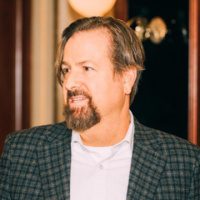
Rob Tiffany is Founder and Managing Director at Digital Insights. He’s been featured in Wired, Forbes, Fierce Wireless, Inc. Magazine, Mobile World Live, and Techonomy.Prior to founding Digital Insights, Rob served as Vice President and Head of IoT Strategy at Ericsson driving 5G connection management for IoT devices. As CTO and Global Product Manager at Hitachi, he received the Presidential “Product of the Year” award for designing the Lumada Industrial IoT platform which landed in Gartner’s “Leaders” Magic Quadrant. Spending most of his career at Microsoft, Rob was Global Technology Lead for the Azure IoT cloud platform and co-authored its reference architecture. Prior to Microsoft, he co-founded NetPerceptor developing one of the industry’s earliest Enterprise Mobility Management (EMM) platforms for smartphones.A bestselling author and frequent keynote speaker, Rob serves on multiple boards and is routinely ranked as one of the top IoT + Digital Twin experts and influencers in the world by Inc Magazine, Onalytica and others. Connect with Rob on LinkedIn.
